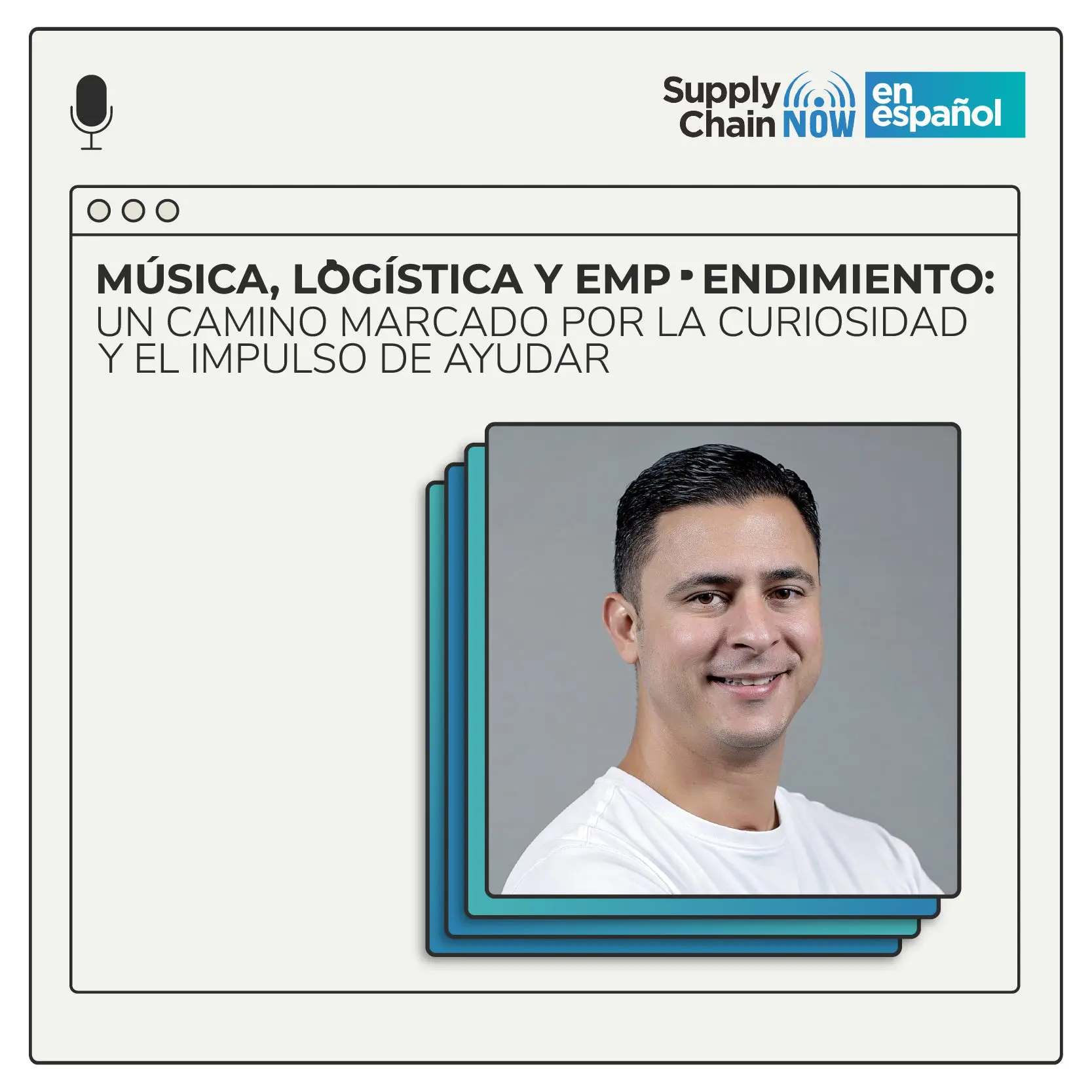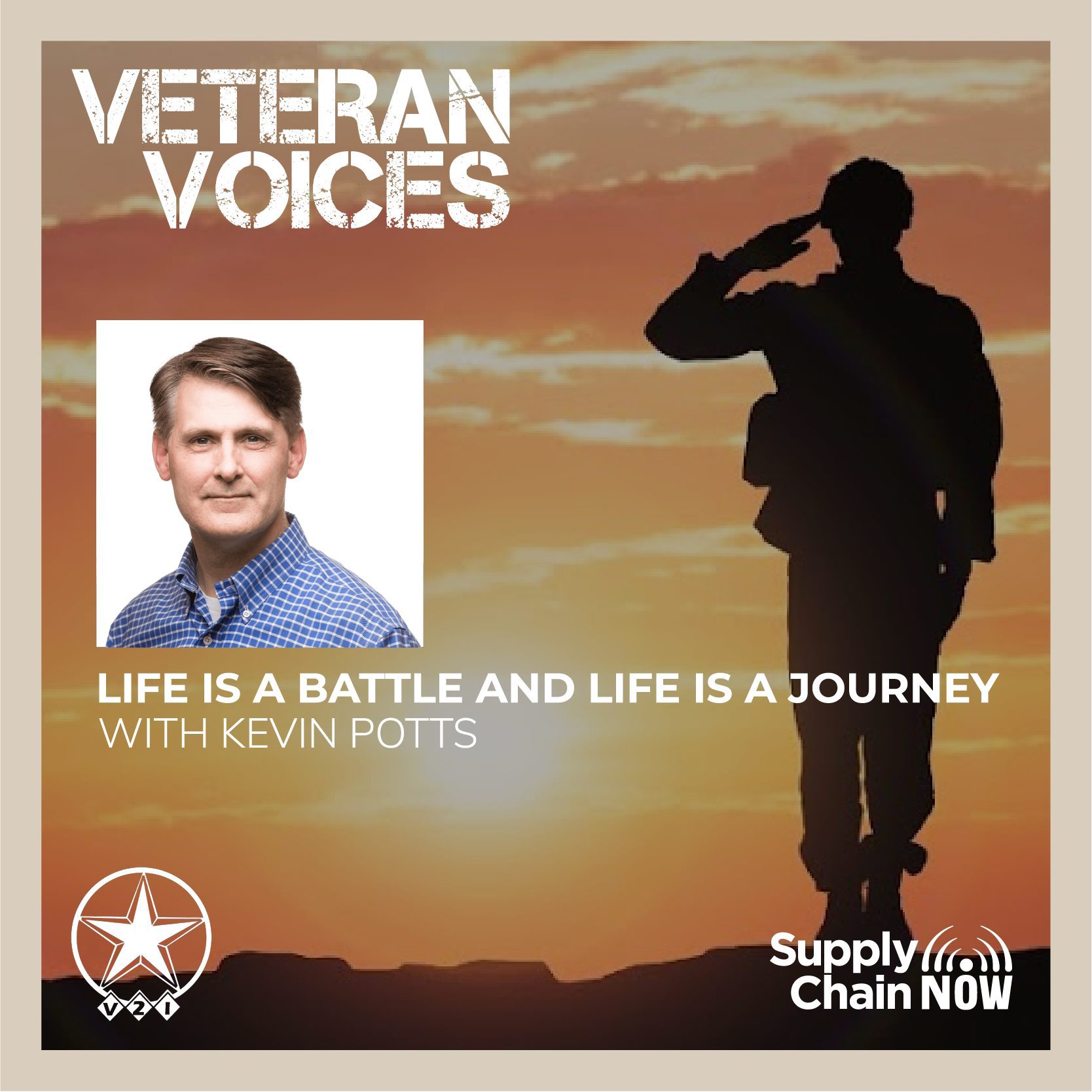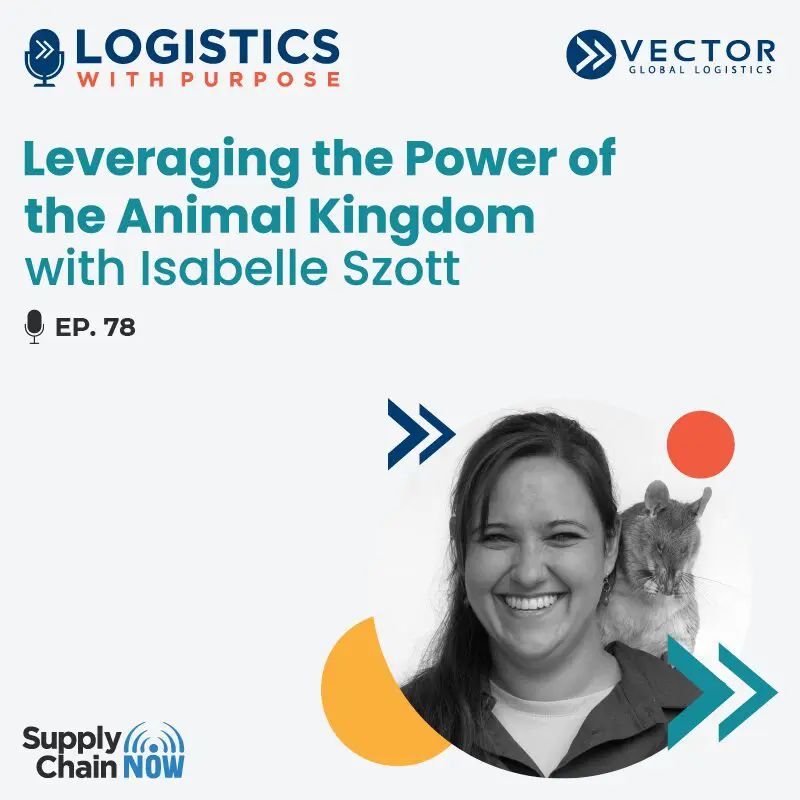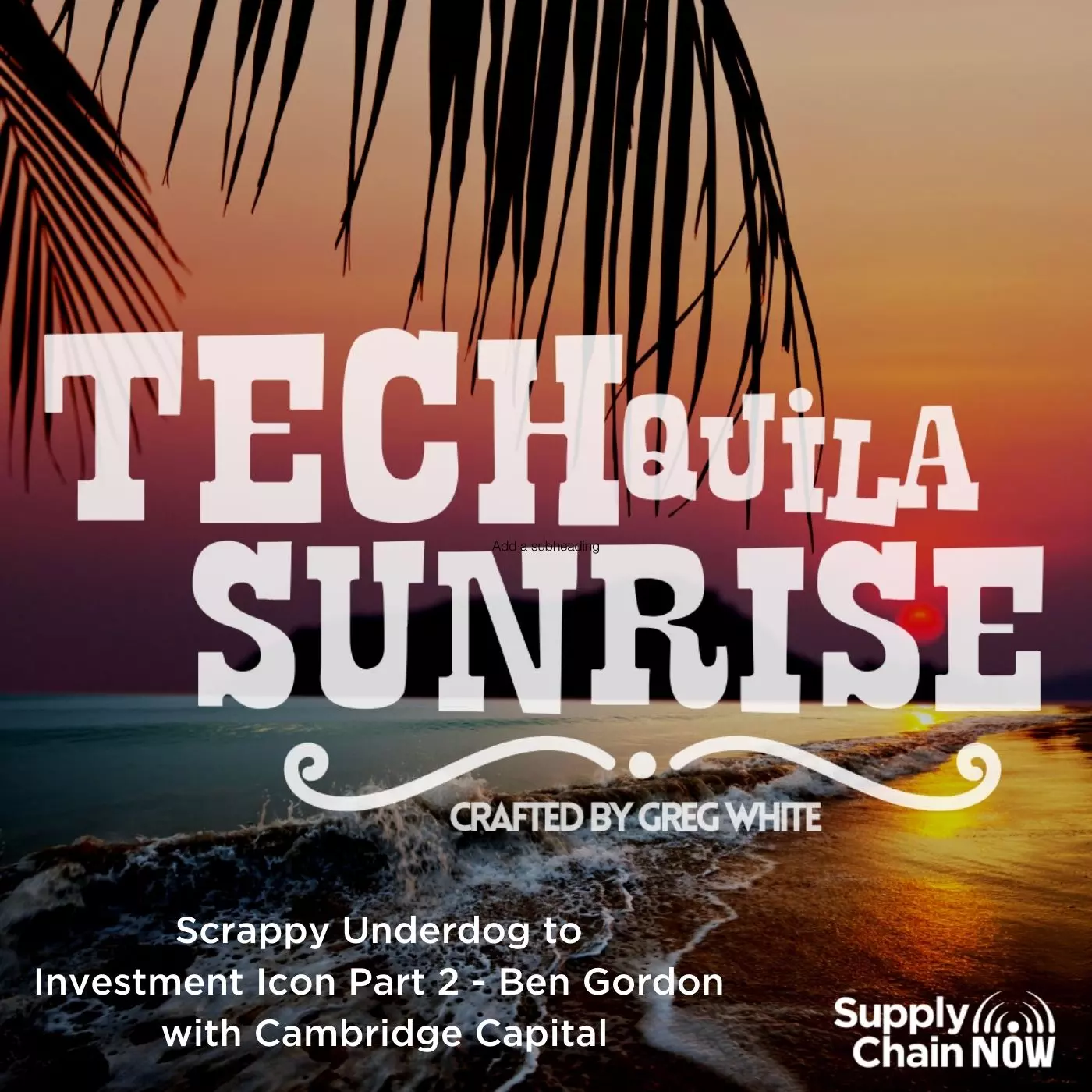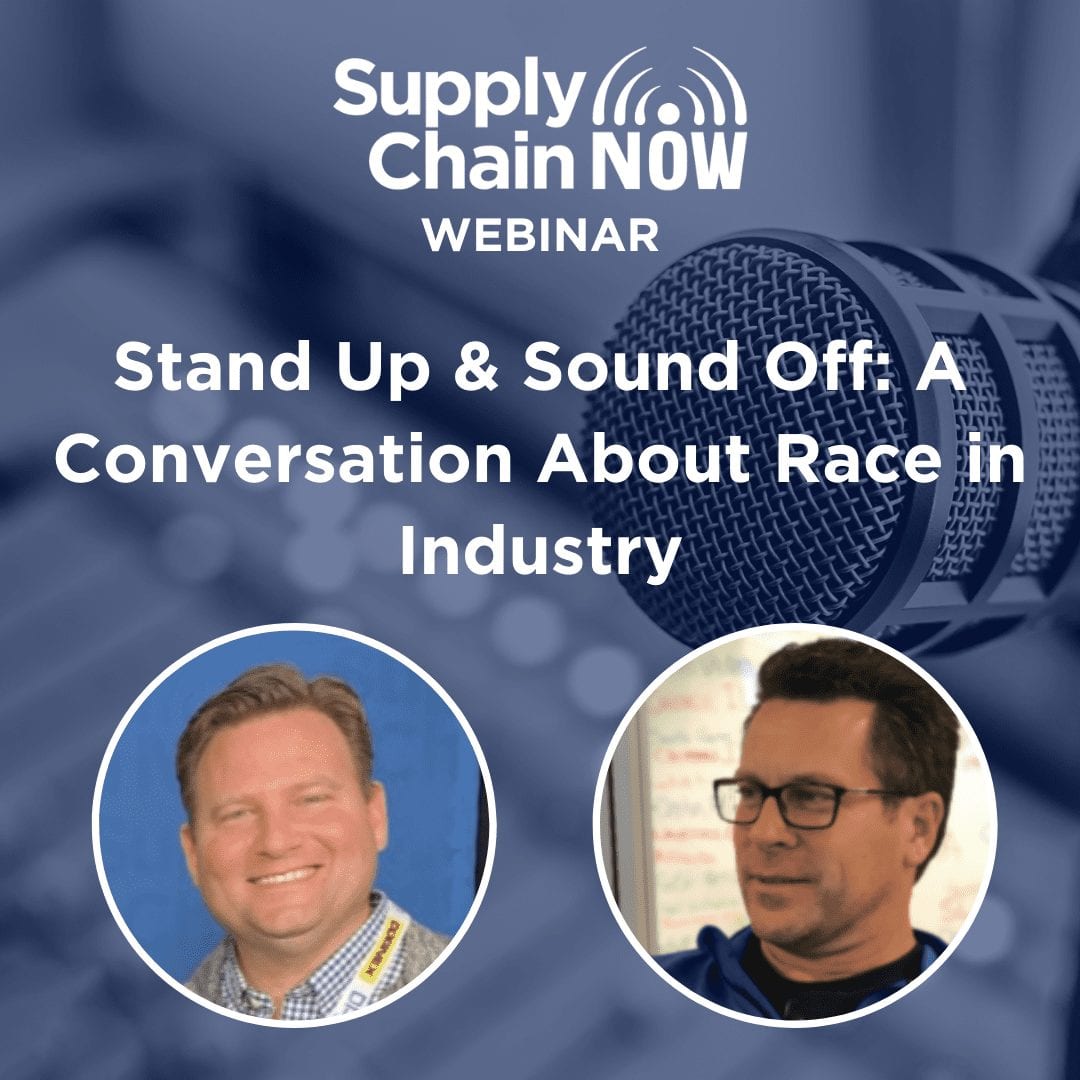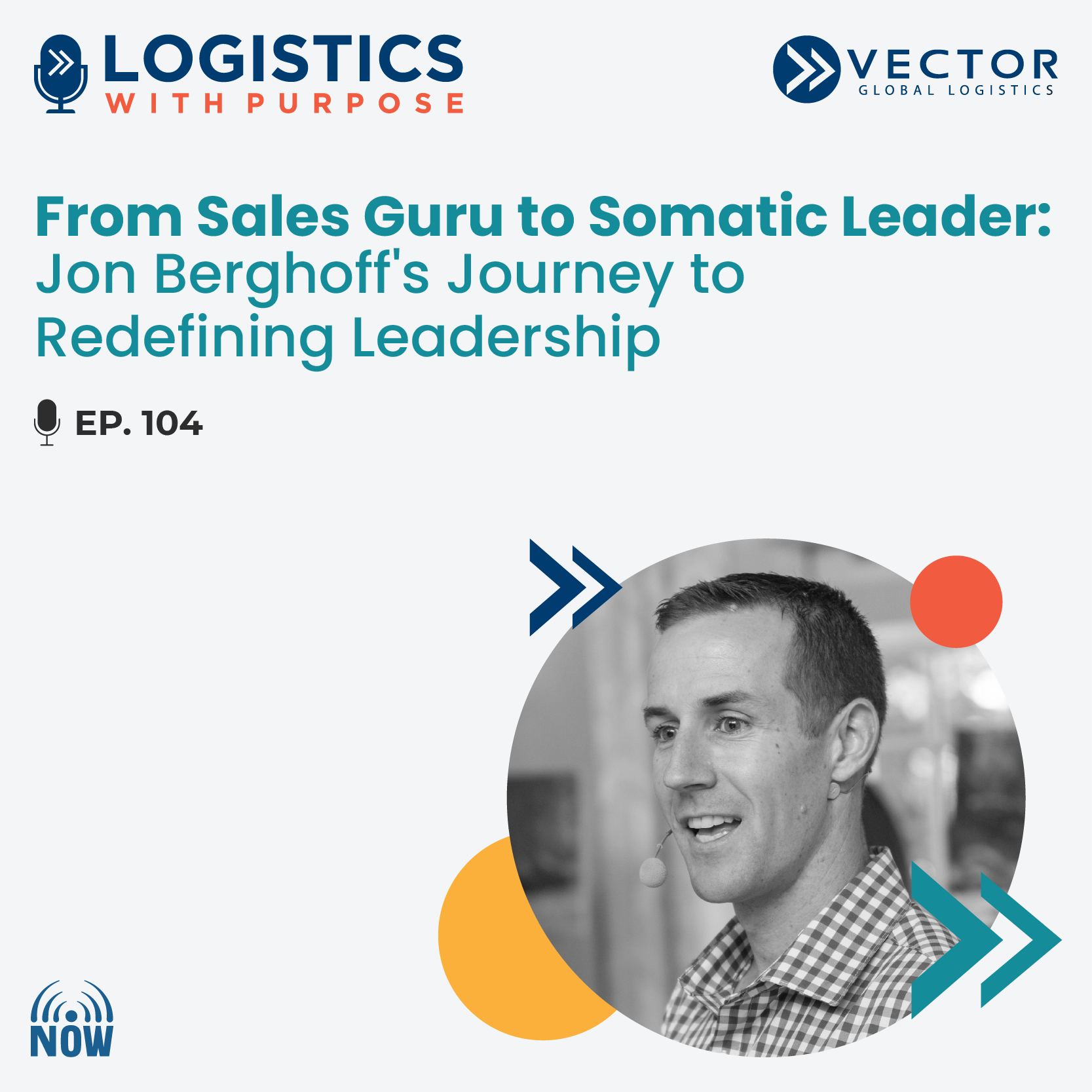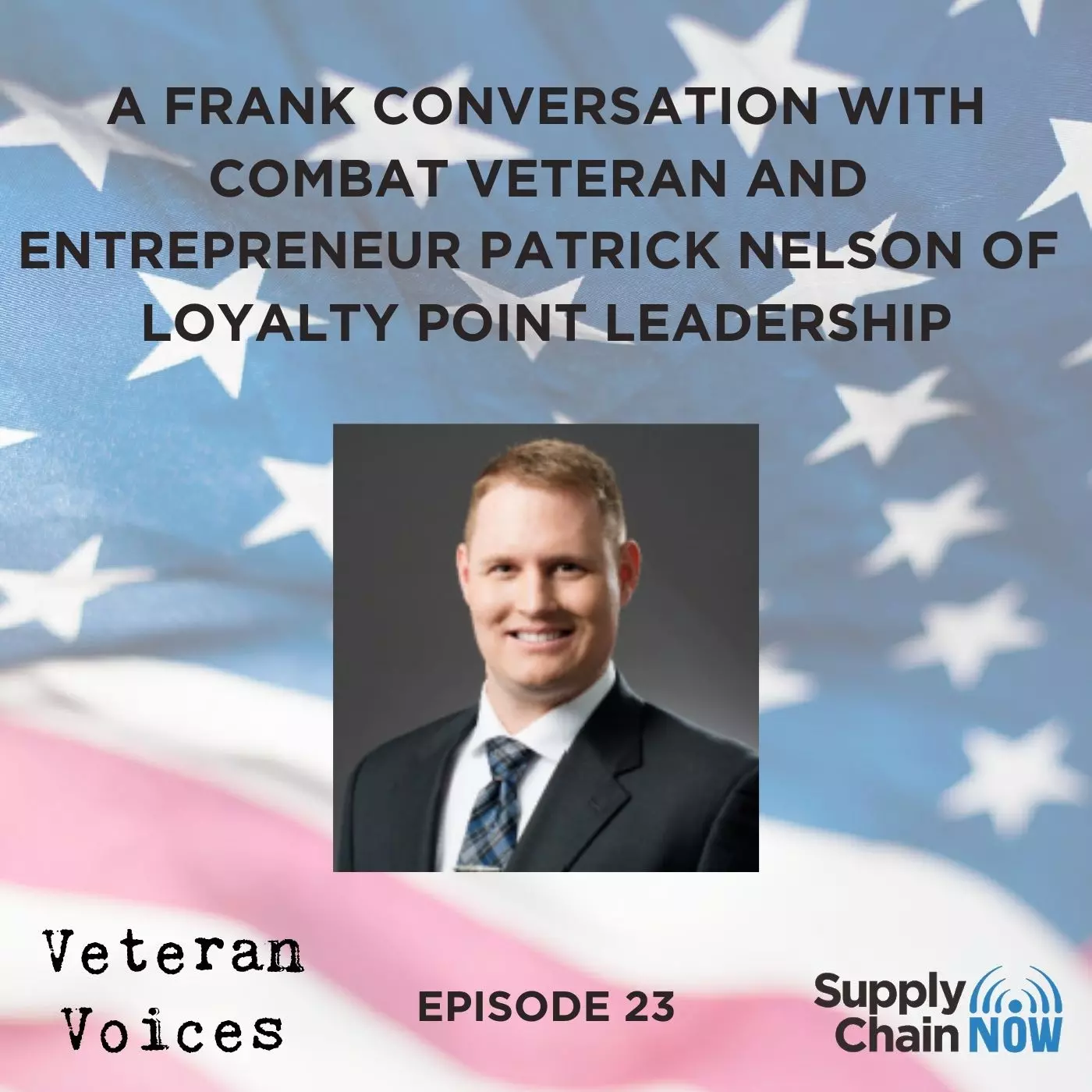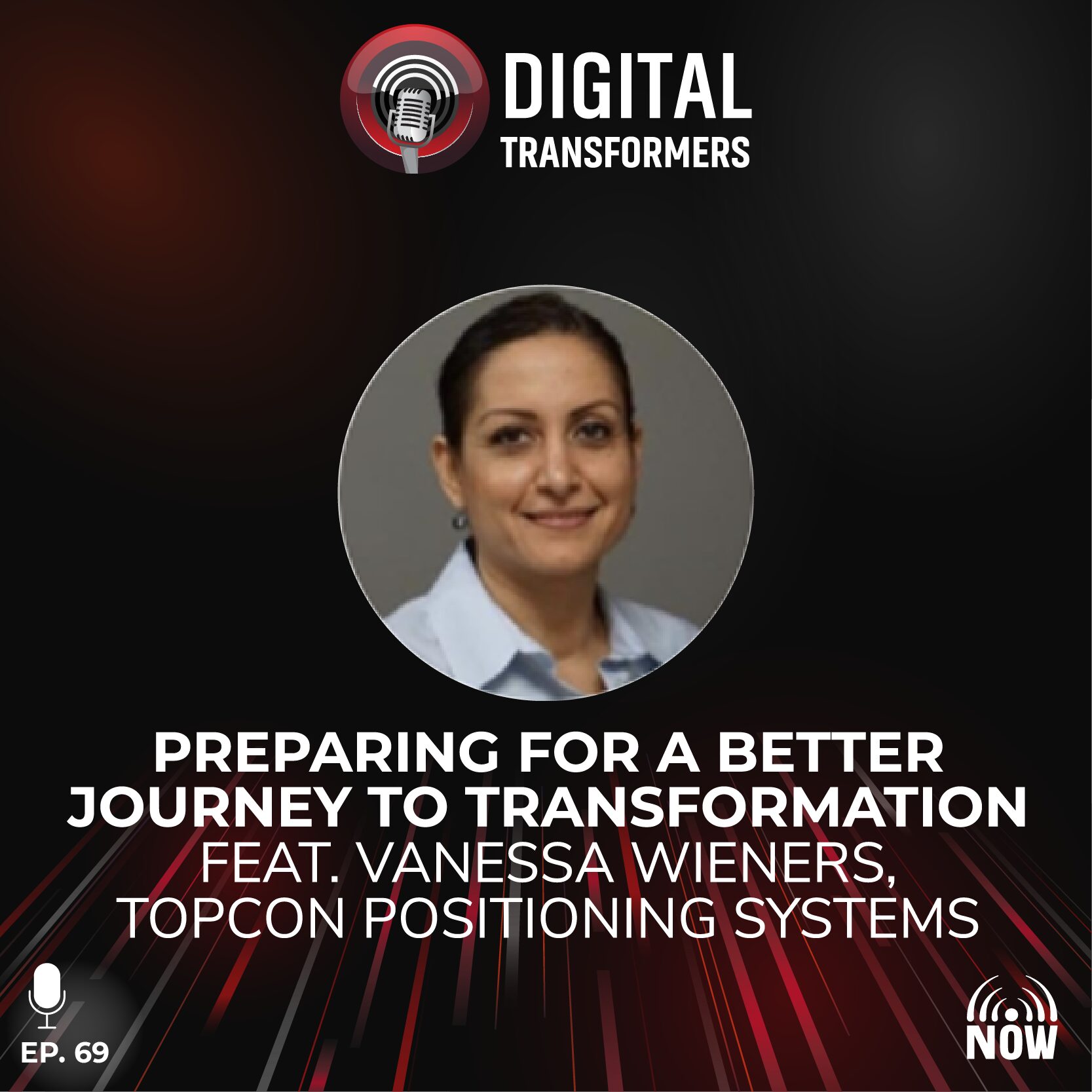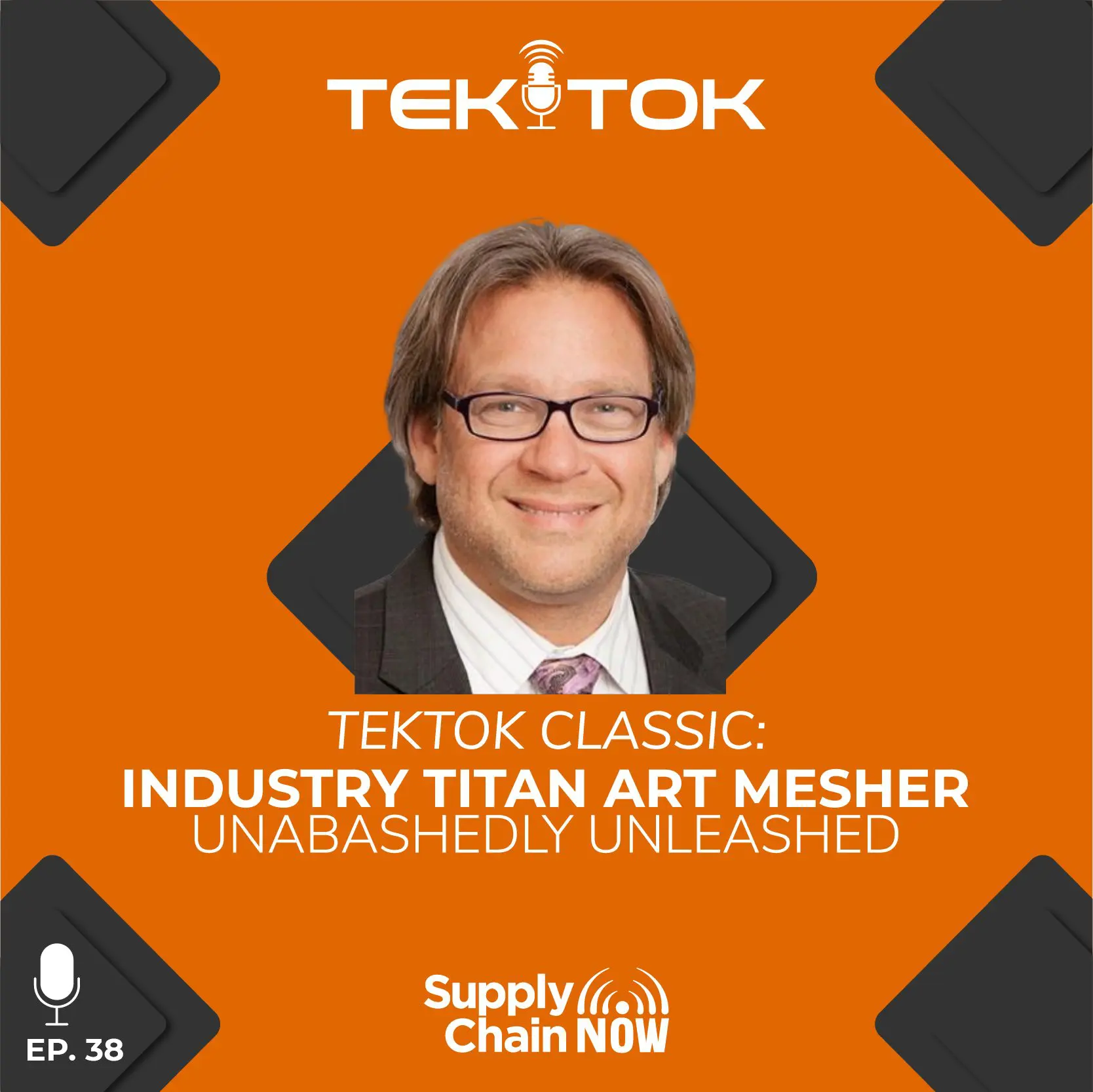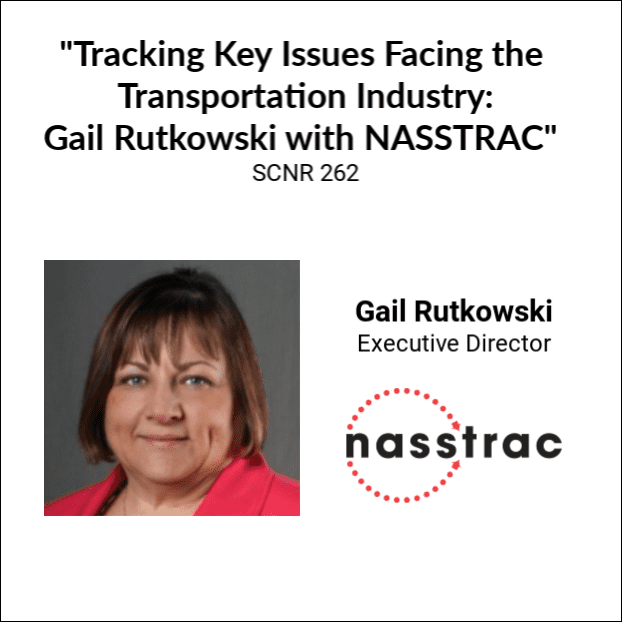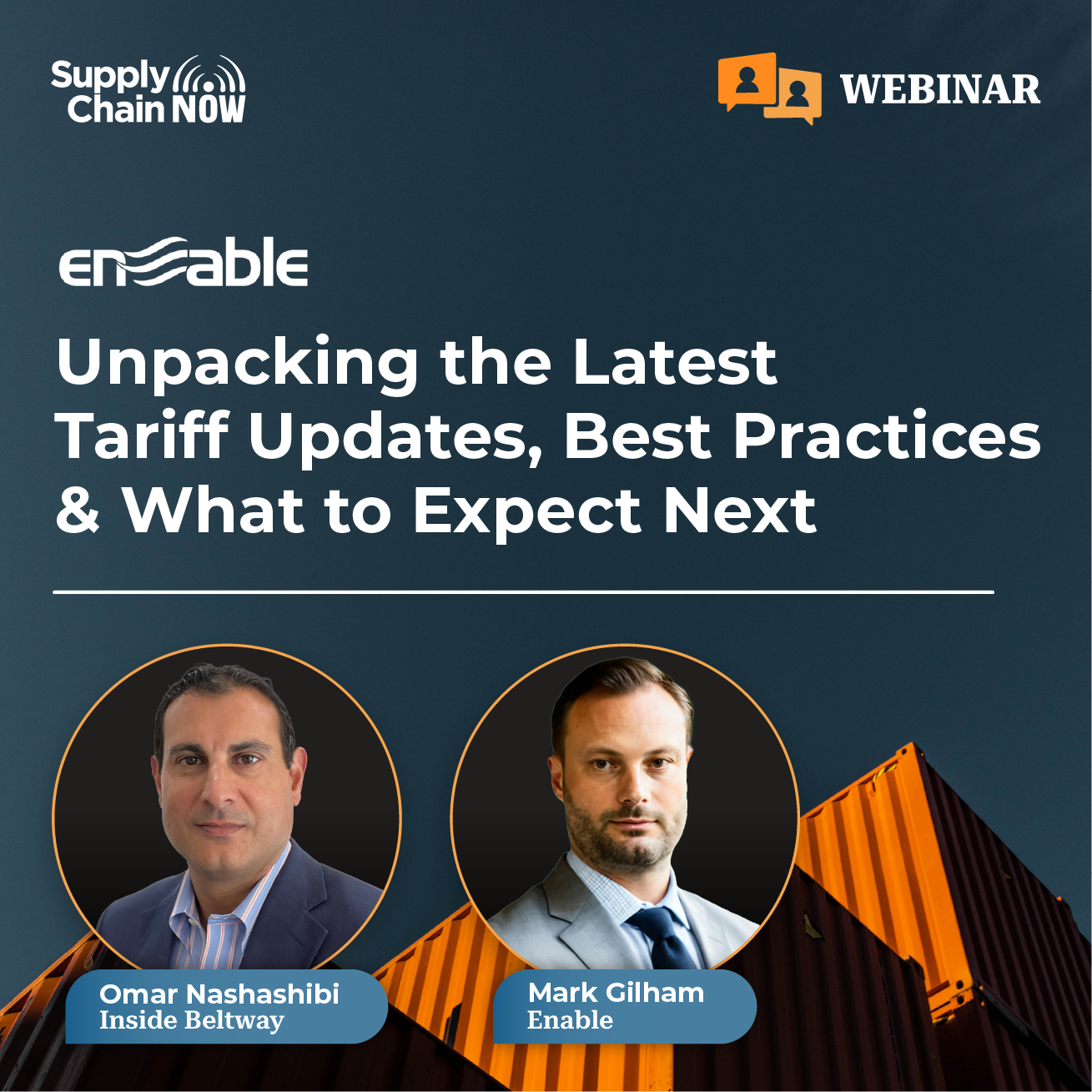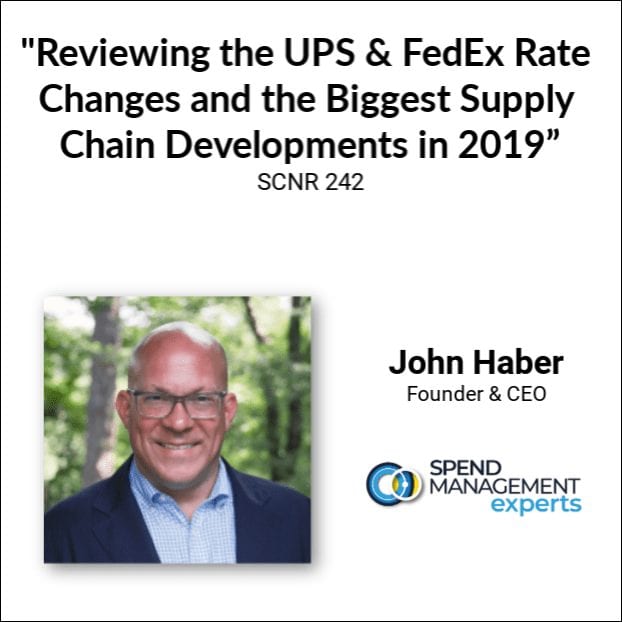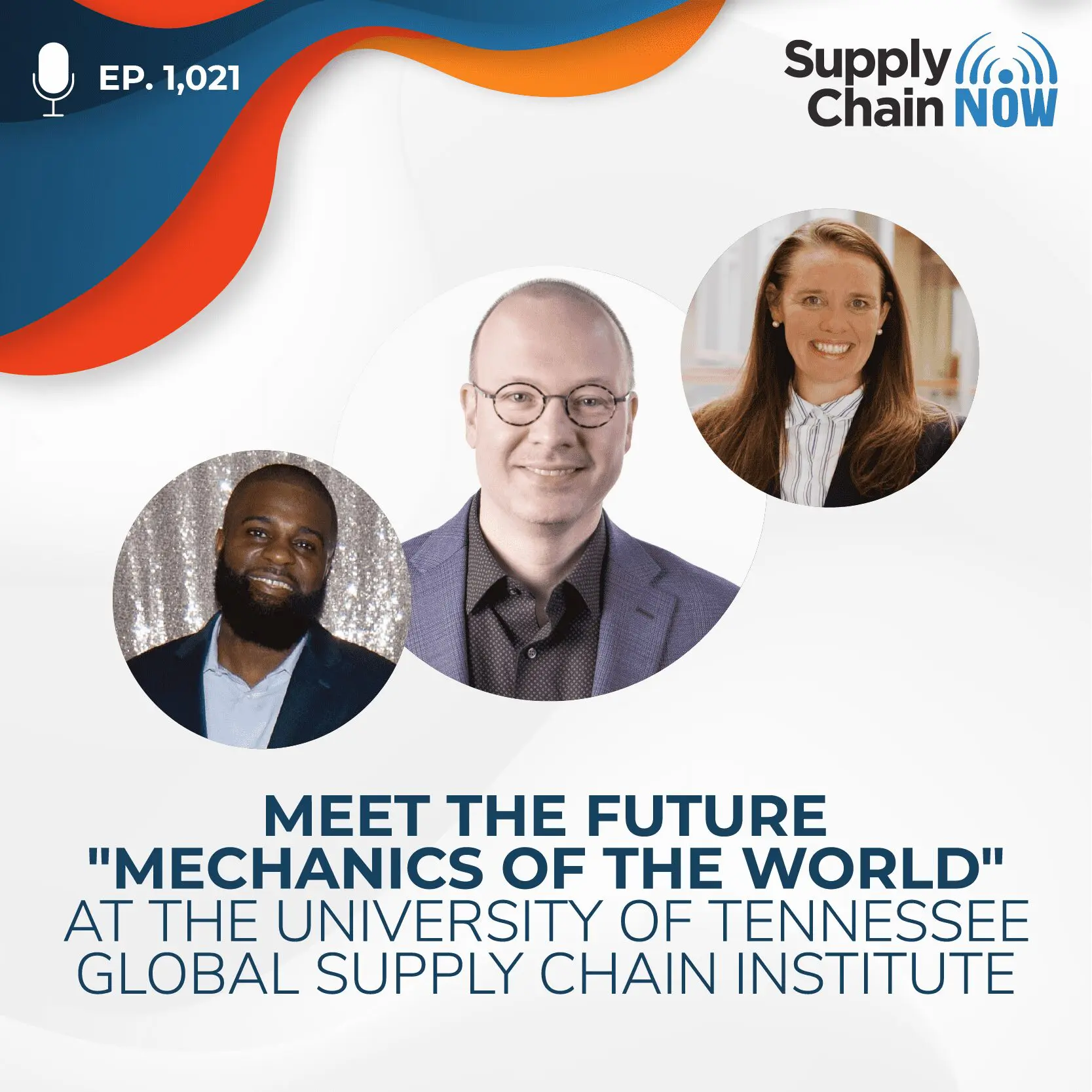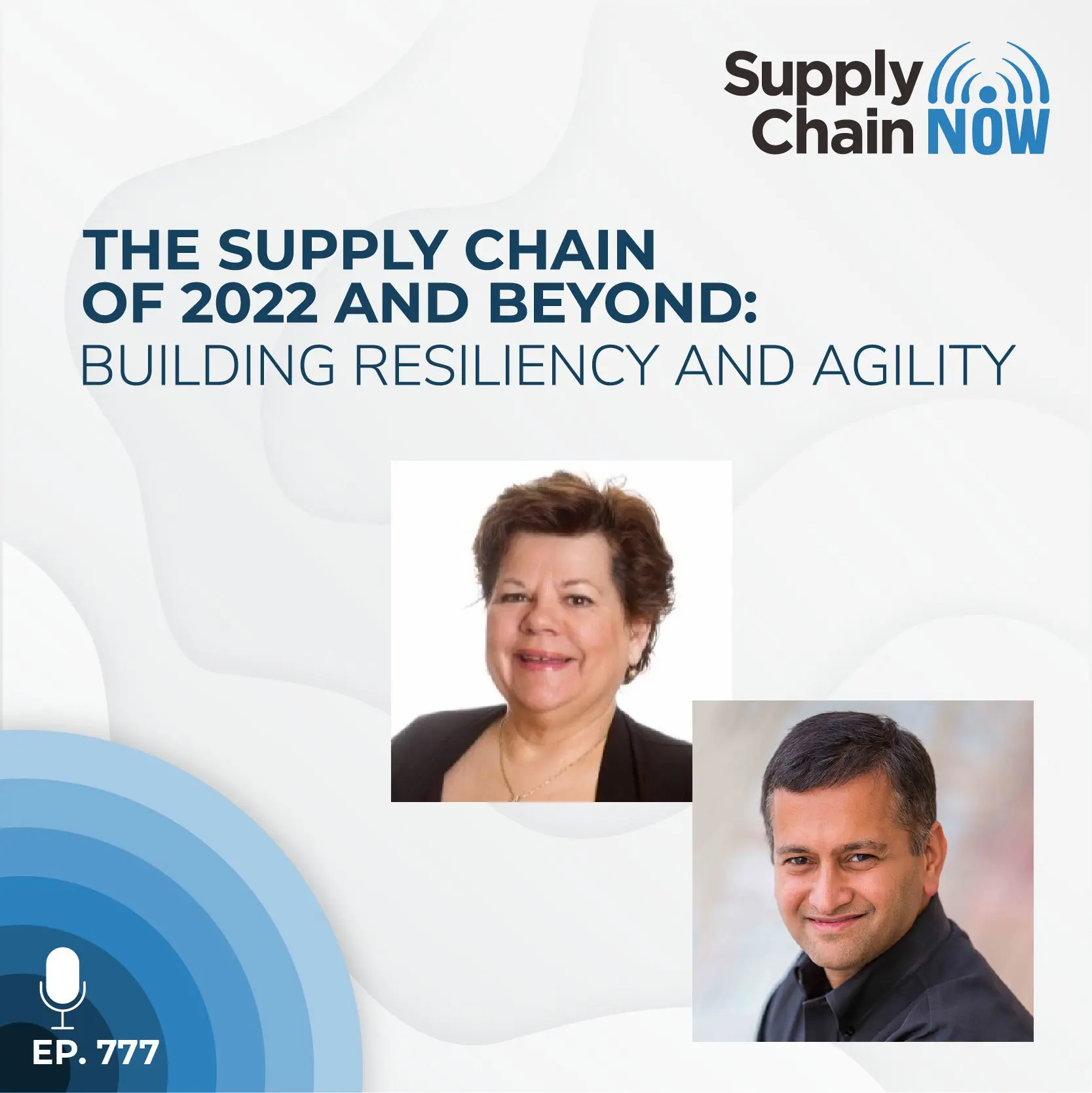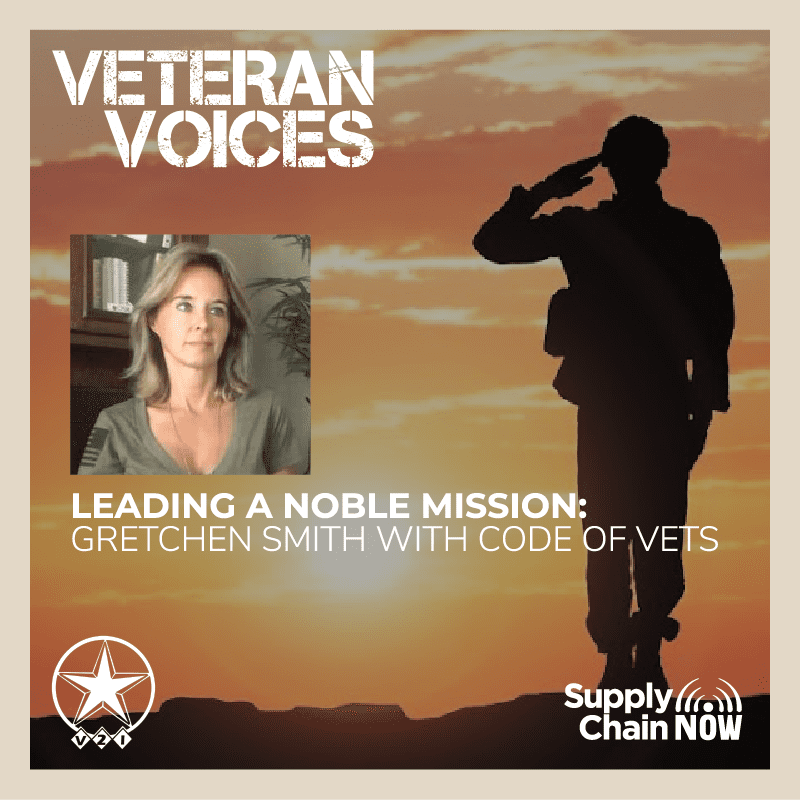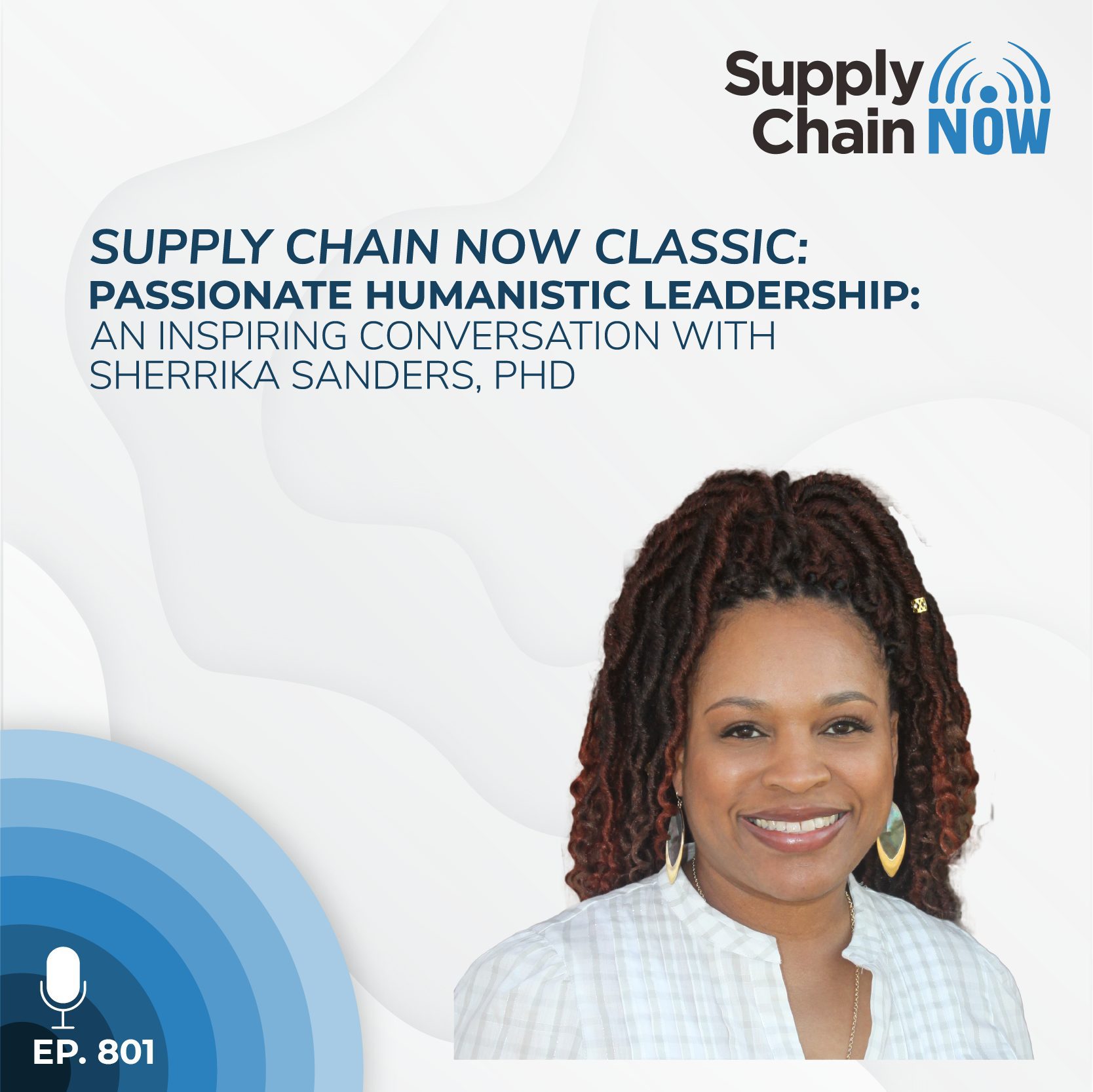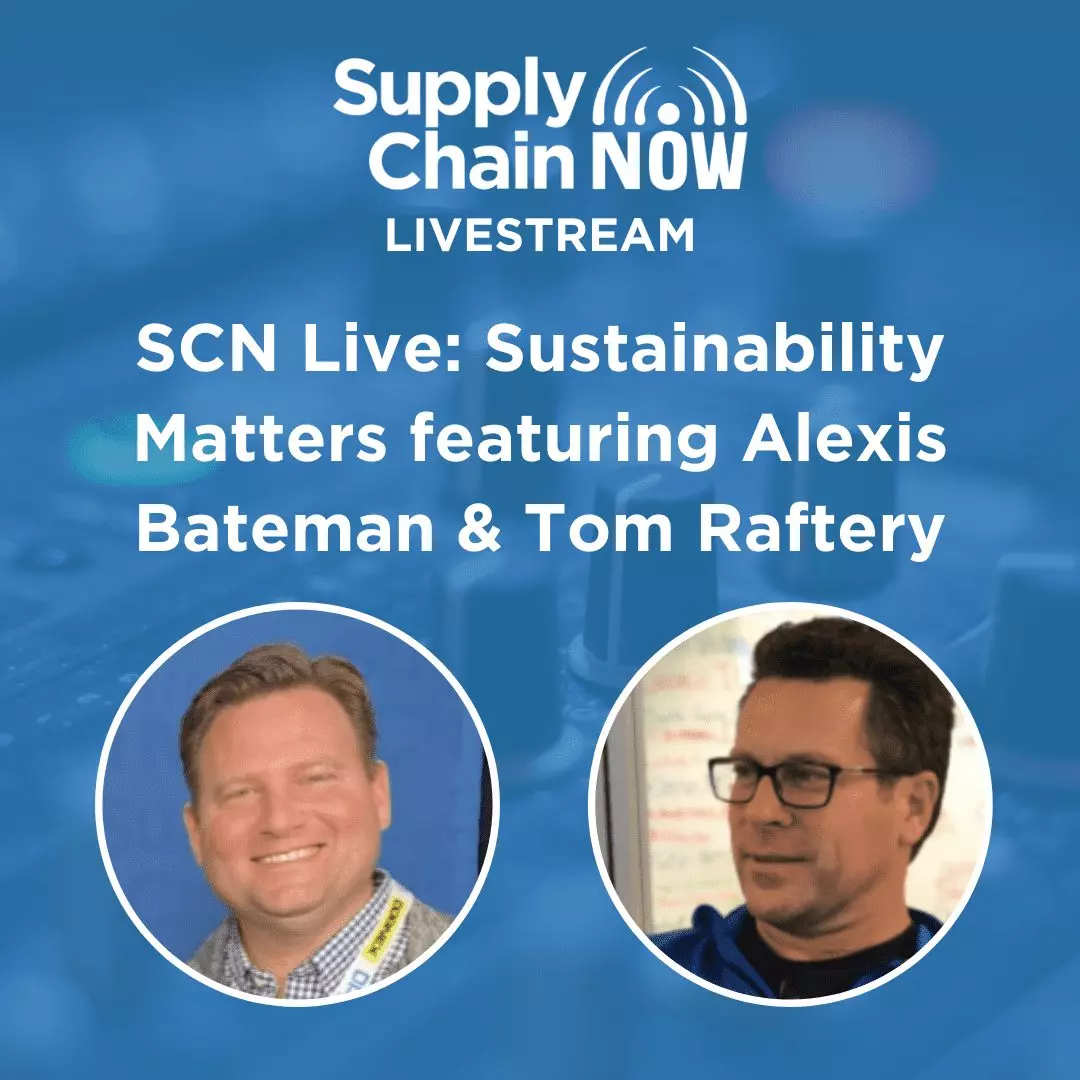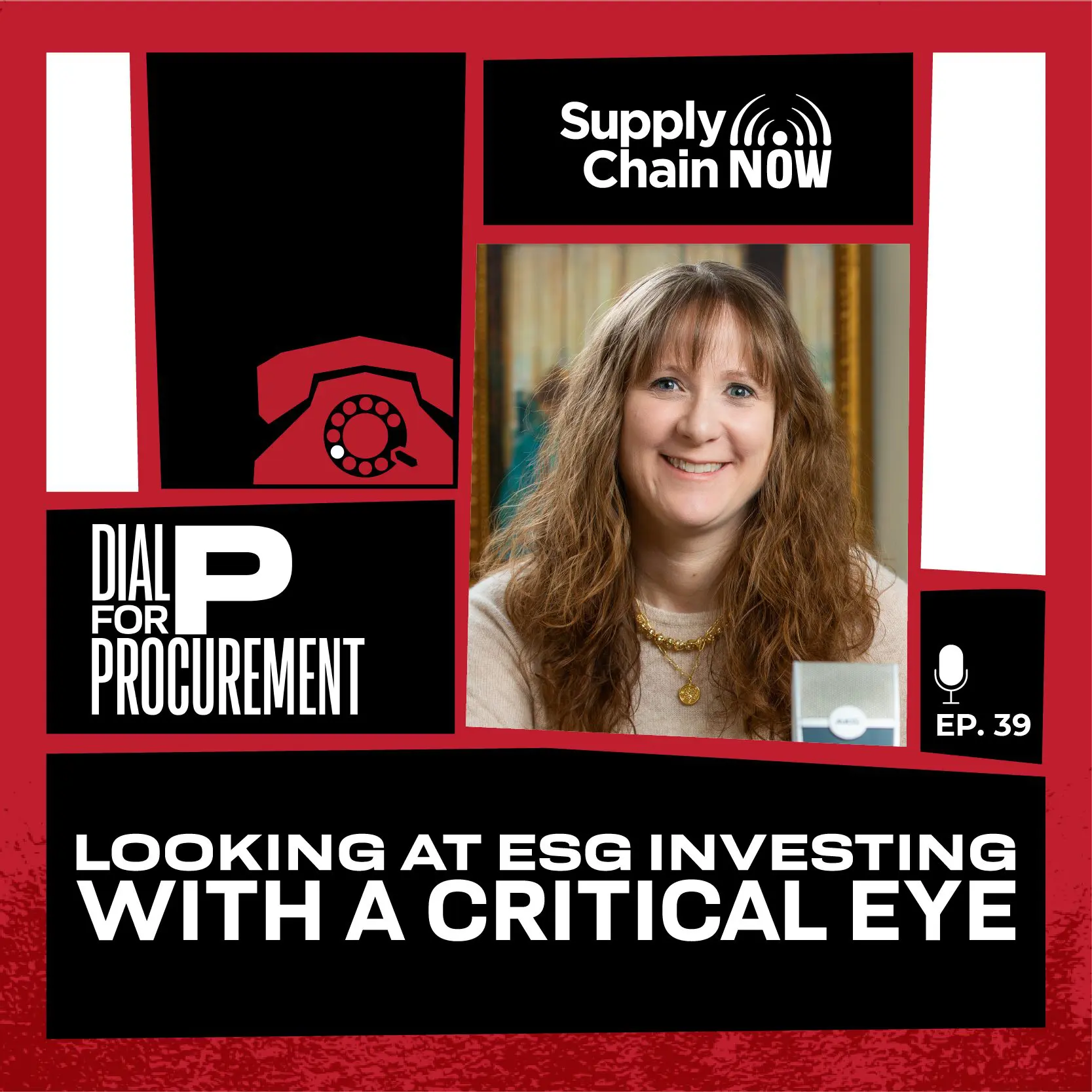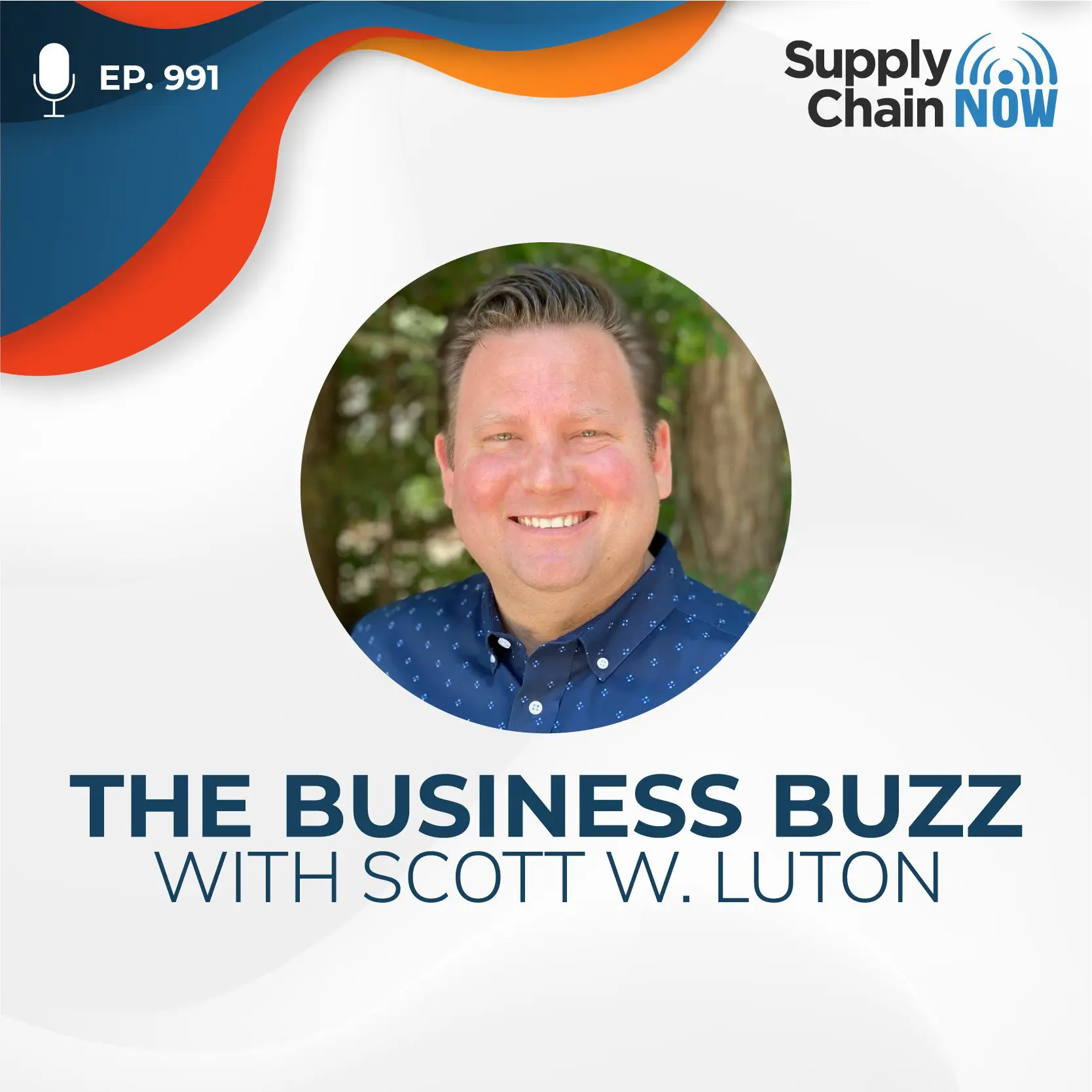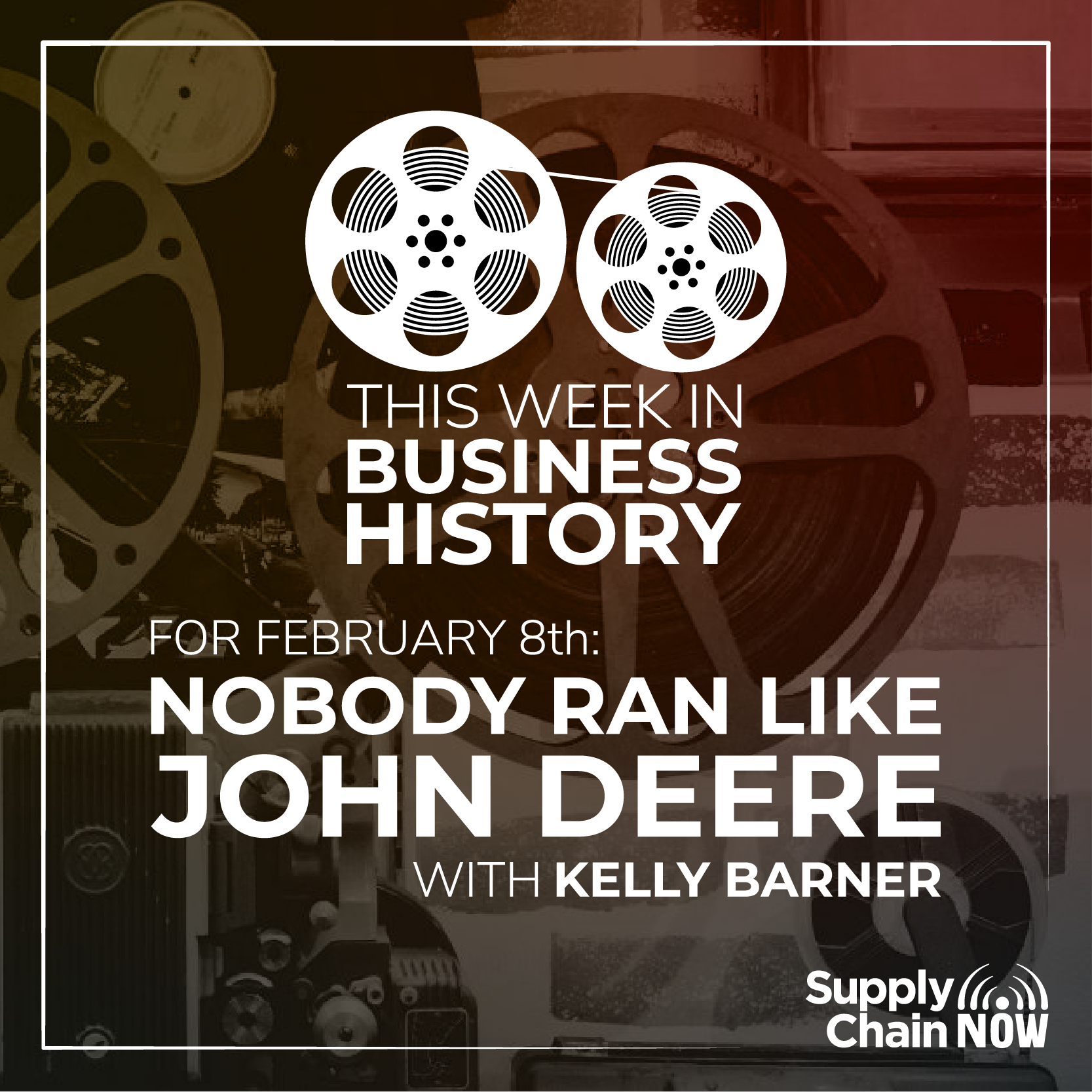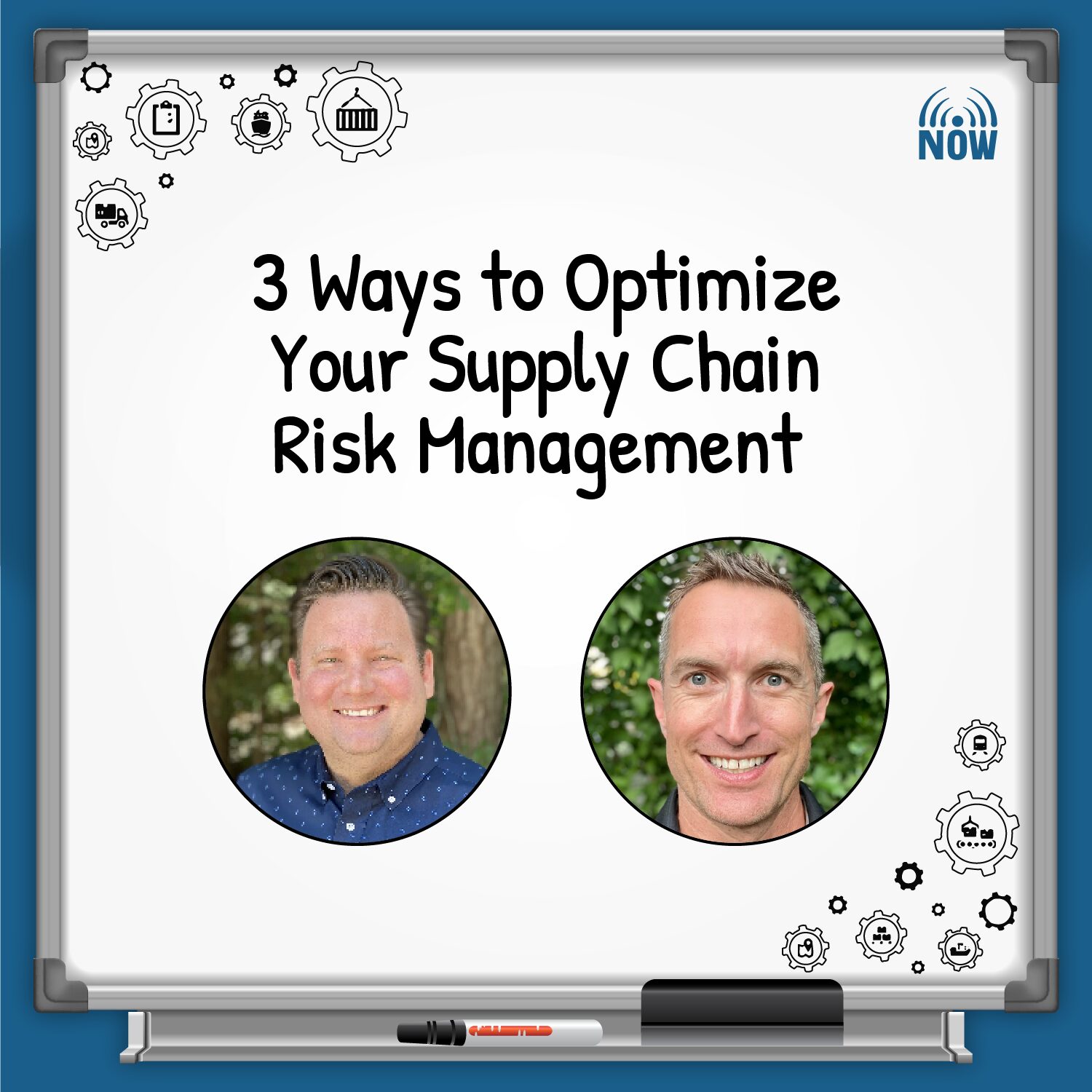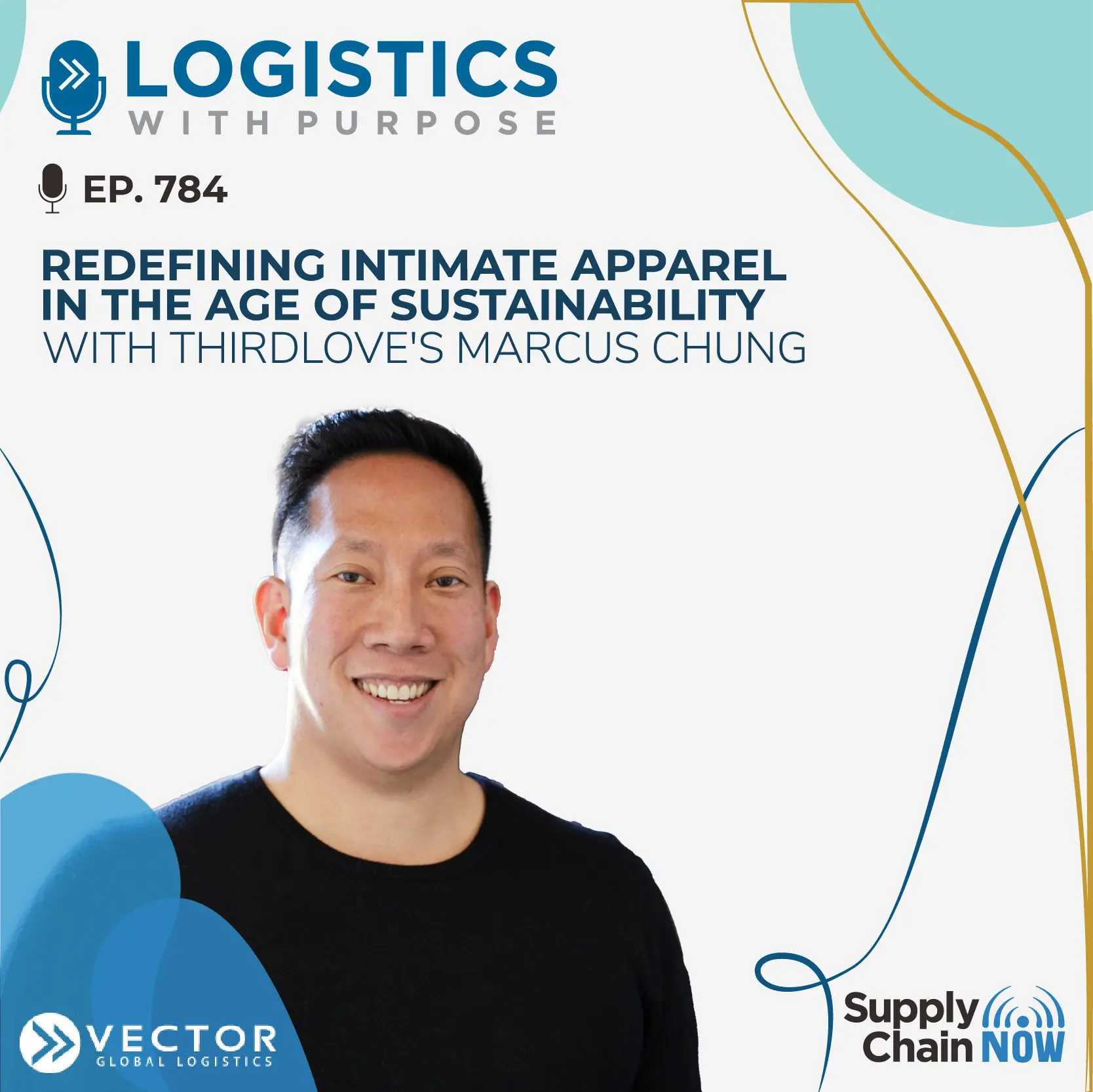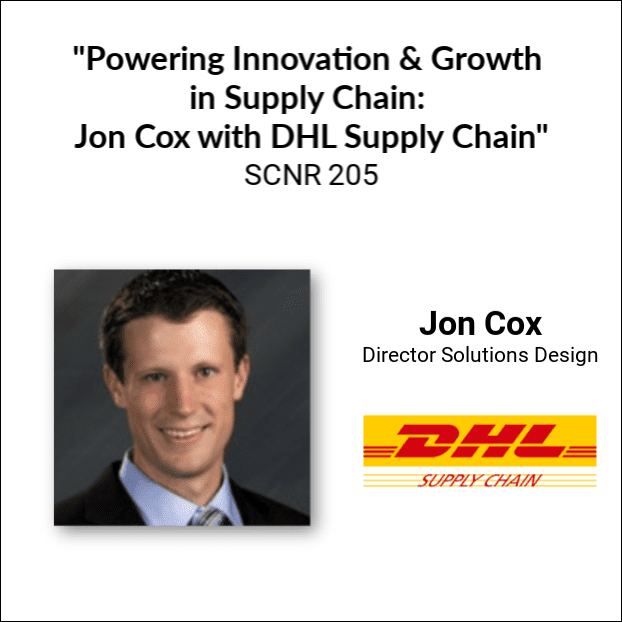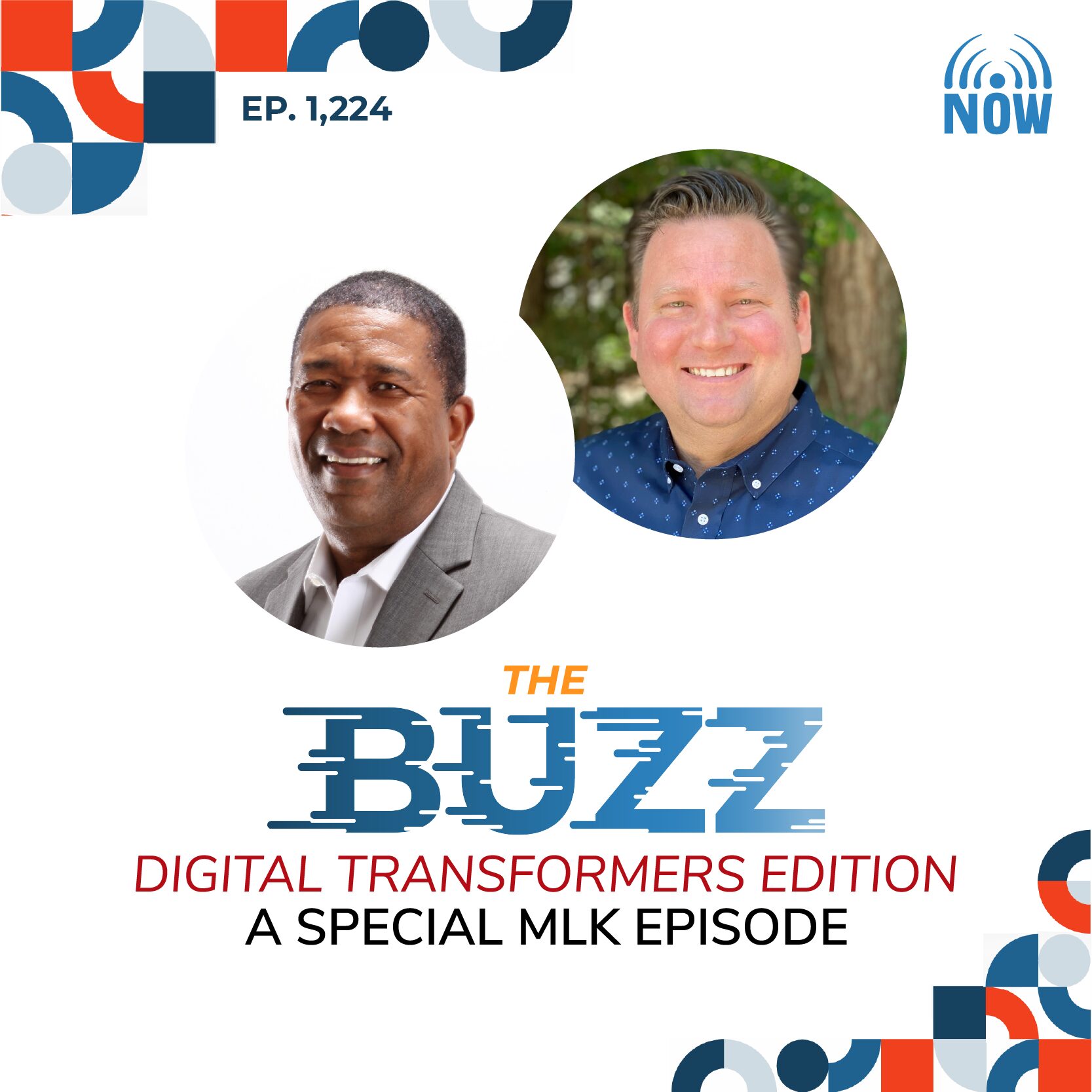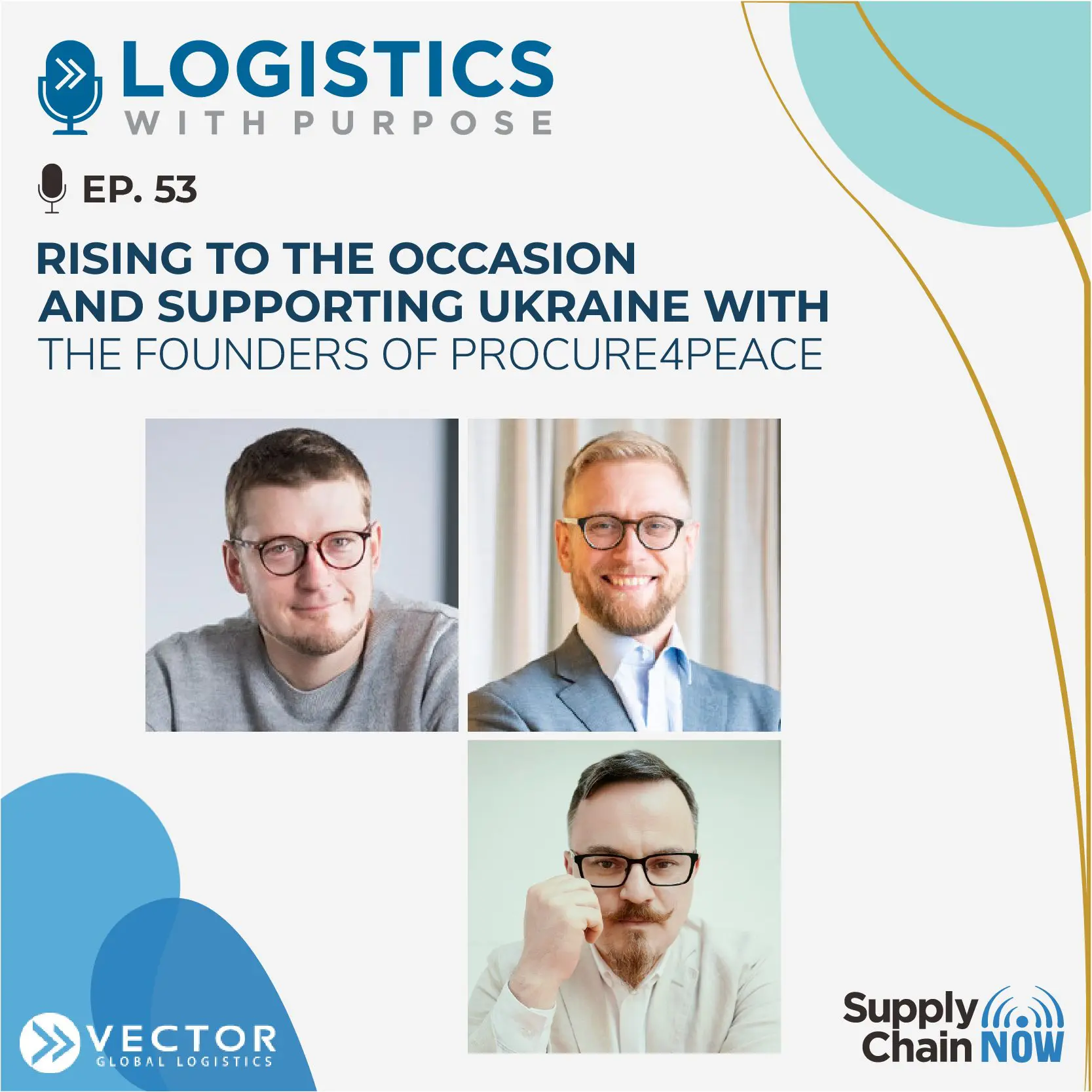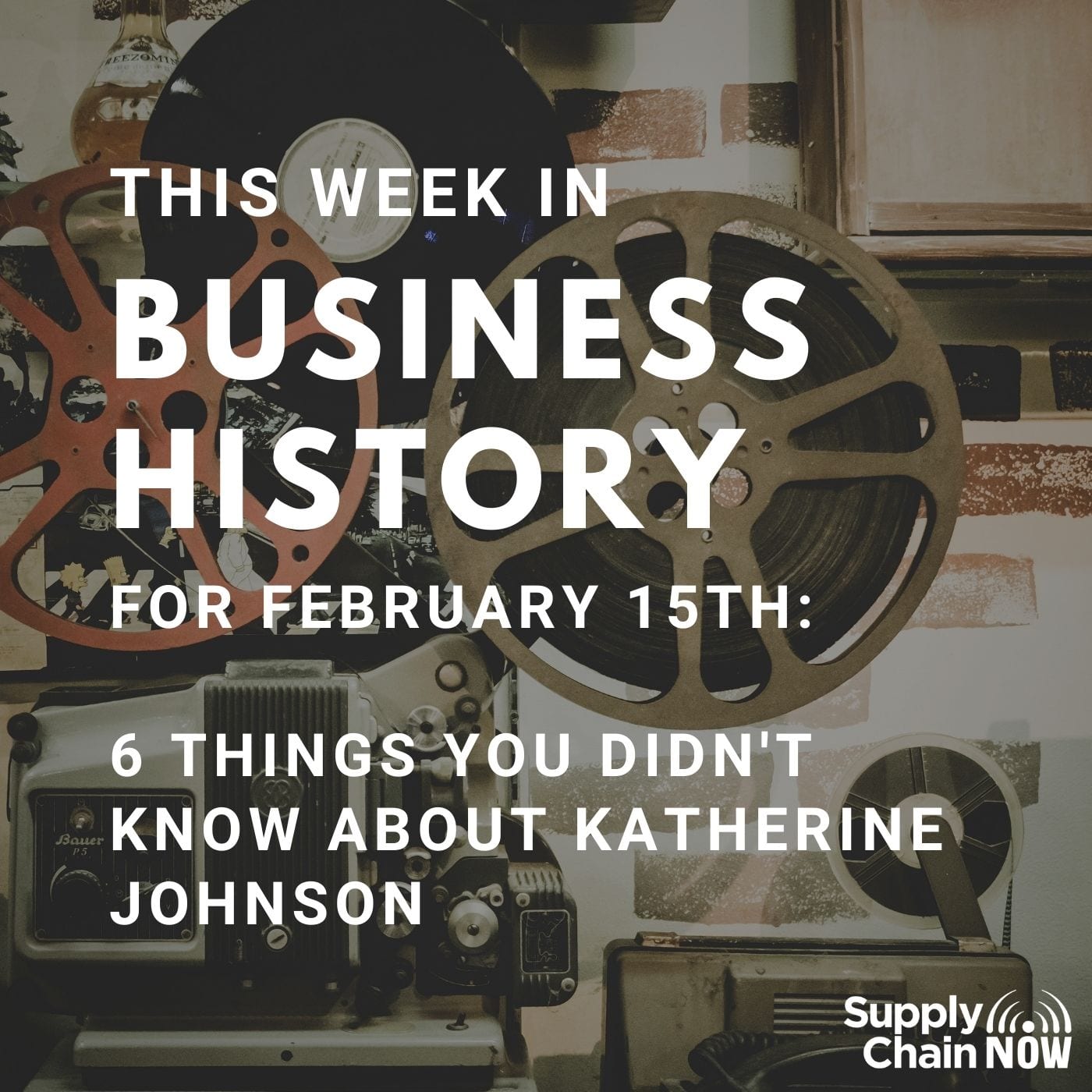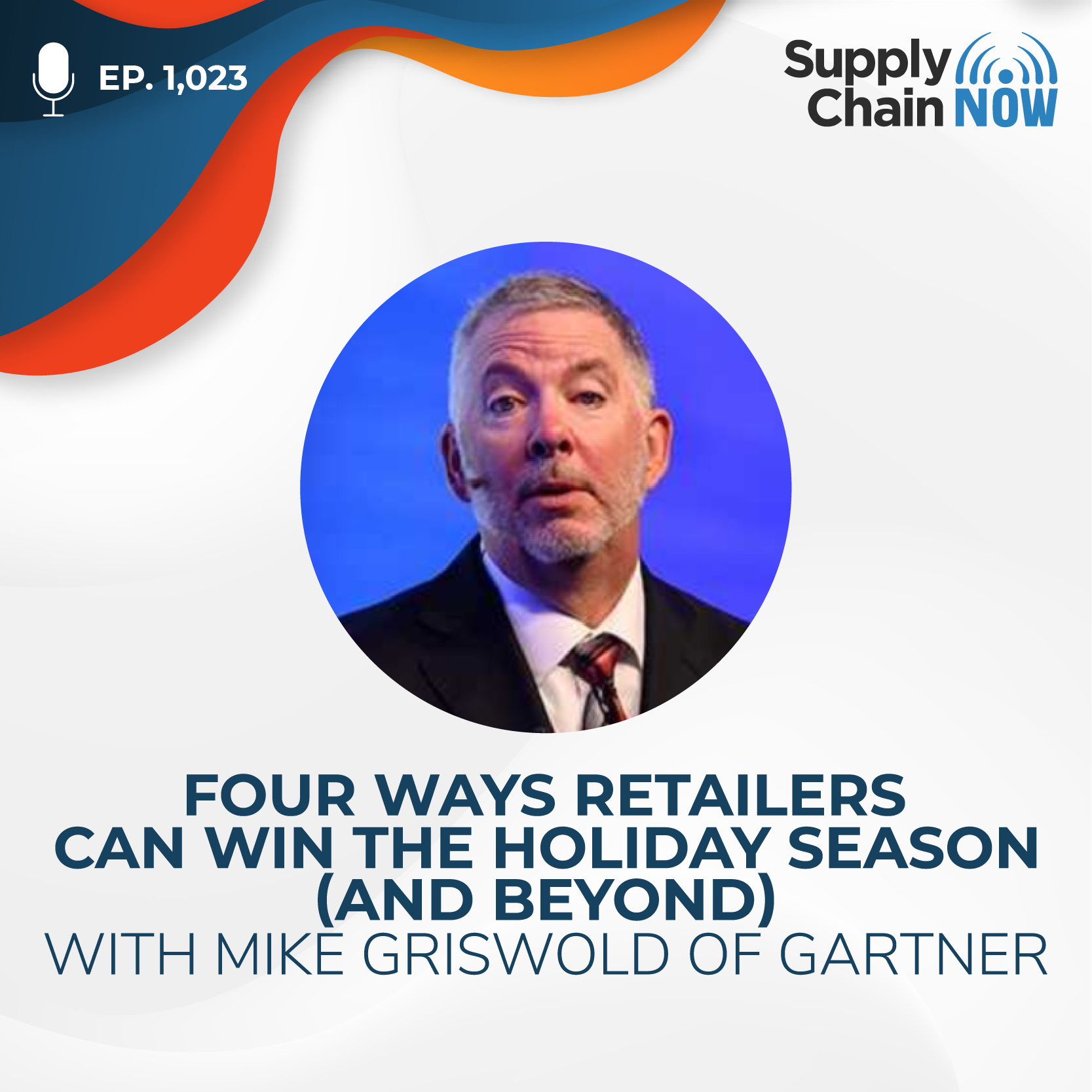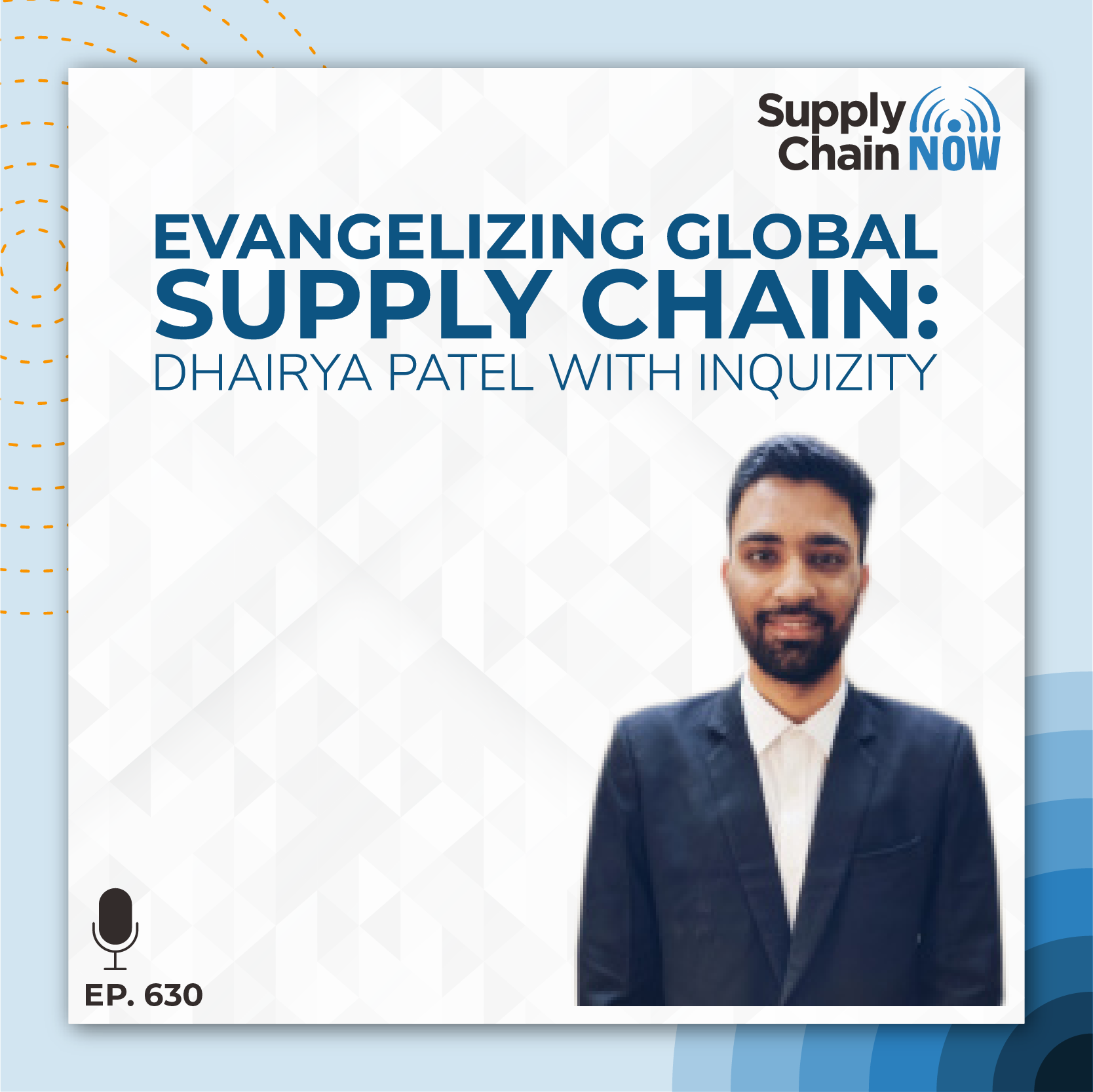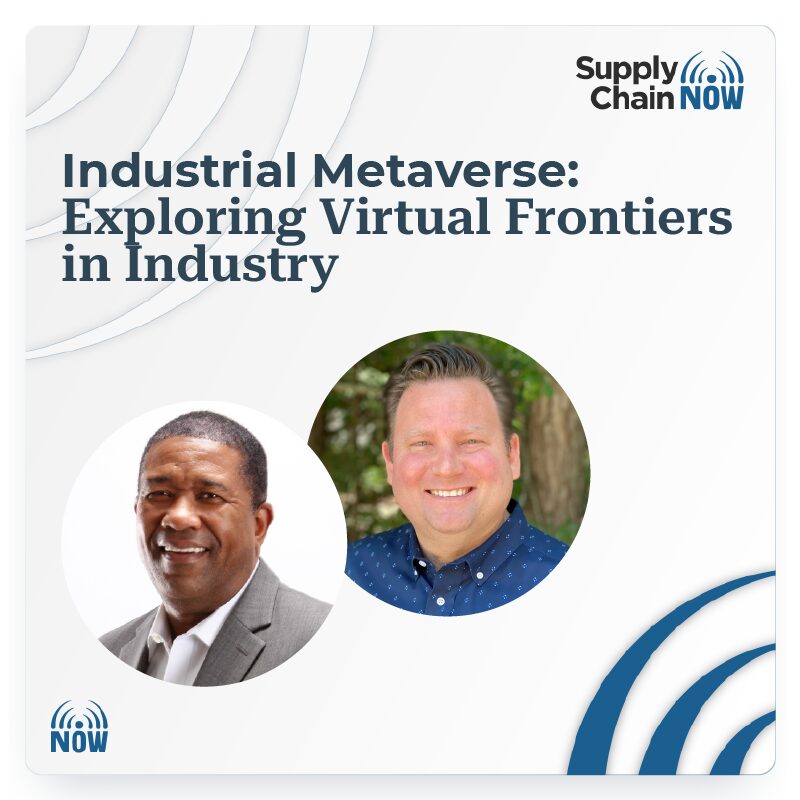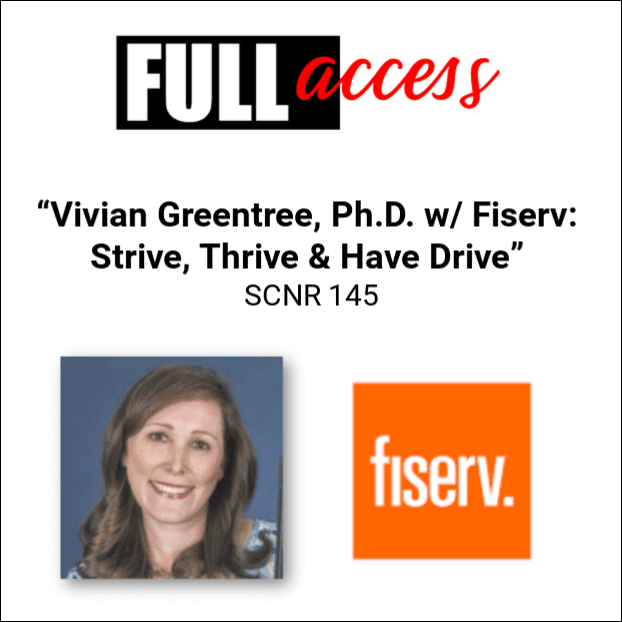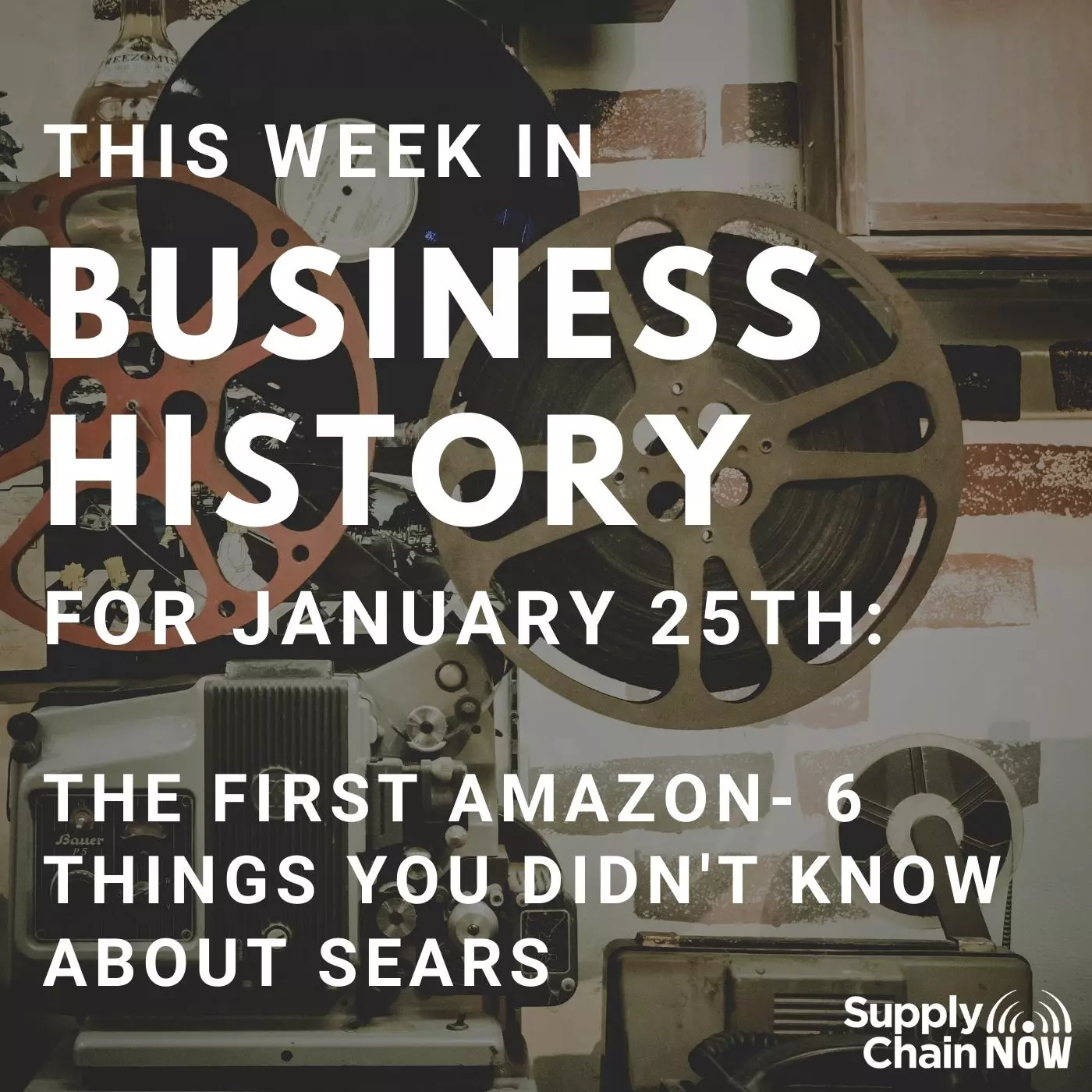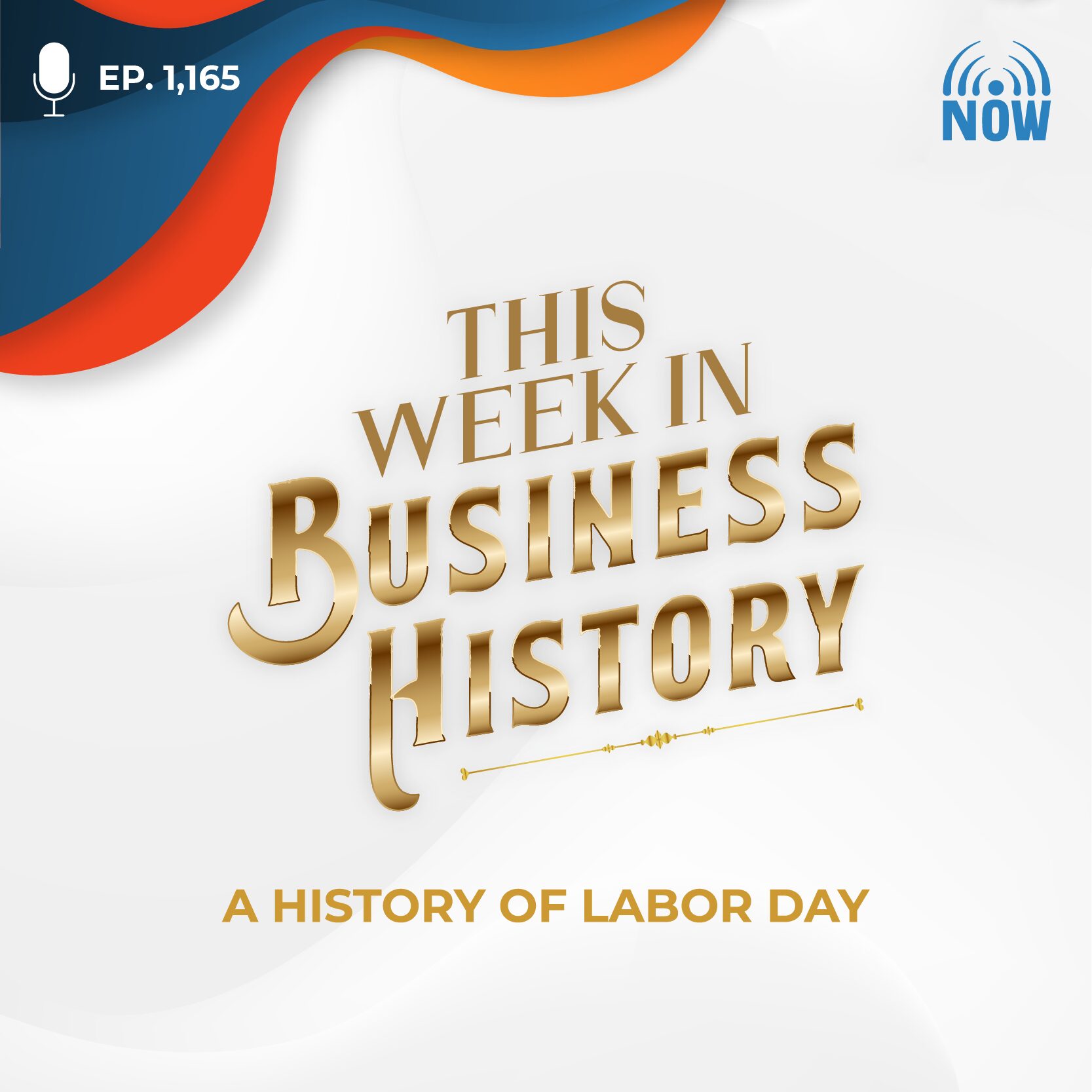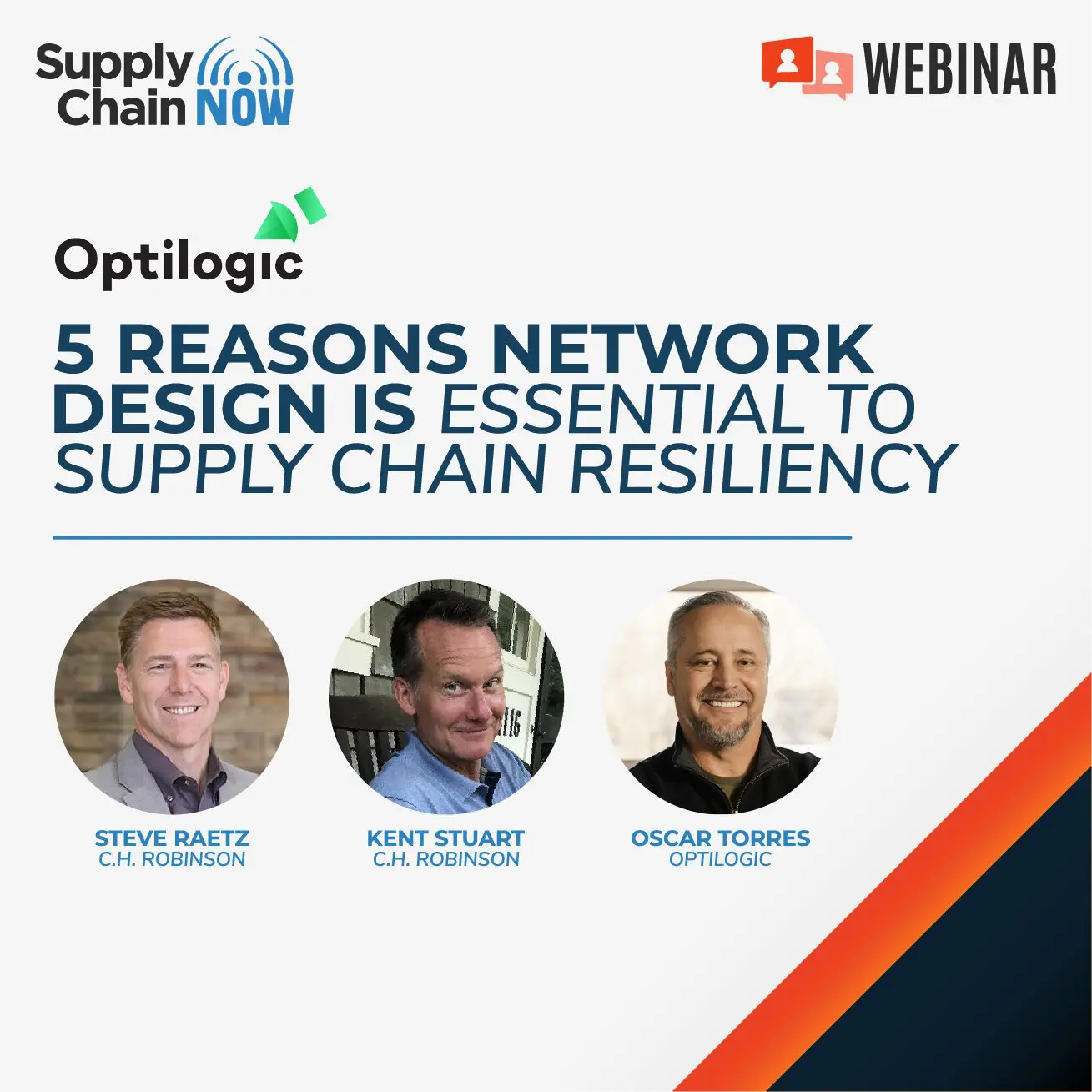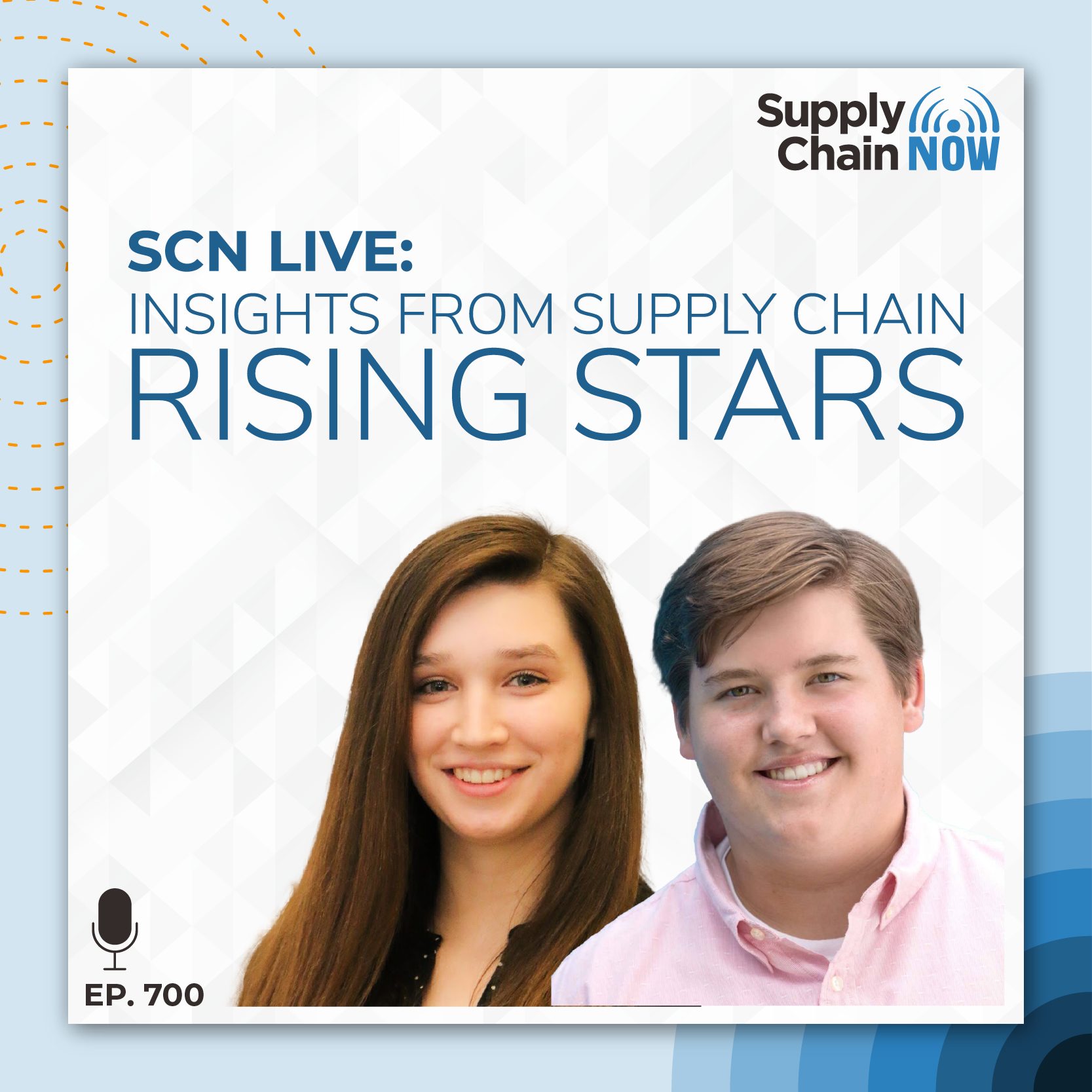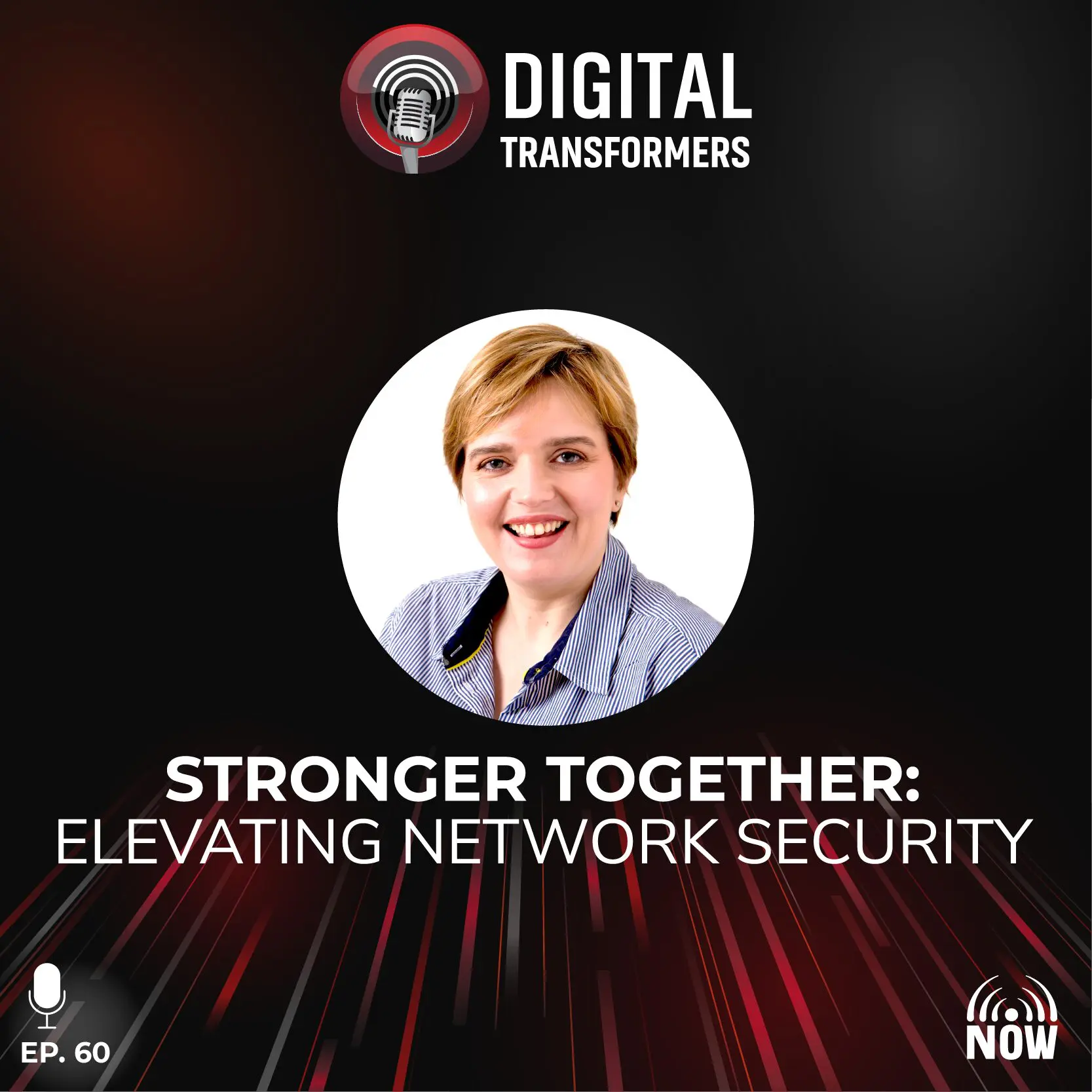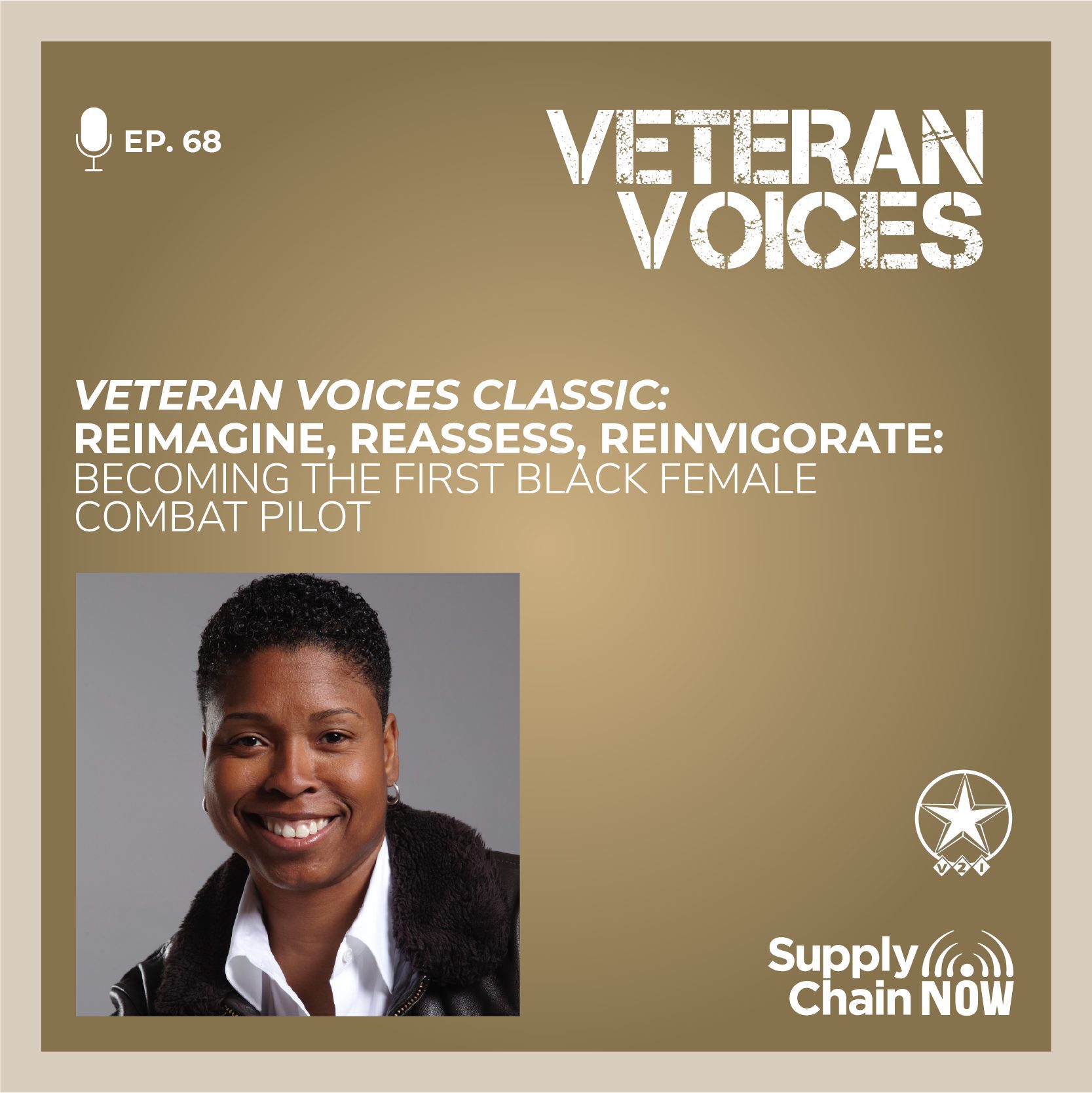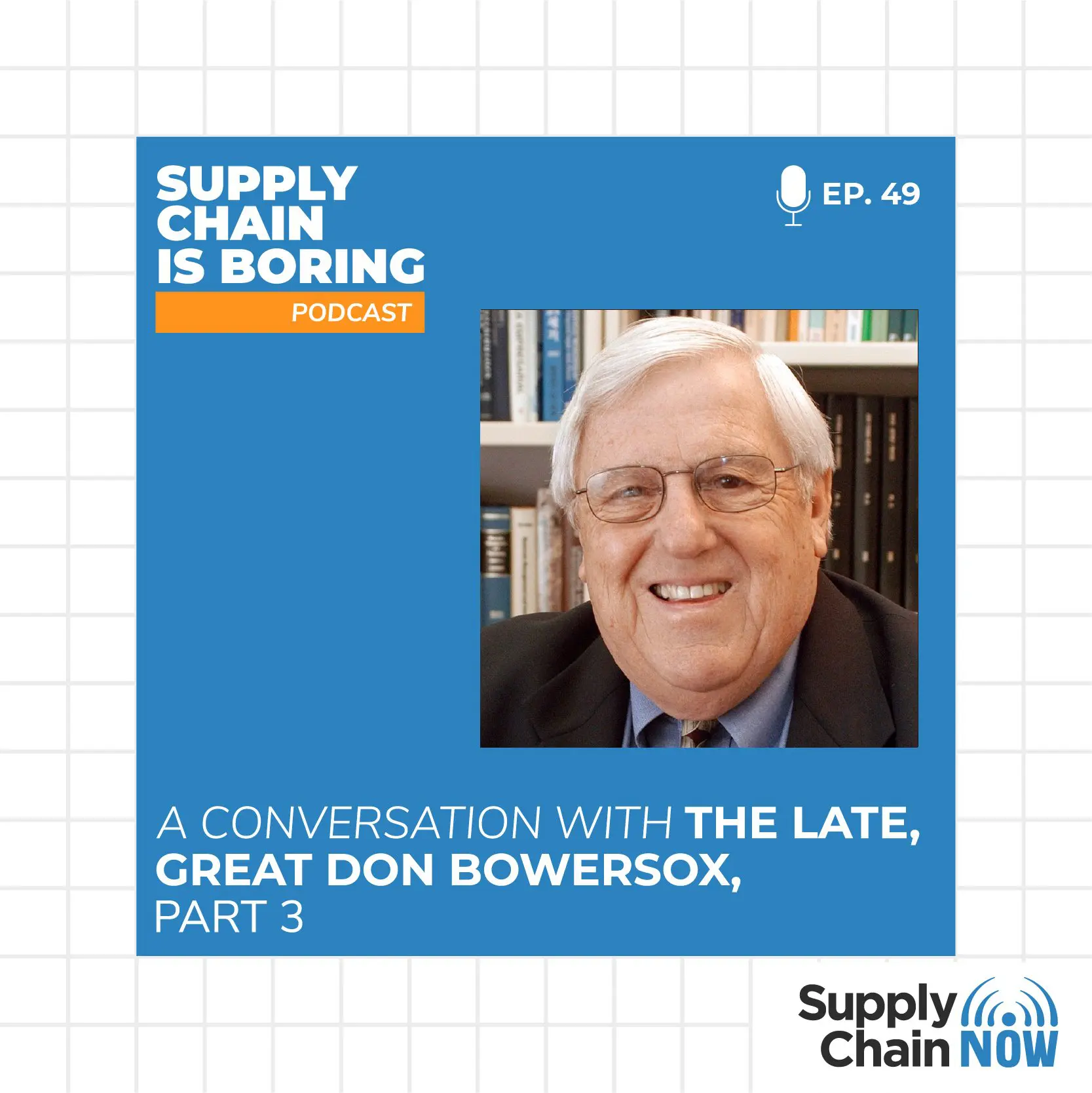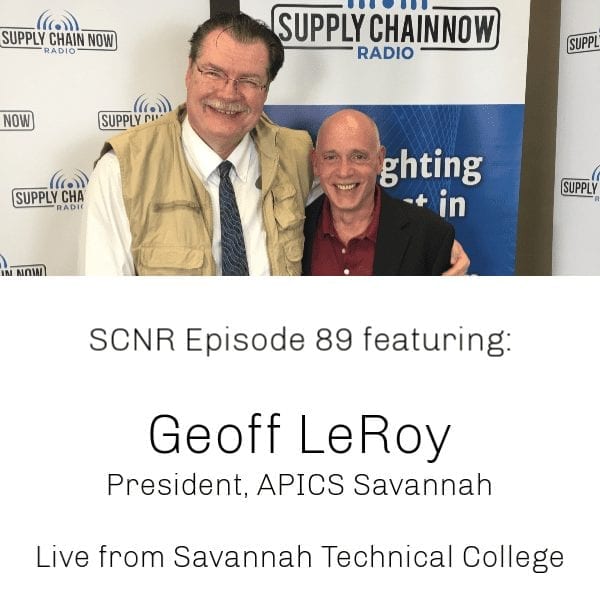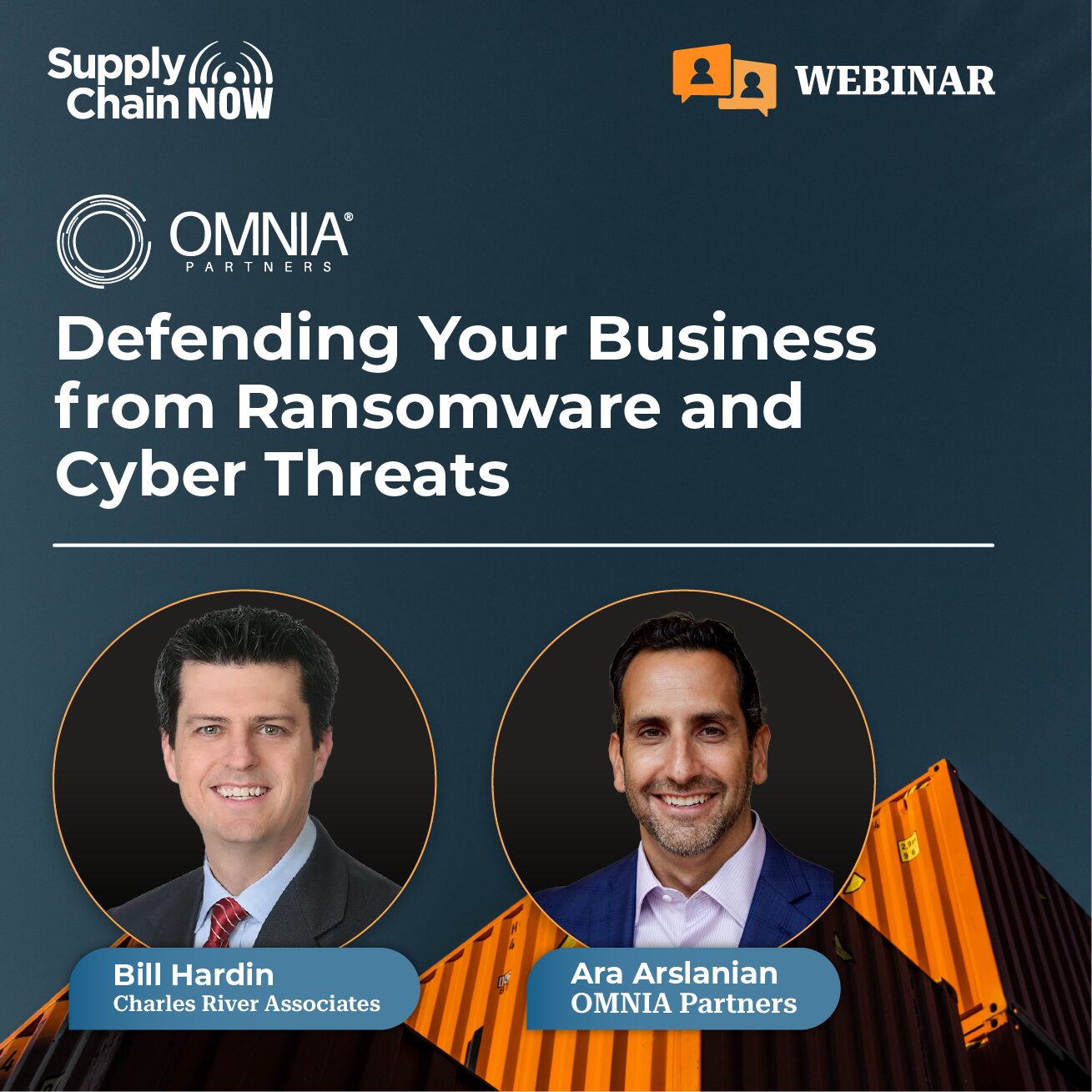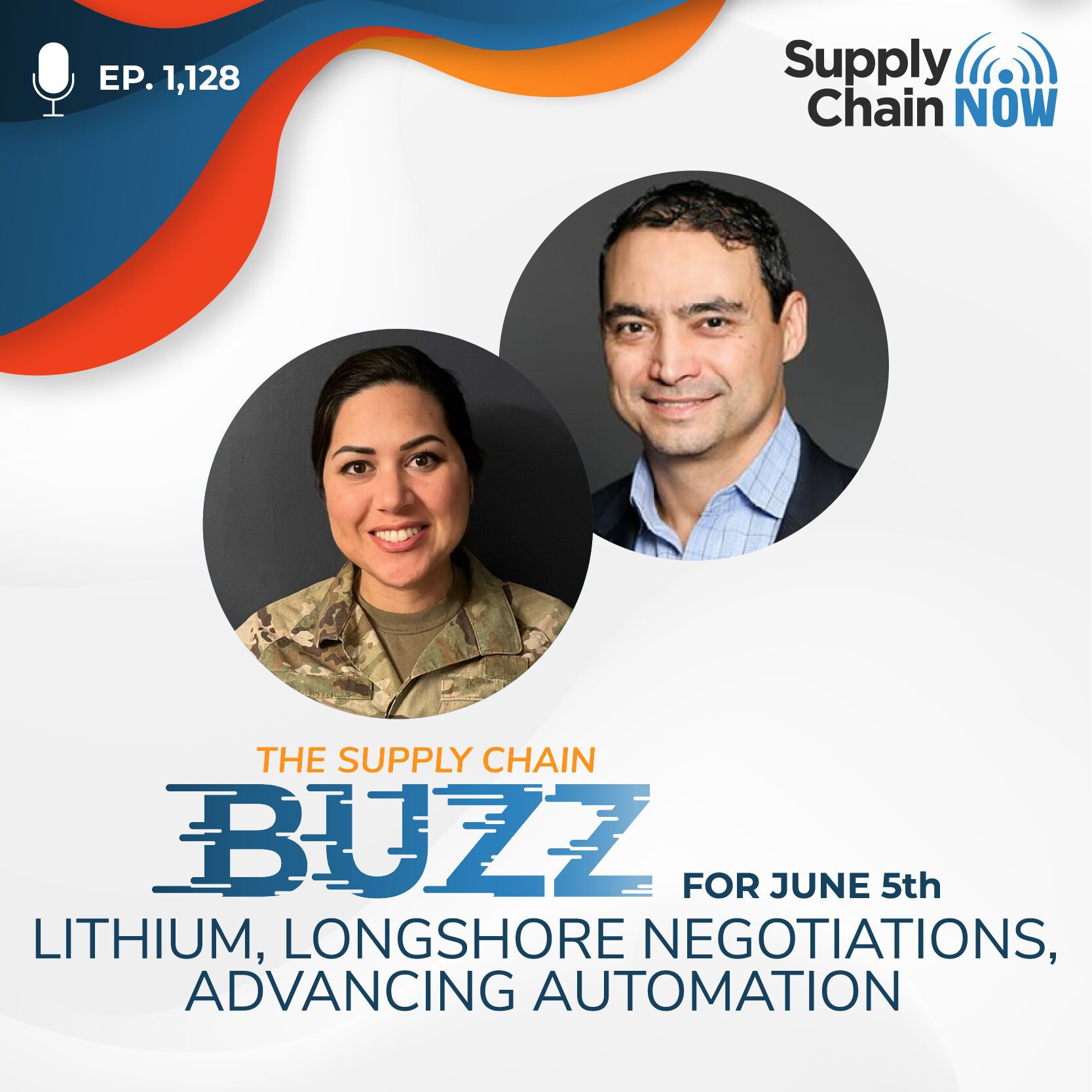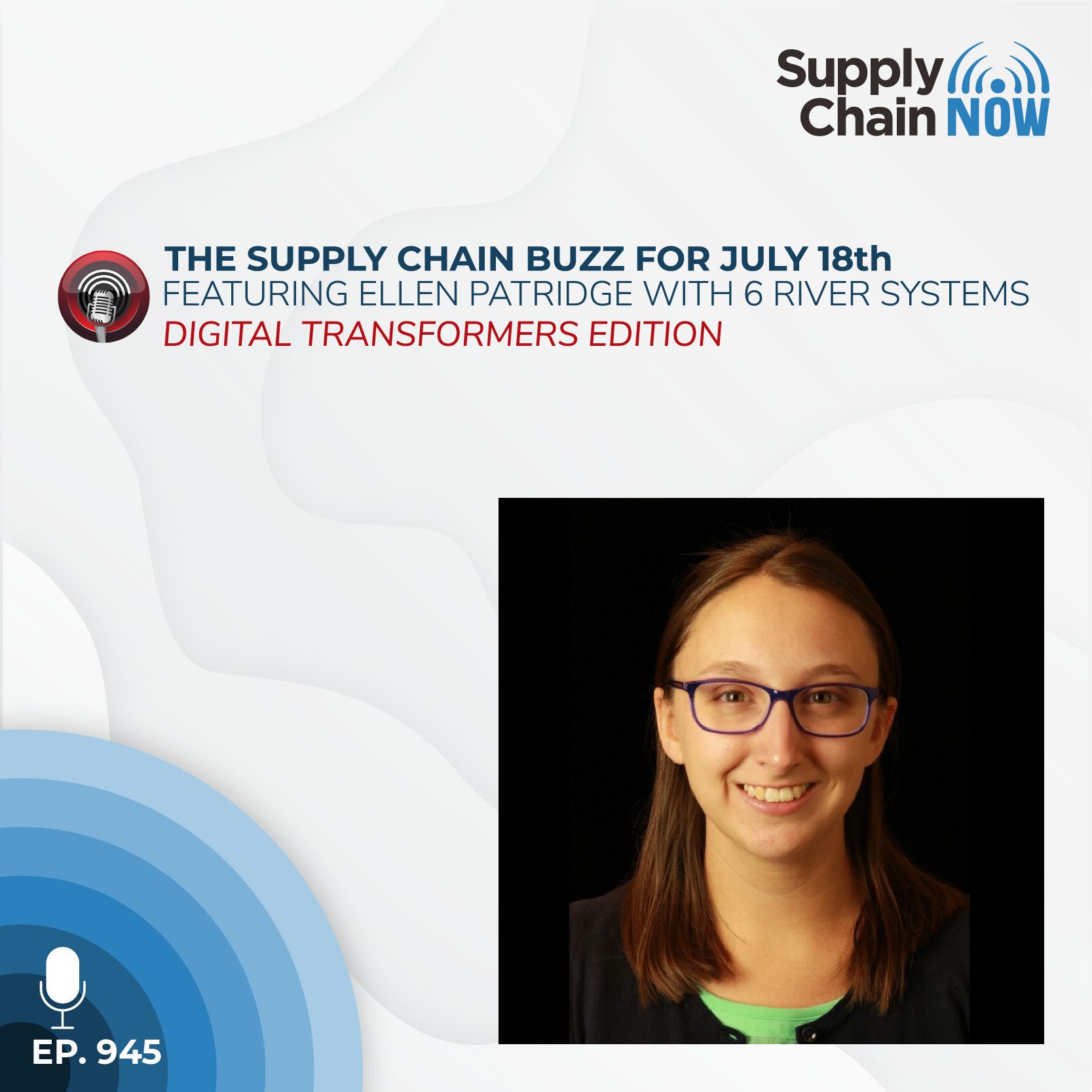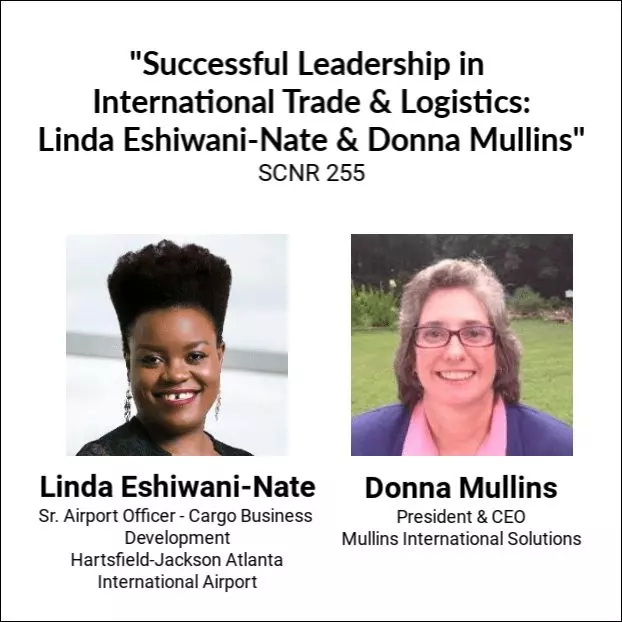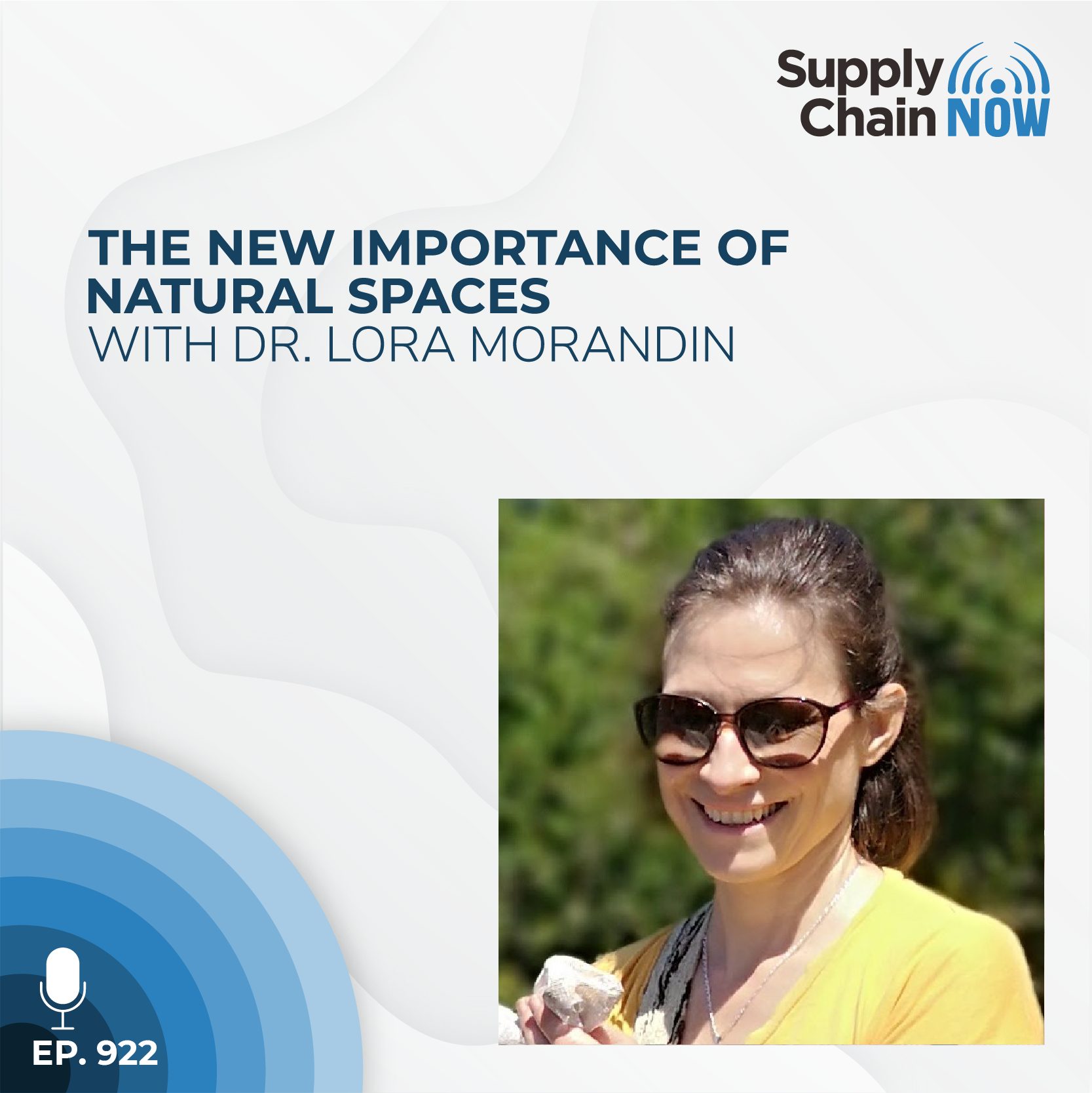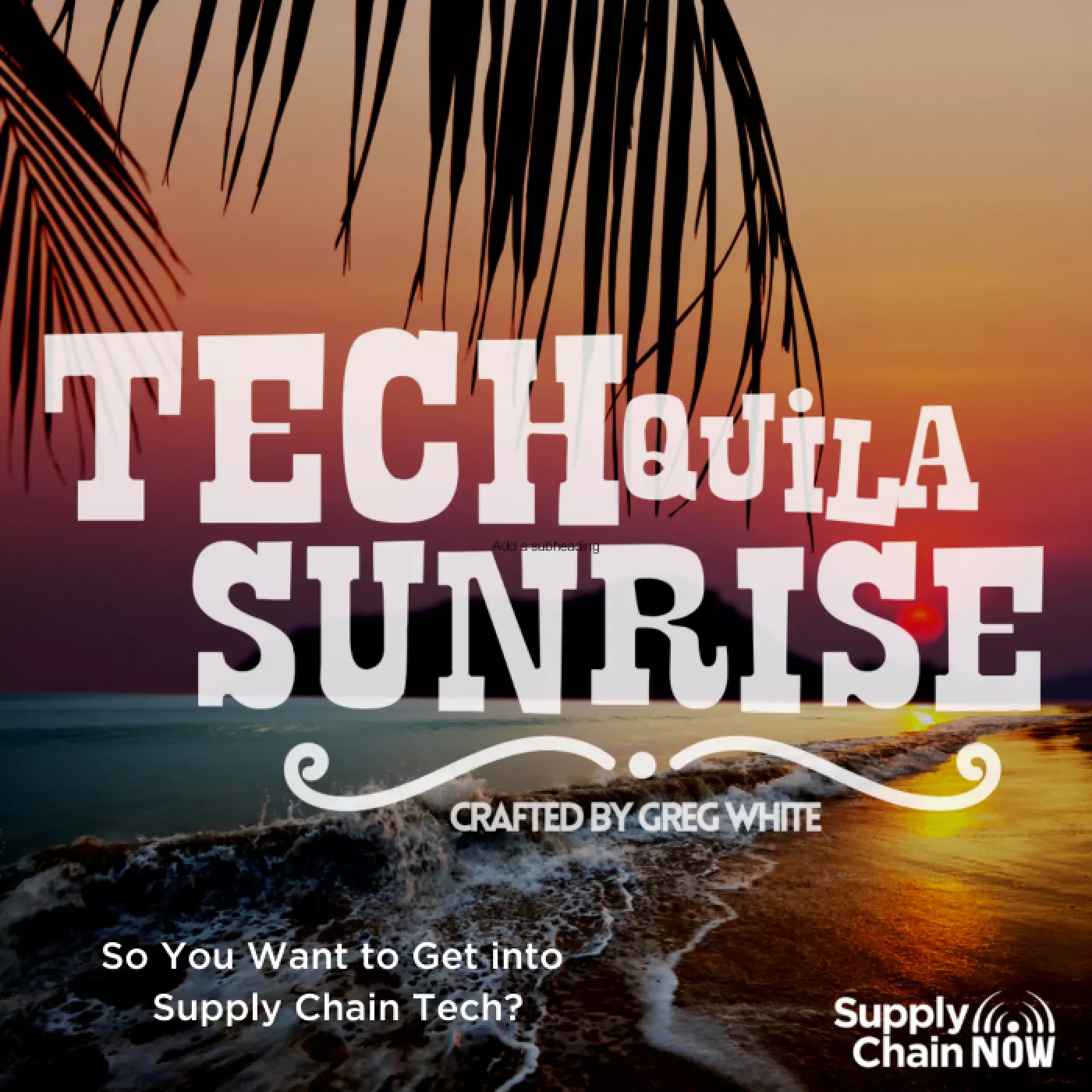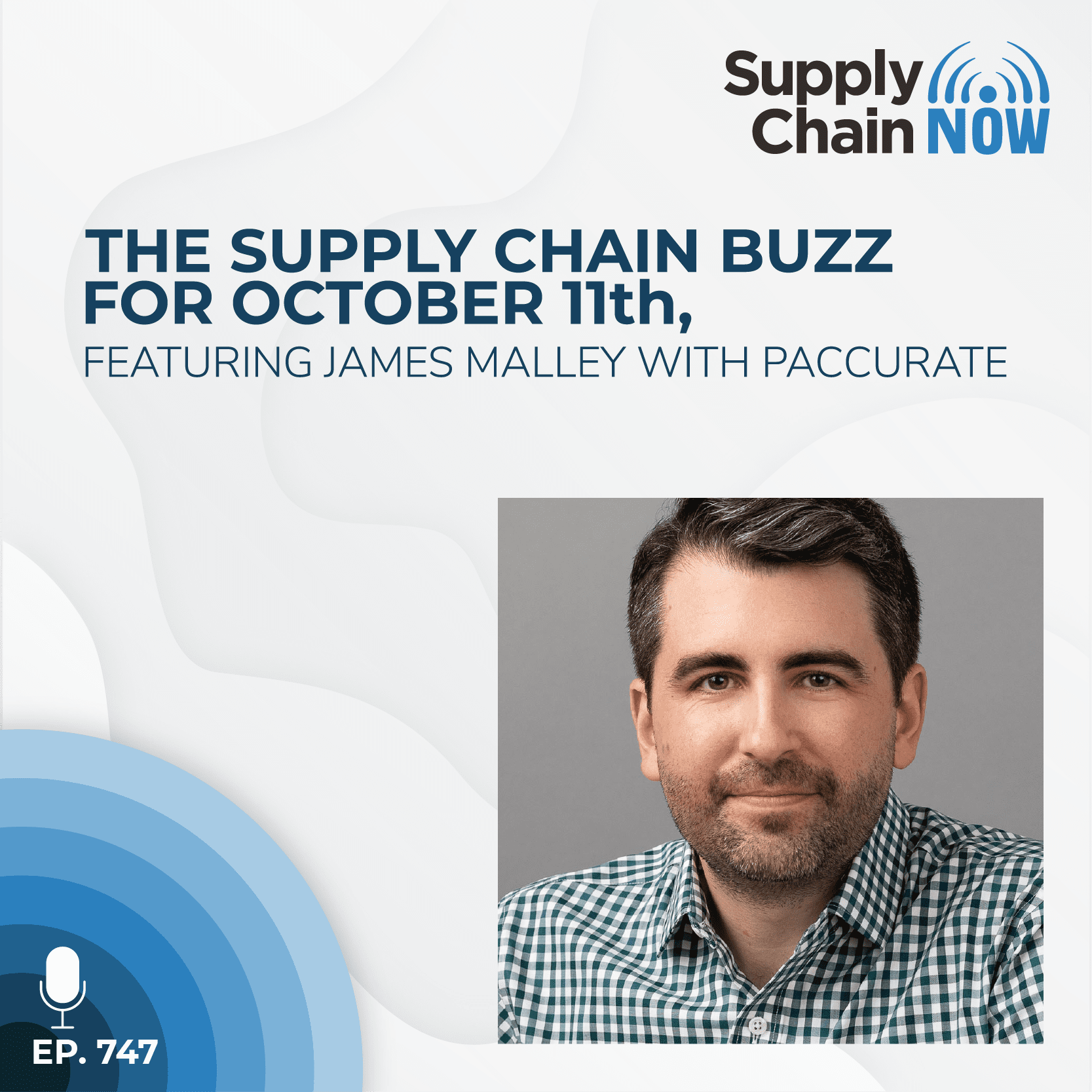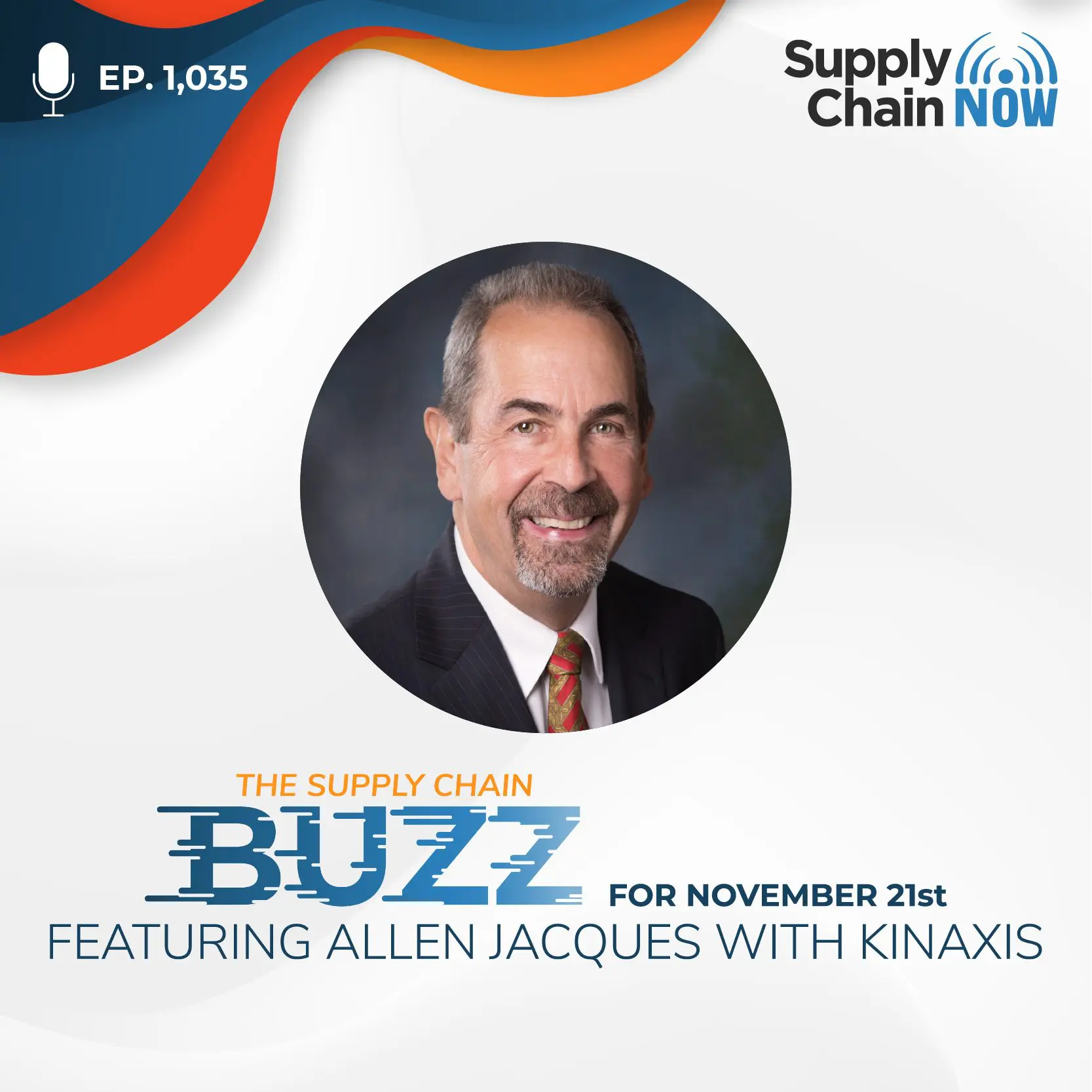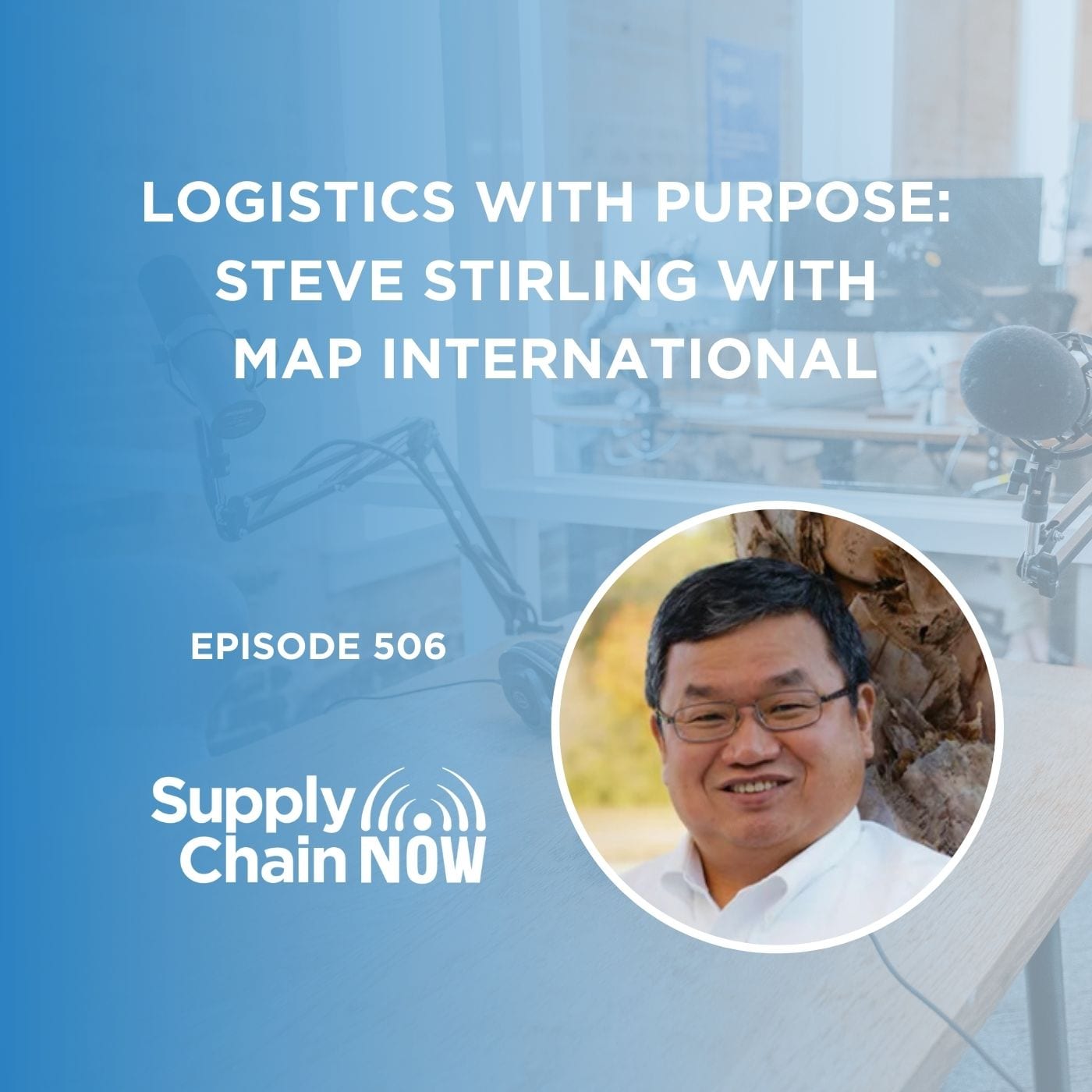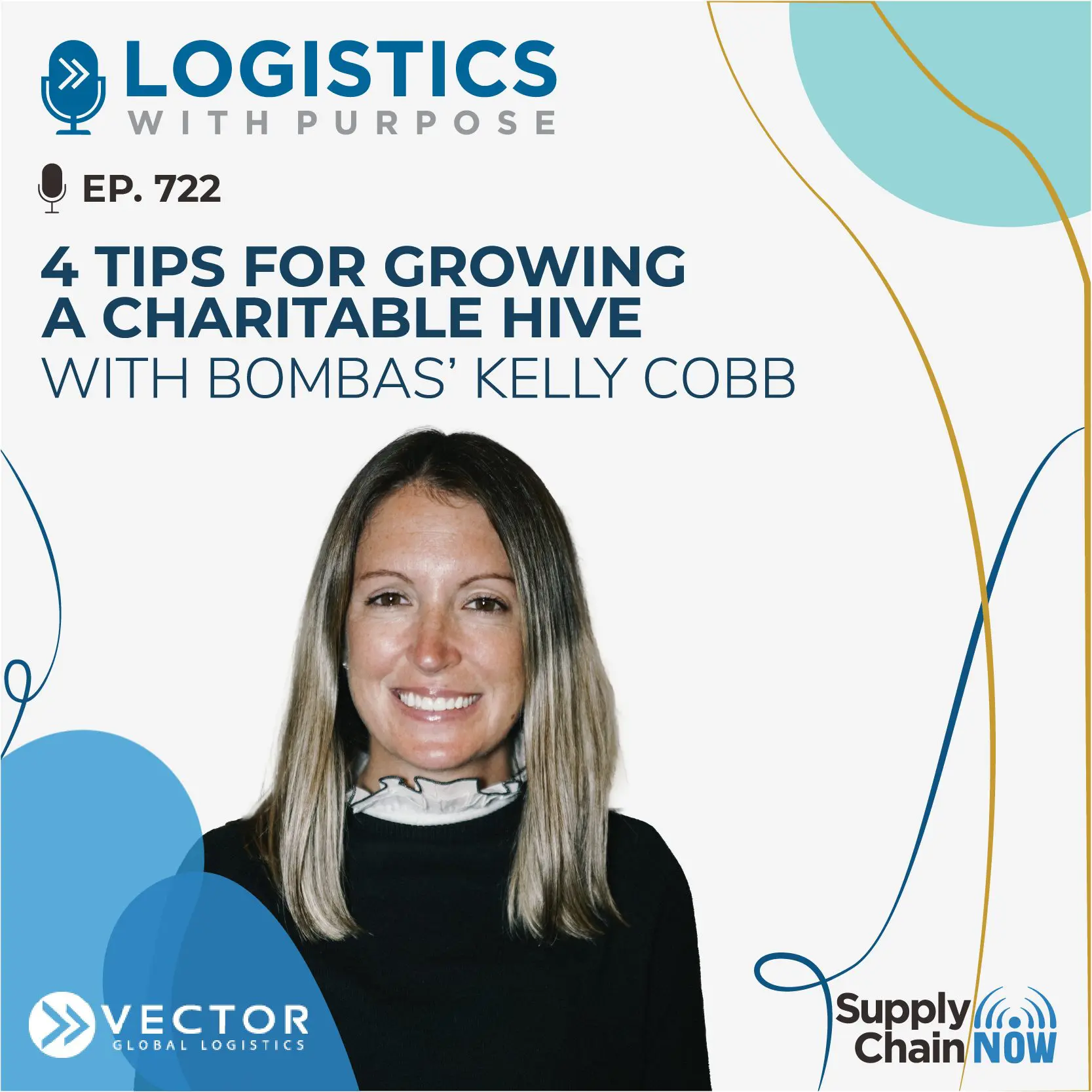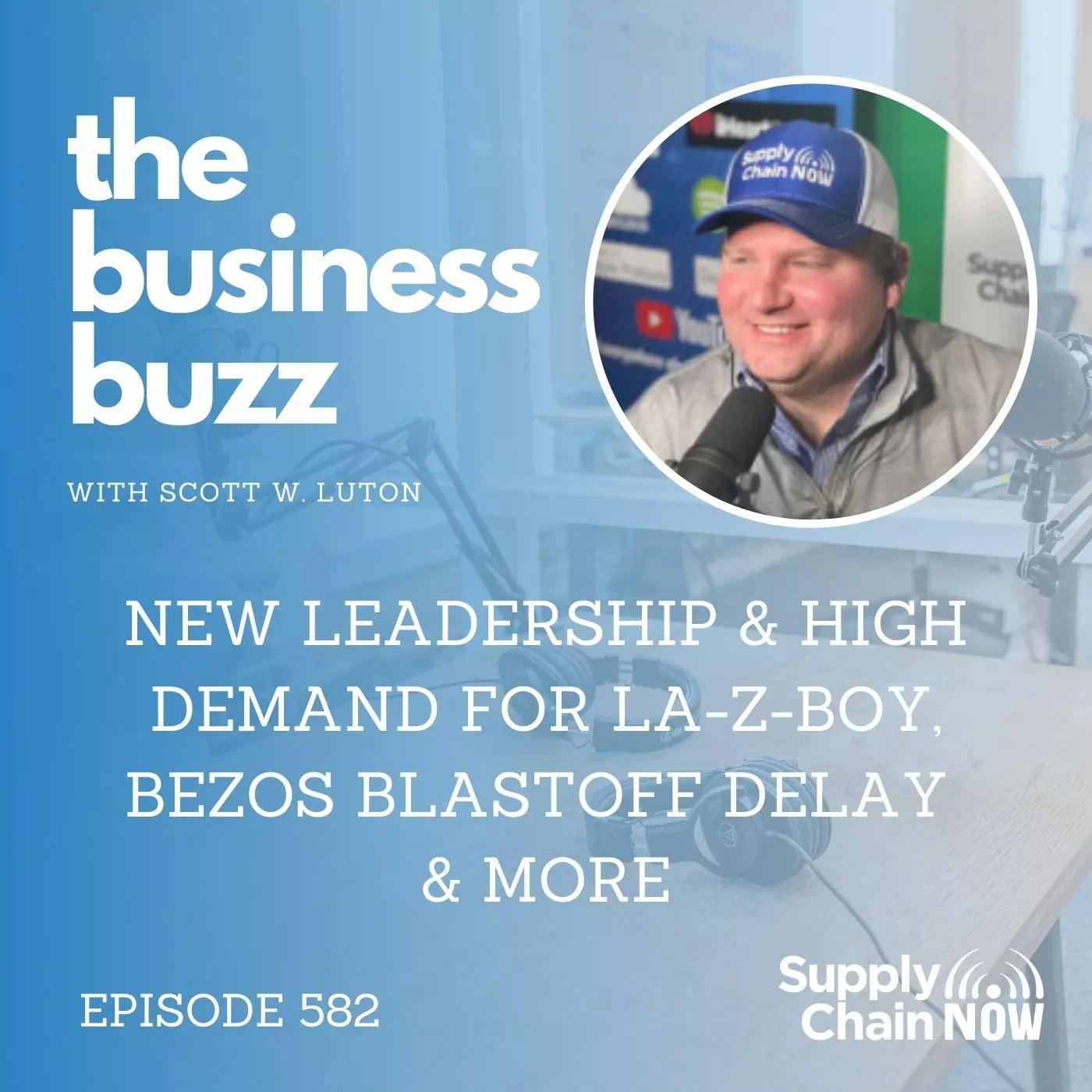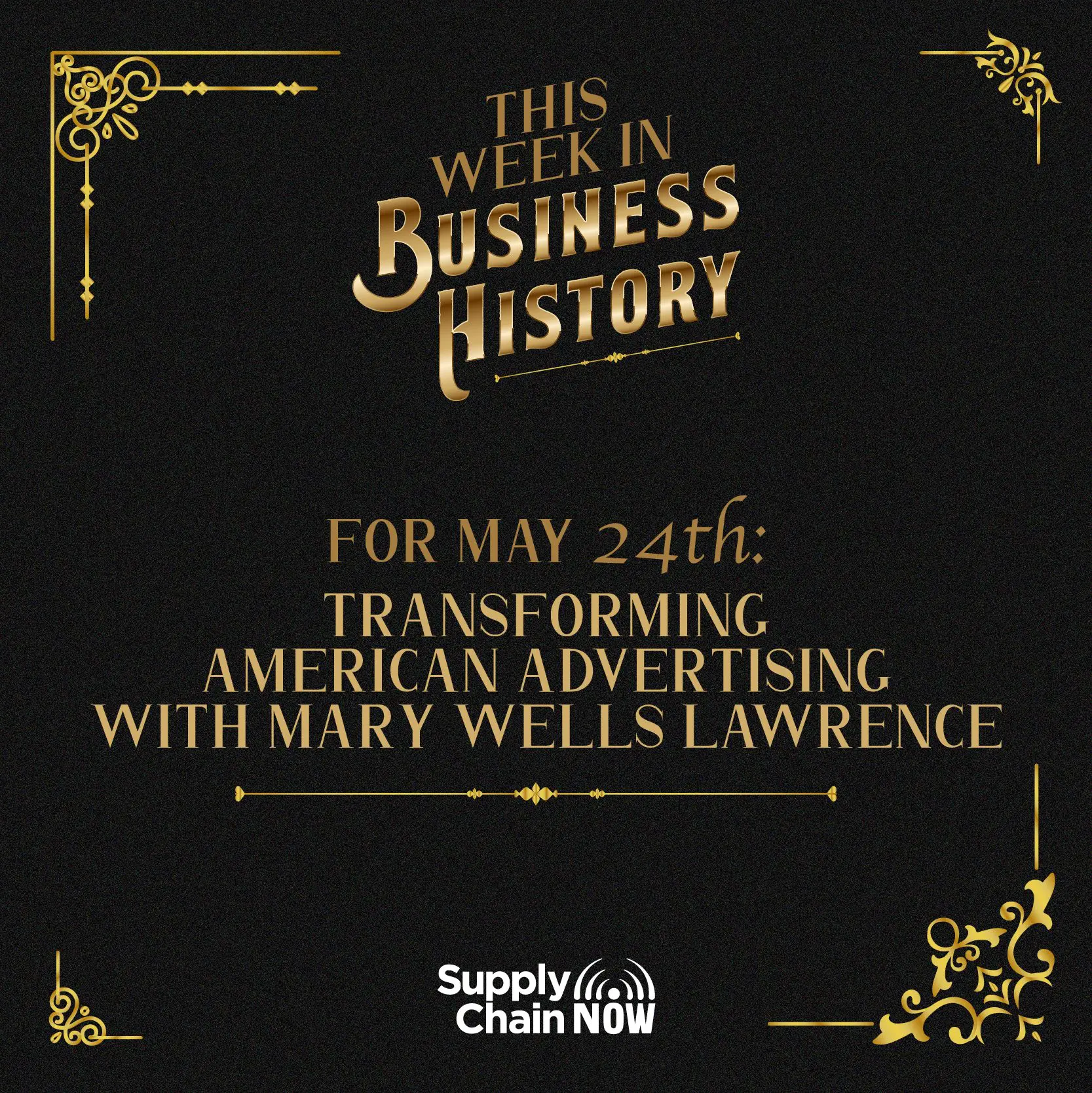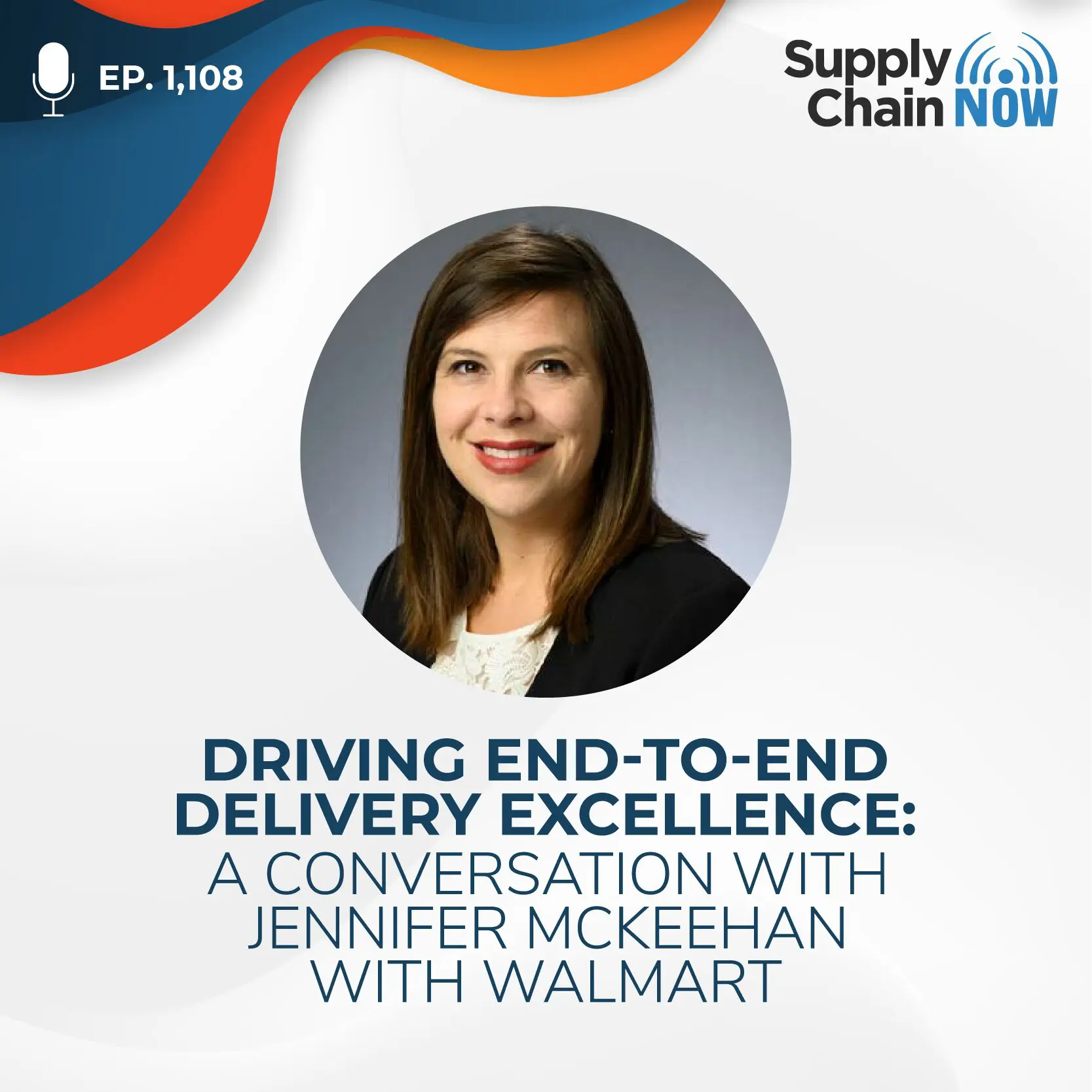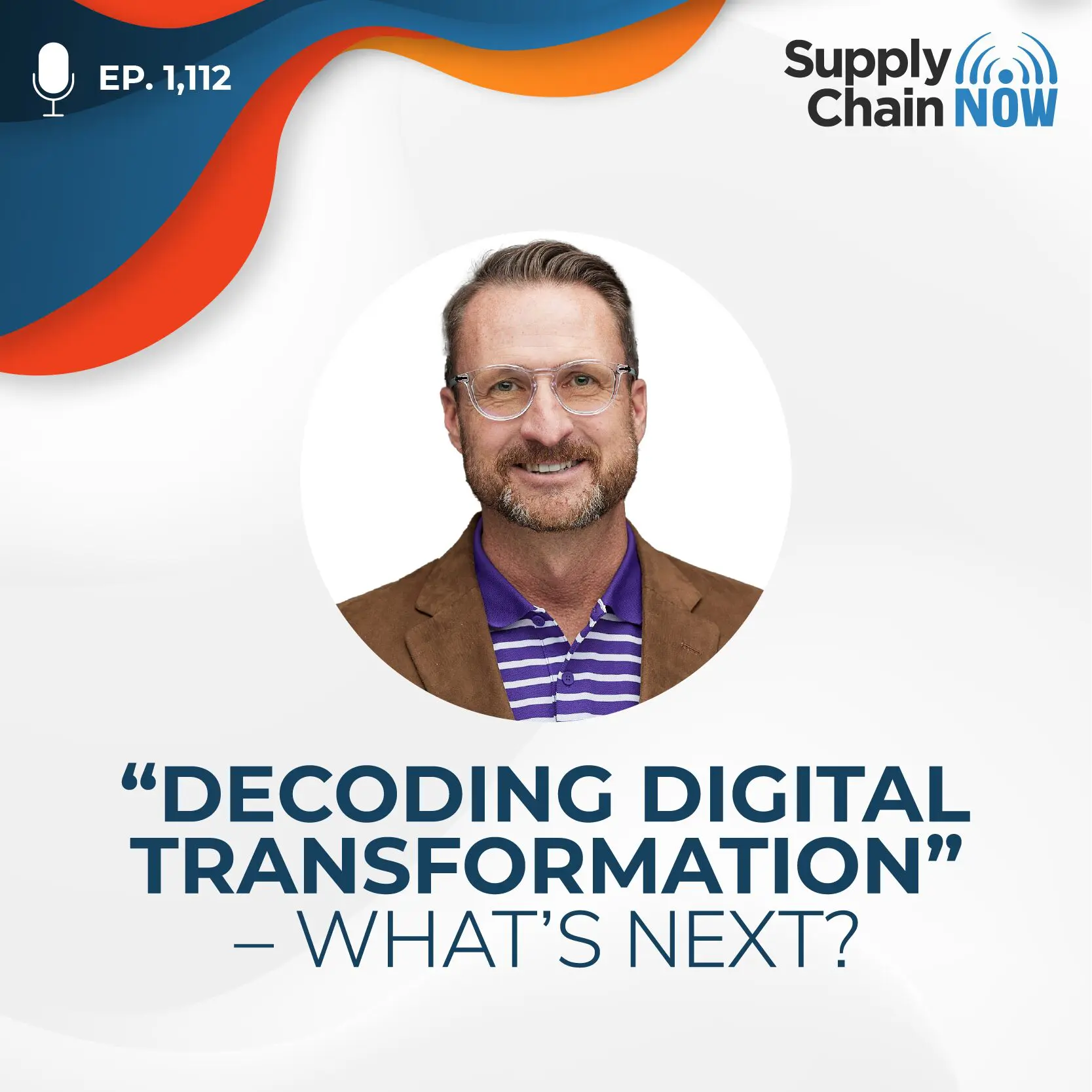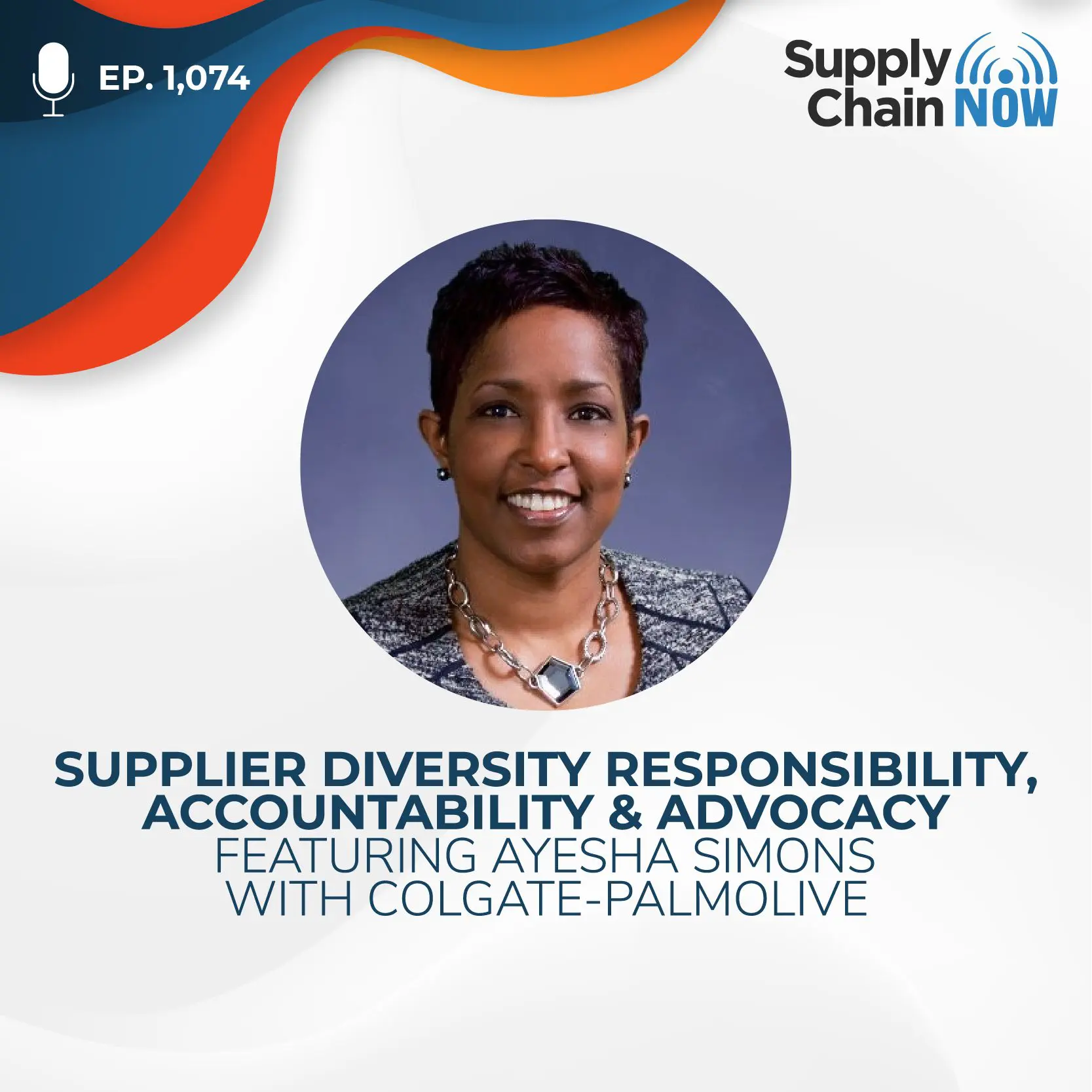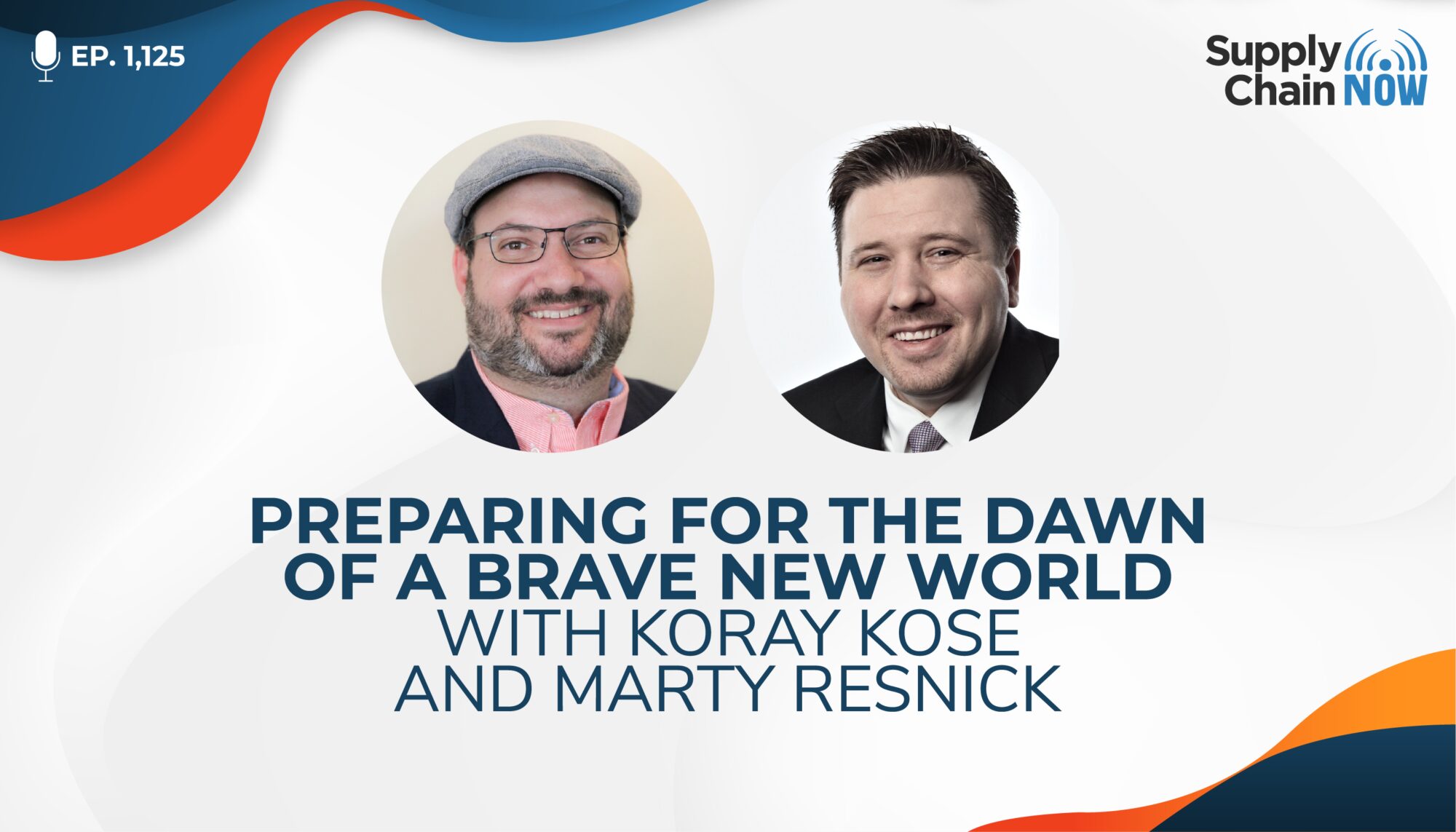
From a strategic point of view, how do we increase and drive confidence? How do we embrace the chaos that's coming and decrease complexity? Although we're going into a world of uncertainty, we have a lot more confidence.
-Marty Resnick, Vice President, Gartner
Episode Summary
The short-term challenges faced in supply chain can make it hard to find time to think about the future. That is why today’s leading supply chain thinkers focus there, looking years down the road and trying to imagine how innovation and macro trends will impact each part of the business. By exploring areas like generative AI, the metaverse, and the industrialization of outer space, they learn to think bigger and much further outside the box.
Marty Resnick is a Vice President on Gartner’s Technology Innovation team and Koray Kose is a former Senior Director on Gartner’s Supply Chain Operations team. They are involved with some of the industry’s most forward-looking projects, including the Gartner Futures lab and Tapestry research.
In this conversation, Marty and Koray join host Scott Luton to discuss:
• How Gartner is preparing supply chain leaders for the uncertainty to come by exploring new ways of imagining the future
• The collaborative working groups that underpin the Tapestry research and analysis framework
• How the Gartner team is welcoming a ‘Brave New World’ by embracing the chaos and finding ways to decrease complexity
Episode Transcript
Intro/Outro (00:03):
Welcome to Supply Chain. Now the voice of global supply chain supply chain now focuses on the best in the business for our worldwide audience, the people, the technologies, the best practices, and today’s critical issues, the challenges and opportunities. Stay tuned to hear from those Making Global Business happen right here on supply chain now.
Scott Luton (00:31):
Hey, good morning, good afternoon, good evening. Scott Luton with you here on Supply Chain. Now welcome to today’s show. Today, we got a big, big show here today. We’re continuing our series that we like to call the now Generation, not the next Generation. They’re already making an impact, and we’re sitting down with students and educators from some of the leading supply chain management programs around the world. Today we’re meeting with a great team of professionals and students from the University of North Texas who ranked number six on the 2022 Gartner Top 25 list for North American undergraduate supply chain programs. So, with that said, I wanna take a minute, as y’all can tell, we’re kinda excited. We’ve gotten a lot of feedback about this series, and I can’t wait to share with you this panel we have here. So let’s introduce him, uh, starting with Regan Weaver, sophomore at the University of North Texas. He is a major in logistics and supply chain management, minoring in marketing, what a great combination that is. And he’s also president for the Logistics and Supply Chain Management student organization. Regan, how you doing?
Regan Weaver (01:35):
I’m doing all right. How’s it going, Scott?
Scott Luton (01:37):
Doing wonderful. Great to have you here. I look forward to hearing from you. Uh, joining Regan, we have Zach Quali, senior at the University of North Texas. Now he’s graduating in May with a degree in, uh, finance and a degree in business integrated studies. But wait, there’s more. He’s got a focus in enterprise management and logistics, supply chain management. So both Regan and Zach Mann y y’all are gonna be dangerous with all this knowledge. Zach, great to have you here today.
Zachary Kvale (02:06):
Good to be here. All right.
Scott Luton (02:08):
And then joining our students is Dr. Clinton Patel, assistant Professor of logistics and operations management, and associate director of the Jim McNat Institute for Logistics Research at the University of North Texas. Now, as a practitioner and executive leader, Dr. Patel has spent over two decades, we’re careful not to go over that and date people, but over two decades in a number of Fortune 500 and Euro Fi, uh, Euro 50 firms leading global supply chains and so much more.
Scott Luton (02:38):
Dr. Patel, how you doing?
Clinton Purtell (02:39):
Fantastic. Glad to be here, Scott.
Scott Luton (02:41):
Well, I appreciate that, and thanks for your facilitation, as busy as y’all are, uh, with, uh, bringing your perspective, but also Regan and Zach’s perspective to the show here today. Alright, so we’re gonna start by getting to know y’all a little better, right? I’ve, I’ve really enjoyed the pre-show session here today. I wish, you know, uh, we should have recorded that and dropped that as a, as a supplemental podcast. But, uh, let’s start with getting to our guests a little better. So, Regan, uh, I’m a big old baseball nerd. I’m a big Atlanta Braves fan, have been since, uh, the eighties, right? And we’ve seen some ups and we’ve seen some downs. But understand you’re a big baseball, uh, uh, uh, guru as well, aficionado, but you played the sport. So tell us what positions you play.
Regan Weaver (03:23):
Absolutely, Scott. I was a left-handed pitcher. I kind of grew up in Marcus at Marcus High School in Flower Mounds, and I played first base and pitcher. I was actually left-handed as well.
Scott Luton (03:34):
Okay. Were you a home run hitter, man?
Regan Weaver (03:37):
I, I like to think I was, but, uh, but sometimes I feel like I was just a bass knock every now and then. <laugh>,
Scott Luton (03:43):
Hey, lots of singles. Win lots of playoffs and World Series trophies, right? Yes, sir. Um, so beyond your playing career, uh, who’s your favorite team in the Major League baseball?
Regan Weaver (03:53):
Growing up I loved the Rangers and especially kind of right here in Arlington, but then I kind of got into liking the Astros where they started winning, kind of hopped on the bandwagon, and especially cuz working out with their closer in high school, Ryan Presley, uh, really, really made me an Astros fan.
Scott Luton (04:11):
Man, that has gotta be cool. I bet you got some stories there that you maybe can’t share here on our podcast, but be able to work alongside a major leaguer, especially a good one. That has gotta be special Regan. All right. Uh, and we’ll get some tips maybe on how to throw a, throw a curve ball from Regan later in the show. We’ll see. Uh, alright, so Zach, uh, now you’re, uh, I am not an athlete, so I could, I can, um, bond with Regan on his love for the game, but I was a very mediocre church softball player, and that’s the, that was the extent of my athletic career. But Zach, you love documentaries and I love me and my wife Amanda, love documentaries, and there’s so many great ones now across, you know, all the streaming platforms. Um, what is one of your favorite recent documentaries, Zach?
Zachary Kvale (04:54):
So, one that I really liked recently was, uh, about the Disney Fast Pass and line system, sort of its history over, you know, the, the course of the Disney amusement parks and just sort of how they’ve gone about changing it, implementing new versions of it, and, you know, so on.
Scott Luton (05:10):
So to our listeners out there, uh, and what’s the name of that? Well, again, what’s the name of that documentary? Zach?
Zachary Kvale (05:15):
I, I would have to check on the name, but on YouTube, if you look up Disney Fast Pass history, you can probably find it right there.
Scott Luton (05:22):
There it is. We’ll see if we can add a link in there. Um, lemme tell y’all, I, if, if any of our listeners hadn’t been to Disney and especially hasn’t taken a, a like a family, uh, we have a family of five to Disney, you know, during the height of the season, as Zach knows, well, two hour, two hour waiting lines, hour and a half, 90 minutes, two hours waiting for a ride. Those fast passes that he’s talking about allows you to basically to, to zip in and with, when we add that Florida heat with those long lines, man, those are some valuable things really added to the, the, the park experience. So, uh, Zach, I appreciate that. And I also also appreciate your, um, you like, um, studying tons of information, data analytics, which we’re gonna touch on, on, on again soon. And of course, customer experience, there’s a lot of analytics helping to fuel that, uh, gains there. Alright, and that brings us to Dr. Perel again, thanks for all of your facilitation. Now, Dr. Perel, I understand that you come from a big athletic family, uh, and you’re married to a former All-American softball player, Amber Pertel. So what position did Amber play and where’d she go to school? Yeah,
Clinton Purtell (06:31):
So Amber grew up in Oklahoma. We were both small town Oklahoma people. Uh, her entire family was softball, so her sister also played collegiate softball and nieces play collegiate softball. So I married into softball, uh, <laugh>. But, uh, but yeah, so she started out at, uh, in the Oklahoma State system at Connor State College and transferred to Lipscomb University when I got my first job at Cracker Barrel Corporate in Lebanon, Tennessee. So she played corners. Uh, she was originally a, a shortstop in Lexington, Oklahoma, uh, and a power hitter, uh, an amazing, like put a ball down the middle and it’s over the fence type hitter <laugh>. Uh, so, uh, and, uh, and then they, uh, moved her to corners. Uh, so, but she’s just, uh, she’s a utility utility infielder all the way around. So,
Scott Luton (07:15):
Man, well, uh, shout out to Amber. I, I bet there’s tons of stories there. And also, uh, from Cracker Bell, one of our favorite, uh, businesses here. I’d love to hear some of the stories maybe later on Dr. Patel. And really quick, your, uh, family, uh, your, um, sons and daughters, they’re pretty active in sports as well, right?
Clinton Purtell (07:34):
They are. It’s one of the advantages of being in academia. I get to spend time as dad now, uh, and not, uh, work the, the crazy hours in, in long travel. So, so yeah, I’ve got a, uh, an older daughter, uh, that is a softball player at Oklahoma Baptist University as a nursing student. She wants to achieve the ultimate as a C R N A a nurse aesthetist in that Wow. Uh, in that program. So she’s well on her way. Uh, I’ve got a junior in high school, and her name’s Brooklyn, got a junior in high school, uh, that will be going to Oklahoma City University. She’s committed to play softball there as a catcher. She’s all, they’re both power hitters, just like mom, uh, setting all kinds of records here and there. Uh, love it. She’ll be a pre-law student. Uh, so we’ve got the softball checked off with the two girls, and then, uh, so thankfully dad was able to check the boy box.
Clinton Purtell (08:21):
And, uh, so I played football growing up and had kind of some dreams, you know, around that growing up. But different plans, you know, ended up being the, the way for me. So I get to live through my son who’s 30. He’s, so we live in Texas. He’s, he’s a big breed, right? Uh, he’s, uh, he’s 13. Uh, he’s, uh, he’s six feet tall. He is about 175 pounds right now. And, uh, has, uh, been doing the national combine route, has made it through Army Combine. He’ll be going to rivals this weekend. Uh, he’s made it to the next level of F B U, which is Top Gun. Wow. And, uh, we’ll be going to NextGen the show in Atlanta. Uh, top Gun will be in Naples, Florida, but, uh, he’s just been ranked as a top 100 and he’s just achieved a three star on the national radar. So Dad gets to spend time now, not only just watch the softball, which I appreciate Yeah. And love, right? Don’t get me wrong, but I can get to spend time in Texas football and he’ll be going to Allen High School, which is a Power six A here in Texas. So Dad, dad has lots of fun with that. He plays baseball as well, but, but he’s a football guy,
Scott Luton (09:21):
Dr. Portel, that is awesome. And I, I especially love, all kidding aside, the ability to be a dad. You know, one of my favorite things I do as a father of three is pick up my kids from school and just hear about their day. And it’s just so I can relate. And, uh, I look forward to a lot, uh, hear getting some pictures from that, that, uh, your son and your daughters as they achieved more and more athletically and from a business perspective. Alright, so, uh, really enjoyed hearing a little more about the personal side of each of y’all. Uh, three. Now we’re gonna dive more into the business side, right where you are and where you’re headed, and some of the big, uh, big things you’re gonna be doing. So, I wanna start with Regan. I love asking this question, especially on the, on this now generation series, why supply chain? Why did you pick supply chain as, as a, uh, industry, uh, sector of global business to move into Regan? Thank
Regan Weaver (10:09):
You, Scott. So I grew up, you know, like, you know, like I said earlier, playing baseball and having a bunch of these former baseball coaches, you know, throwing supply chain, uh, terms out. And I’m like, you know, slowly listening, practicing at the same time. And I’m like, what are they talking about? And, you know, I kept tearing up more and more. I have, I have a, a former baseball coach that’s now an executive at FedEx, one that’s now at JC Penney’s. Uh, and then Covid hit, and then you, you hear that it’s a huge field, and I was kind of going into college right when Covid hit, and I was like, well, that’s something I wanna grow up doing. My stepmom also, uh, worked at Walmart for the longest time, and then my brother went to U N T and he is now at B N S F, uh, kind of making his way up on the pole up there. So it got me into, uh, into the industry and I’m loving it so far.
Scott Luton (10:58):
Man, that is a full answer. Sounds like you had lots of role models there. I’m, I’m curious to know, uh, Zach, how about you? What’s your why? Supply chain response.
Zachary Kvale (11:07):
So in this sort of speaks to Regan’s point, but it, it’s everywhere. You know, supply chain is involved in pretty much every form of business out there. And, you know, I think it’s a really useful skill to have, and it’s a really big thing that we need to work on refining, uh, especially as we move forward. So I, I just think there’s a lot of value that can be, uh, created by going into supply chain.
Scott Luton (11:27):
Yes, Zach, and, you know, that’s, that’s been one of the silver linings on Dr. Patel, I’m coming to you next. That’s been one of the silver linings of this tough pandemic era that we all, that challenged us as humanity challenged us as practitioners. You name it. Um, is it elevated, uh, the status of the profession? Folks are curious about it now, and they know a lot more. And of course, we’re living in an era where we got some of the smartest consumers of all time. I would, uh, Dr. Patel, I would, I would, uh, argue and submit to you that I’m hoping that consumers understand they play a very active role, right? And hopefully one of the big things we’re tackling now, but certainly better up ahead, is this tidal wave of returns that all of us as consumers, uh, contribute to. But, uh, Dr. Patel, how about you? You’ve got, we’re gonna, um, uh, dive into, let’s, let’s talk before we get your, your y supply chain. I think I skipped over your professional background, uh, cuz you’ve got, I mean, we could be here three hours talking about all things you’ve done in global supply chain. So tell us more about, um, what you’ve did, uh, done in industry prior to getting into academia. Yeah,
Clinton Purtell (12:30):
You know, I had a, I had a, a really neat ride in corporate America and even spent some time as an entrepreneur, uh, building some businesses myself. Uh, but, uh, you know, I I, I got the opportunity to travel across many different industries. It, it started early on at Cracker Barrel Corporation, uh, where I, I kind of went and at a time, they were at a watershed moment of actually thinking of spinning off retail. Uh, retail was underperforming and they just wanted to be a restaurant company. And so I got to be a part of that team and got to do some really cool things. Like I was, I was the Billy Bass guy, remember the singing fish you push? Oh yeah, guy. I was the guy that helped standardize rocking chairs for Cracker Barrel and other sorts of things, uh, across the, the, the platform that are now some of their bestselling products.
Clinton Purtell (13:11):
So, so I got to do that. I got to move into airlines for a while, worked at American Airlines, bought jets and did M r O for American Airlines, and moved from there to, uh, to Cadbury Schwetz, Dr. Pepper. It used to be Cadbury Schwetz, Dr. Pepper. Now it’s just Dr. Pepper and Dr. Pepper. Keurig, I think is what they’re right now. But, but, uh, um, anyway, got to do consumer goods, moved to medical industry, worked for a French company, uh, ESOR, ESOR Exotica now and then, you know, moved, moved on to pharmaceuticals, moved back to Southwest Airlines, spent a little time in government at, at a tollway authority. But I got to see a lot, you know, um, and, and do a lot of things and be a part of a lot of amazing things. But the one unique thing about my experience was I moved from finance financial analysis into traditional procurement, but found that the ultimate value that an extremely savvy procurement division, an excellent commodity management and strategic sourcing group is able to do, is not just buy things and negotiate commodities and manage cost and bring value, but let’s find acquisition opportunities, especially within the supply chain.
Clinton Purtell (14:16):
The ultimate acquisition, the ultimate purchase is that of another company. And so I became the supply chain m and a guy, and that’s why my, I had that trajectory through my, through my career. And so I got to buy a lot of neat companies, be a part of a number of neat strategic alliances that brought value. And I saw the, the importance of supply chain from that perspective.
Scott Luton (14:37):
Man, Dr. Peri, I love, uh, uh, I could spend the next couple hours, uh, just diving in on that, on, on what all of you done. But I love that the ultimate acquisition is that of another company. I can only imagine, uh, some of the due diligence stories and valuation stories, uh, and, and, and the wherewithal of the supply chain execution of some of those firms you looked at. Scott,
Clinton Purtell (14:58):
Let, lemme just add to that just really quick, if I mind. Yeah, please.
Clinton Purtell (15:01):
The, the difference that the divisions I would, I would build in the approach we took was, was we would go in a company was a very much a, a perspective of what you described. We gotta do the due diligence, we gotta do this, that, and the other. Typically, supply chain and procurement was the last to find out, right? Mm-hmm. <affirmative>. So when we led the initiative, we were able to not only identify those synergies, but also integration analysis around how can we reduce cost or increase revenues through our supply chain, right? Um, and when we started looking at the supply chain as the heart, as the nervous system of the acquisition, and not as an afterthought of how do we just cut costs, the goodwill impairments and whatnot that we usually saw on acquisitions, but also the return on assets and, and the immediate, the, the first a hundred days as you hear about, of an acquisition, if it makes or breaks, um, our integrations, uh, were, I think we were batting a thousand,
Scott Luton (15:51):
Dr. Patou, I love what you shared there, especially how it seemed like you were on the, on the really the, uh, the front edge, uh, of, uh, the realization that global businesses had that supply chain, you know, is the business, as I’ve had colleagues put it, you know, there’s so much it brings to the, uh, competitive advantage of a business. And that’s certainly been a realization in recent years. So we’ll have to get the more of your stories from your background, but one l one more quick follow up question. Dr. Patel, you, we’ve heard Regan talk about some of the, you know, baseball coaches and mentors that really turned him on supply chain. We heard from Zach in terms of why supply chain for him, everything’s got a supply chain, and certainly that awareness is really been good for the industry in recent years. But why supply chain? Why for that first role at Cracker Barrel, uh, for you, Dr. Protect?
Clinton Purtell (16:39):
Yeah. You know, I, I think we’re supply chain’s a buzzword right now in media right now. Everybody, you know, talks about it, but I still don’t think people really understand what it is. And it’s a lot of things. Uh, it’s engineering, it’s logistics, it’s accounting, it’s politics, it’s, you know, it’s a cross-disciplinary, cross scientific sort of amalgamation of things that’s solve problems. It gets things from one place to another. It adds value or it significantly disrupts value. Um, why I got into supply chain, um, was number one, because of relationships. Uh, you know, I think business is better in relationships. And when you are strategic in your supply chain endeavors and focus on relationships first, uh, and you realize that you get out of the not invented hear syndrome, that your company can’t do everything, that suppliers exist for a reason that they are subject matter experts, and you can bring value in, if you look in the right places or talk the right language or appreciate the right culture, um, then, you know, the, the sky’s the limit.
Clinton Purtell (17:39):
But at the same time as we found, you know, these days post covid, it can also turn your world upside down if we don’t understand and don’t appreciate it. So, you know, if we don’t manage it and we don’t understand what it’s about, makes our lives miserable and can run our businesses out of, you know, we put us in bankruptcy, uh, or worse, put a country, you know, into an economic decline. If we look at it, then, more than just purchasing and logistics and at the true potential of what it can do, it can revolutionize things, right? Not just of all things, but revolutionize businesses and industries. Um, some people see that as disruption, right? I see it as opportunity. Some people see it as failure. Uh, you know, in one case or another, our business failed because we didn’t keep up or we weren’t aware. I see it as an opportunity to learn how to do it better. And in doing it, embracing supply chain,
Scott Luton (18:31):
I like it could be one of our best answers so far, uh, in recent show memories. So, uh, Dr. Perilla hitting home runs just like you’re just like amber. Just like Amber. Uh, all right, so shifting gears here, uh, go back to you re uh, Regan, I want to talk, you know, as really Dr. Perilla and b really all three of y’all have really implied and spoken to man, global supply chain is so much, so much more than movement, right? So much more than all those departments that all of us have already touched on in the first part of this conversation. So, uh, Regan, what is one topic or trend or issue or challenge, whatever, uh, across global supply chain that’s on your radar more than others right now? Regan, man,
Regan Weaver (19:12):
Scott, you know, that’s a difficult question, but a great question too, because every single day there’s something moving in supply chain. But in the past couple days, I’ve really, really been paying attention to production, coming back to the us, uh, you know, watching companies and the government figuring out how to do this. They’re calling it Nearshoring right now. Uh, and as you can tell when Covid hit, you know, we lacked in product, didn’t have toilet paper. Uh, and I’m kind of really looking at the progress on that and seeing how that’s gonna come and what is to come on that, because I think that’s a huge topic, especially with maybe the currencies, uh, changing as well in China. Uh, so it’s something that I’m really, really interested in and I can’t wait to see what the outcome is.
Scott Luton (19:54):
Love that. Who’d have thought that toilet paper would be the gift that keeps on giving the great American toilet paper shortage? Just is amazing. Um, good stuff there. Regan, I wanna switch over to you, Zach. Uh, same question. If you, if you survey the global landscape of global supply chain right now, what’s one thing that you’re really tracking more than others right now? I
Zachary Kvale (20:11):
Mean, uh, I would say the big buzzword when it comes to the supply chain to supply chain resiliency. But specifically I’ve been looking at the defense industry portion of that. Uh, we’ve been looking into a bunch of defense contractors and seeing how their supply chains are rebounding and really noticing that they’re taking a little bit longer just due to the nature of their work to bounce back. There’s also, uh, Regan hit it a little bit. China sanctioning some of the US defense companies and how that’s gonna impact sort of our operations as well as, you know, all the foreign conflicts going on. Just defense in supply chain has a lot going on right
Scott Luton (20:44):
Now. It’s a good point. There’s lots of sanctioning and fees and tariffs going back and forth on, across a variety of different, uh, supply chains and trade. Um, and, you know, uh, Dr. Patel, I’m coming to you next, but unfortunately, of course, in the last year, we’ve seen, um, firsthand the Russian invasion of Ukraine and, and, and what that means far beyond violence and loss. But, uh, to a, to a lesser important extent, uh, what that means for global supply chains. All right, so Dr. Patel, a a lot of good stuff there from Regan and Zach. And again, there’s so much to track with with this question, but I love the, the simple and the, and the simple focus of it. That’s one of the reasons I love posing it, uh, to our guests here. So for you, what’s one thing you, you may be, not that you’re only tracking it, but what’s one thing that may be you’re tracking more than others right now in global supply chain?
Clinton Purtell (21:33):
Yeah, and I think I’m, I may be one of the, the few right now that are, that are looking at this at least per the, the editors and the, in the revised and resubmits that we see on the academic side. And that is advanced our mobility. Scott, so you’re a former Air Force guy, you know, uh, we, we, the United States leads and military drone technology, un un, you know, hands down, uh, we, and, and we have traditionally in the United States, been the leader in aerospace. I mean, we we’re the Wright brothers watched, right? And ever since the great space race we’ve led in commercial aerospace. We have the safest, most complex airspace in the world. But Scott, where are the drones? Where is this new, uh, mode of transportation that everybody was so excited about for so long? And sometimes in the United States, we say it’s not happening here, therefore it’s not happening.
Clinton Purtell (22:15):
But heavy lift drones in the number of different industries, medical and heavy transport, are actually very active outside of our airspace. One of the things I think will drive this is the, uh, deterioration of roads and the congestion of roads, part of the supply chain problem. You know, if we think about getting a, an LTL or a pallet load from a warehouse to a convenience store or somewhere where you have to, you don’t have a straight interstate highway, but you have winding roads and it takes a few hours and pretty expensive gas and a driver. But I could have a heavy lift drone, very capable drones, lots of technologies out there capable of going 300 miles, carrying 3000 pounds fully autonomously and low altitude non congested airspace, and turn that drone five times where I might turn that truck twice a day on a short range route. You know, that’s pretty disruptive. Um, and so that’s what I’m tracking is the advancements of drones and advanced air mobility, what we’re calling air taxis. Um, and the advantages that that will have, uh, once we open the US airspace and how it may disrupt a number of traditional, uh, either compliment or disrupt traditional forms of, of logistics and supply chain.
Scott Luton (23:23):
Dr. Peru, I love that answer. We just interviewed, uh, a Walmart, uh, senior executive. They’ve made big gains, uh, as, as other retailers have really struggled to make more gains in the testing and the clearances and whatnot. So, great, great point. We got some interesting times ahead for sure. Um, alright. But it really has to be said across global supply chain drones. Sure. Automation, sure. Uh, the analytics Sure. The talent factor opportunities for folks, right. Um, I wanna switch gears and I want to, I want to kind of move into the University of North Texas, as we mentioned on the front end, loss of accolades, lots of recognition, uh, on inside the top 10 for Gartner in 2022 for, uh, supply chain programs across North America. So, Regan, I’m gonna circle back to you here, uh, as customers, I’ll put it, of, uh, U N t, uh, Regan, what, um, what makes the program so, so special there for logistics and supply chain management?
Regan Weaver (24:18):
Well, you can just see one of our doctors right here, Dr. Patel, uh, given everything he has, uh, you know, that’s, that’s one thing though. Uh, all the doctors, you know, are very friendly. They’re out to help you. A lot of students, I feel like don’t understand that and don’t see that. And then another thing is I feel like we are almost our, like our own distribution center or something. You know, we are in the middle of a supply chain area, uh, you know, like right in the middle of it. Uh, and so, you know, there’s a lot of opportunities that comes with that. There’s a bunch of businesses right here in the dallas Fort Worth metroplex, kind of being president of the logistics and supply chain organization and makes it very easy, uh, to, to get a tour going. You know, let’s say at B N S F Row, it, you know, their headquarters are right here in Dallas, uh, Southwest Airlines, American Airlines, we’ve gone on all these tours, and that was in just one semester. So, you know, that’s, that’s something to be said, and that’s something that makes U N T, you know, get up there on the top charts for sure.
Scott Luton (25:18):
I, I love some of the things you point to there. Two of them in particular, of course, the infrastructure, uh, you know, every city, every university, every port, every supply chain, um, Metro Center takes advantage of local infrastructure, right? And that’s clearly one of the advantages there. And then secondly, one of the things you touched on is all the tours that y’all have been conducting. That is the mo One of the most valuable things that current supply chain practitioners, students that are looking at breaking industry can do is get out there and view operations and connect and see problems, challenges, solutions, talk to people. Uh, what a great learning experience. Zach, same question to you. So what makes unts University of North Texas’ supply chain logistics and supply chain management program so special?
Zachary Kvale (26:01):
I mean, for me, it’s a lot of the people, I, I, I know we’ve been mentioning the talent a lot, but really a lot of those professors have sort of gone out of their way to make sure that all the questions I have, all the opportunities I could possibly get have been presented to me. And it’s been, uh, really heartwarming and just a very good experience to have with all these professors for me,
Scott Luton (26:22):
Man. Okay, so, Dr. Perilla, Zach’s answer is, well, Zach and Regans, both their responses have gotta put a smile on your face, uh, comment on what they’ve shared, and then if you can, you know, uh, I know you’re not looking to pitch U n T, but you’re, I’m, uh, clearly you’re accomplishing a ton there and cranking out the talent pipeline in the industry that needs it. So what’d you hear there from both of our guests here, Regan and Zach, and what do you think makes the program so special?
Clinton Purtell (26:49):
Yeah, you, you bet, Scott. So, you know, I worked for a little over a decade in the Dallas Fort Worth area and got to work some other places across the world and, and got to work with school universities. When I was, when I was on the other side of the fence, when I was choosing which university to come to after I got my PhD, there was something that kind of stuck out. You know, I, I had offers from some fantastic supply chain programs and, and some, you know, tier one, uh, you know, very prestigious institutions. And, um, there was something different about U N T. And when I tried to put my finger on it, and of course, as a PhD, I had to look at the, at the, some of the details behind this, some things started to stick out. So, so first, U n T has some big problems, Scott, and those problems are growth problems.
Clinton Purtell (27:30):
Our, our growth and our college of business is double digit semester over semester almost. Um, and, and so, so we have a lot of people wanting to come here, which is, it’s usually that good sign, right? Uh, that was number one. Number two, um, you know, U n t primary campus is in Denton. Uh, it has some other institutions, some other campuses in Fort Worth, one in downtown Dallas. Uh, but they formed a relationship with Frisco, Texas, one of the fastest growing cities, I think, now in the world. Uh, okay. Which becoming sports Mecca, but we see just all kinds of industries moving in. And so Frisco did a long-term partnership arrangement with Frisco between U N T Den and Frisco to, to establish U N T Frisco. Um, and so we built a branch campus. There was a hundred acre agreement, uh, you know, for that.
Clinton Purtell (28:15):
Uh, we have UNT Frisco now, and it has just exploded <laugh> right next door to the PGA headquarters, the new PGA headquarters up from the Star. Um, and so, so we see some really, uh, neat things there. But here’s what really stuck out to me. I got the opportunity to teach it at a number of great supply chain programs as I was an adjunct and other sorts of things, and I couldn’t quite put my finger on the difference. And finally, I realized it was this guy that, um, a third or so of the students at U N T are first generation, um, we’re, we’re a majority minority. Um, so, so, well more than 50% identify as some category of a, of a minority. Uh, so incredible diversification. Um, and I believe I I’ve heard numbers between 20 to 25% of our students are, are what we would categorize as neurodiverse.
Clinton Purtell (29:01):
Um, and we’re an R one growing institution and one of the fastest growing, you know, economic areas of the country. And so, as I started working with, you know, these students versus other institutions that were just phenomenally ranked, you know, um, I certainly realize that the grit factor of a u t student is a little different. So, so I’ll ask, I love having one on ones with students, and, and I do it at all my, all institutions. I ask a student, you know, what do you wanna do when you grow up? I usually get the answer, I wanna make a lot of money, have a great job, <laugh>. Often when I talk to a U N T student on average, I get a different answer. I’ll still get that answer, Scott, but I get another answer because a lot of our students are non-traditional first generation minorities.
Clinton Purtell (29:37):
And that is, I wanna get, I want to, I wanna get mom outta the hood, you know, I, I, I wanna make sure my brother and sister can eat. So the, so the mission and the grit of a d of a U N T student is different than that of a traditional student I would see at a, at another university. Not to say those students aren’t at other universities, but, but that creates a different culture at U N T. And because of that perseverance factor and that desire to achieve and win, um, you know, and succeed in some cases because of survival, um, that was a big, big draw for me,
Scott Luton (30:09):
Dr. Patel. I appreciate you sharing that. Uh, and the power, um, the power there within when it comes to, uh, the power of diversity. Uh, Regan, I think you, in, in talking pre-show, I think you had a, a, a couple of passionate points around that, right? Yes,
Regan Weaver (30:22):
Absolutely. Dr. Patel, I think you had a great point, uh, about being diverse. You know, I grew up at my high school, wasn’t a very diverse background, uh, over there. And then I kind of came to college and I saw how diverse it is. And I think that is a huge thing about U N T because it got me to see kind of the real world, and it got to see that not everyone has to have the same background to get the position, you know? And so, as being president, the organization for logistics and supply chain management, you know, when we, when the officers all get together and we’re brainstorming, everybody is thinking something differently, and, you know, that’s something big that, you know, most companies are looking, uh, to have in their, in their future employees.
Scott Luton (31:05):
Yeah, that echo chamber, right? Welcome in a wide plethora of views and, and global views and how we approach, not just problems, which is important in and of itself, but also opportunities, right? Um, so good stuff there. Uh, Regan, all right, I wanna switch gears and talk about internships because both of our guests are involved in some impactful internships. And then I’m gonna come to Dr. Patillo and we’re gonna talk about why that’s important. So, uh, Zach, let’s circle back to you first. So Zack, tell us about, uh, where you’re currently interning.
Zachary Kvale (31:37):
So currently I’m interning at Lone Star Analysis, which is a data analytics company. And, uh, we’ve been doing a lot of tracking sort of how government spending works and, you know, looking at their buying behavior and also the logistical component of that, how, you know, logistics and supply chain may be affecting what the government’s doing, what the government’s expectations are.
Scott Luton (31:57):
So, man, uh, and I, what I understand come from Dr. Perilla is, uh, we could put up, put together a whole series on some of the work you’re doing there as part of that internship, uh, Zack and I bet it’s right up your alley, cuz you loved analyzed loads and loads of information. Is that right?
Zachary Kvale (32:13):
Absolutely. I love data. <laugh>
Scott Luton (32:17):
<laugh>. I love data. We need a t-shirt. Has a t-shirt, is it? Um, all right. So Regan, let’s talk about your internship and, and what you’re up to. Absolutely.
Regan Weaver (32:26):
So I actually, you know, I keep referencing, uh, being the president, uh, but you know, this is a really big thing for students. We’re trying to grow the organization and when being president, we have a thing called Handshake at U n t. Some, uh, colleges have it, and it is, I mean, straight employment for, for, uh, college students. And so I kinda look through that every day and pass it on to other students. And we have got employment up very high in our organization. I would say almost every person in the organization is getting an internship. And so, with that being said, I have had multiple, uh, grateful opportunities that I’m proud to say. And so I had an interview actually yesterday with Calloway Golf. In fact, Calloway Golf just bought top golf. Uh, for those of you that just kind of go and have a good time, don’t take golf seriously.
Regan Weaver (33:16):
<laugh>, uh, top golf is a good spot to be and have a good time. And so Callaway just bought them, and I think I’ll be working there this summer as well as I have a little research project that I’m working on with a few of the professors at U N T. And we are doing research, data analysis for forklift drivers. And so we put a little cap on their, on the forklift driver’s head, and we put some gel that connects to, um, you know, their sculpt, and it actually reads kinda where they’re thinking and the waves of what they’re thinking. And what we’re trying to do with this is trying to get it more efficient for forklift drivers. See how long, you know, how efficient they really are going in these hot summer Texas, when it’s 105 degrees, you know, are they really gonna be efficient for two hours straight? Mm-hmm. <affirmative>, I don’t know. So that’s kind of what we’re doing, and, uh, I’m really loving it and it’s really a good opportunity as being a sophomore here at U N T.
Scott Luton (34:08):
All right. So, Dr. Patel and con you next, you know, what I heard there from Regan is, uh, how important it is and some of the work they’re doing to improve the quality of life and, and their roles and enable them to be more successful folks on the frontline. And we, as we all know, those are the folks that make global supply chain happen. So I loved hearing that, Regan, we gotta take care, uh, of those folks, uh, in our facilities no matter where they are, hot Texas during the summer or halfway around the world. Dr. Patillo talk about, um, two things here. Uh, the internships that both Regan and Zach are up to. Um, and then in general, the power of internships. Why more schools and, and employers should invest in internships maybe?
Clinton Purtell (34:50):
Yeah, absolutely. So, we’ll, we’ll hit to, you know, why internships first, uh, of the first two questions. So it’s a very competitive place out there, especially for an undergrad that’s trying to go into the world. And, you know, dealing with folks that, you know, 10,000 other undergrads trying to get that same job, or folks who are changing industries or, or whatever the economic situation is, or that industry situation is. Um, somehow the, the student has to stand out and, you know, they all come out with the same degree. They, if they’re going to an A, a C S B school, they, they’ve had the same curriculum, different professors, maybe some different war stories, but what separates them? Um, and so the ability to talk about not only what I did, but how I did it and gain that perspective is absolutely critical, you know, for, for the, for the student.
Clinton Purtell (35:36):
But here’s an even better thing about the internship. It’s, it’s a, it’s a tight labor pool out there. Uh, you know, when we see companies wanting to move into Frisco, when we’re working with the Frisco Economic Development Corp, or McKinney, you Economic Development corp, or just local employers, you know, the, the one thing they wanna talk about is labor pool, right? Why should I relocate to your area? Tell me about how, where am I gonna find employees, companies? How do I get access to your talent? If you’re waiting until graduation, you’re waited way too late, uh, the top talent is gone, the top talent finds the opportunities. That’s not to say the talent that’s left is not good. Uh, it’s just your, your options or much less, you know, when I was in industry, I preferred the try before you buy approach. Um, you know, an internship gives you a chance to, to try talent before you buy.
Clinton Purtell (36:20):
And if you do it in partnership with the university, you get to screen who you’re bringing in as an intern. And I would much rather deal with a 10 99, you know, or, or an hourly worker that’s not a W two employee. If there’s not a good fit or we have a cultural problem or something like that within the organization, it’s, you could address it much quicker, you know, when the person’s not at w2. So, so that becomes, you know, one issue. The second is so many companies do a, uh, a hot potato internship program, right? We need an intern this summer, but we’ll talk to you again in a few years. Um, and if you don’t start that pipeline, you’re just an interest to that student when you have a relationship and a funnel, you become talked about by many students. And so there are other benefits there, but I would say this, I would say, Scott, the internship idea is old.
Clinton Purtell (37:06):
It’s, it’s out phase. It’s kinda like some social media platforms that are kind of going out and others are coming in <laugh>. Um, the, the old, the old idea of let’s just put an internship out there and hopefully people apply and we’ll go to career fairs and, and start that, that, that’s, that’s gone. I, I reference, you know, using strategic sourcing as a form of acquisitions and thinking outside the box. You know, Regan talked about something that I’m very involved in as well, and that is using our students, undergraduate students, not PhD students, undergraduate students for real research. And I’m not talking about a long-term capstone project. I’m talking about finding actively involved PhDs, professors who have a pool of high potential candidates that wanna solve problems. And let me tell you something, a motivated undergraduate student, especially somebody like from u n T with the grit factor I talked about, can solve amazing problems very quickly without having the bias that somebody who’s worked in industry for quite some time might have. Um, and so you get very unique perspectives and in some cases from somebody who represents your future consumer, right? Right. So you’re getting all kinds of value by doing that. So going beyond the internship to, uh, to finding ways of partnering with the university, uh, for not just capstone projects, not just guest speakers, but problem solving for your organization, pure indoctrination, what I used to call embed the student and the university within your organization. And they will help you solve your talent problem as well as your other problems.
Scott Luton (38:41):
Yeah, I, I think so much to your, one of your points is how you structure it and, and number two, how you, uh, empower these incredible minds that are so capable. Um, you know, the, the word intern, uh, we would replace that word intern, I can’t remember the word we would use here at supply chain now, because intern in and of itself can, can imply trainee or, or something that, that really diminishes the value and the capability of these participants with an internship program. Uh, man put ’em to work cuz they are, they are capable and ready to go and ready to contribute.
Regan Weaver (39:15):
And I also have kinda one more, something small to add to that, but correct me if I’m wrong, Dr. Patel, I think if you’re majoring in logistics and supply chain at U N T, you have to have at least one internship to graduate. Or is it, is it two or one?
Clinton Purtell (39:28):
It is a mandatory requirement to graduate. That is correct,
Regan Weaver (39:31):
Yes. And, but that’s something cool, you know, a lot of colleges don’t have that. And, you know, that shows that you should be able to get an internship while you’re in college right here at U N T, especially
Scott Luton (39:40):
If you wanna graduate <laugh>. That’s, that’s kind of why it’s important too. Uh, hey, good stuff there. Uh, Dr. Patel and Regan and Zach. Um, alright, so I wanna move ahead, right? So hopefully y’all brought, uh, your crystal ball to the conversation here today. A lot of passion on this panel. Um, alright, so what do you want to do? Zach can come to you first. Uh, what do you want to do in industry and why? What’s that change you wanna, you wanna affect? I mean,
Zachary Kvale (40:07):
My long-term goal is to start my own business and really in regards to logistics, being able to go out there and sort of put my influence out there. I’ve, uh, had a lot of fun when it comes to Lean Six Sigma continuous improvement. And so, you know, we have a supply chain that’s working on continuous improvement sometimes to its own detriment, but, you know, making sure to make smart decisions to improve it to impro, improve the livelihoods of everyone that uses
Scott Luton (40:33):
It. That does not surprise me, Zach. Uh, especially given that you love data, as you’ve said. Uh, of course Lean Six Sigma offers plenty of data and of course, the power of data as you’re, you’re finding solutions to problems old and new. Uh, and I love as, as a fellow, uh, or as an entrepreneur and a founder, I look forward to tracking you as you, uh, you start your business down the road a little bit. Um, all right, so Regan, how about you? What do you wanna do in the industry and why? That
Regan Weaver (41:01):
Is a great question because every single day, I don’t know what it is about me, but I feel like I’m a businessman and I’ll wake up and have some crazy idea. Uh, last year I started up a security company, went good with it. I’ve got 30 or 300 people on a bus to Lollapalooza, sold the company for about six grand. Uh, you know, just to start up cuz of liability with the Travis Scott concert. If, uh, the people on here are familiar with that. So, you know, every single day I wake up with something that I want to, to do. But I do have some long-term goals. Uh, you know, I wanna finish my degree here at U N t, uh, really strong, hopefully stand with a 4.0. And then when I graduate, I want to hopefully work with Callaway Golf for a while with, uh, the PGA coming here.
Regan Weaver (41:48):
Uh, so I’ve really been looking forward to that. And then maybe, uh, I just actually got my authority license to move freight, uh, nationally. And so I am thinking about starting up my own break, uh, brokerage freight company. I have a few mentors with the Dallas Fort Worth Transportation Club, uh, right over here. Okay. Shout out to Norma Payne. I’m gonna send her the link to this. Uh, so I, and I hope she listens, uh, but she owns her own, uh, brokerage freight company and she’s kind of being a mentor with me as well. Uh, so that’s kind of my plan. And I have a lot of more plans. Like I was stating.
Scott Luton (42:21):
So Dr. Perel, I’ll tell you, um, I think if we hooked up the wires and cables to the DFW area to Regan, we would have sustainable energy for months on end, right? Uh, hey, different strokes, different folks. I love it. I love, I love the energy you bring to the table and, and both of y’all, Zach and Regan, the dreams and the passion and what you wanna do, right? And, and, and how you both wanna create stuff. We need more creators, not just in global supply chain, but in business. Dr. Patel speak to both of their, um, uh, may maybe dreams is the wrong word, but their goals and plans. And then I’m gonna circle back to, uh, follow up question to both of our students here. Dr. Patel, what’d you hear? It’s
Clinton Purtell (43:03):
The message that I and my colleagues push at at U N T. And that is when you think you’re thinking big, think bigger. Uh, because if you’re going to, if you’re going to make it, uh, in this competitive world and this competitive, uh, you know, environment, you’ve gotta be different. Um, not just different, uh, you know, in terms of how you look, uh, but how you think. Um, and, and that’s, that’s I think a, a part of what we’re building here. That’s what you hear from both of these, you know, young men is a lot of inspiration, a lot of energy, which is what we look for in interviews, you know, and stand out and future leadership potential, you know, and, and, and Zach, we look for folks who, um, you know, are deep thinkers, you know, and, and that, um, you know, can, can take lots of bits of information that we may not see anything in and, and can find something from it.
Clinton Purtell (43:52):
But here’s the difference with Zack. Zack can communicate it back to us, right? He doesn’t just show us spreadsheets. He explains what he sees and what we should see. Um, and, and that’s different. Um, and as an entrepreneur, you know, type of, uh, mindset with both of them. You know, when we think entrepreneurship, we often think about, you know, the individual trying to start a small company. Corporate, corporate entrepreneurship is, is much bigger than individual entrepreneurship. And so individuals like this who go into supply chain or r and d or strategy or ops and and are entrepreneurial minded, um, you know, can make a big impact in their companies.
Scott Luton (44:25):
Agree. And I like your analysis there between Regan and Zach and what they bring to the table, both in a common sense and a very unique sense. And really that goes back to, you know, the power of different walks in life, different skills, different uh, dispositions. We need it all on a team. You know, one of my favorite interviews, uh, it’s been two years ago now, I think it was the heart of the pandemic and uh, uh, a classically trained artist, uh, ended up finding a career in supply chain and, and kicking, kicking butt. And we need, we need all perspectives, for sure. Alright, lot of good stuff in these goals, objectives. Uh, Dr. Patillo, I appreciate your, uh, your analysis there. And really it takes, you know, different, different strokes for different folks. It takes us all right to, to move industry ahead. And I love the, the, the contrasting styles we’re even seeing here. Uh, cause it really takes us all, it takes a village. I hate to use that, but it, it’s got so much application in where we are. So let’s ask this. This is one of our questions we get a lot of feedback around. So, uh, and Reagan, I’m gonna stick with you here for a second. When it comes to jobs, you already talked about maybe some of your dream jobs here and some of your early responses, but what’s one thing that you and your fellow students are looking for in your potential employer?
Regan Weaver (45:41):
It’s funny that you asked that. The last meeting that our organization had is What do y’all, you know, I asked ’em, I said, so what are y’all really looking for? And you know, I feel like everyone, you know, talks about, you know, behind each other’s ears about, well, I don’t like this company cuz they don’t have good food or something. You know, I don’t bring donuts in in the morning. Uh, but, you know, I think one thing that I really look into is how do they treat, you know, the people that are working for, I mean, is it a family? Is it a team? I mean, that’s, that’s one thing. I wanna be sure that it’s a safe environment that I’m treated, you know, respectfully by everyone. I don’t want some boss coming in, uh, and yelling at me in the mornings when, you know, I was two minutes late or something.
Regan Weaver (46:25):
Uh, and I’ve never been late, ever, you know, <laugh>. But, you know, just things like that. And then obviously right now, you know, I’m not looking for a lot of money, right? As a young college student, I’m looking for a learning experience. I’m looking to dive into the field and work as hard as I can and give whatever I can to a company that will respect me and gimme a safe environment and see who I am to work for them in the long run. And so, you know, that, that’s really the, the main point in that. And I think I, I can speak for a lot of other, uh, fellow peers and students of mine, uh, with that same, uh, men mentality,
Scott Luton (47:01):
Regan, I love that. So, so you wanna earn, but more importantly you wanna learn. I love that. Good stuff there. Um, alright, so Zach, what about you? What are you looking for in your potential employer?
Zachary Kvale (47:12):
I’ve, I’ve got some similarities to Regan over there when it comes to, uh, company culture. That’s really a big thing that I’m looking for. And that’s something I appreciate with my current company. You know, getting the opportunity to sort of go out on my own and, uh, think of these improvements that we’re able to make, you know, analyze it on my own. That’s something that I really like in a company, and that’s something, you know, culture in general. Just making sure that I feel not only valued and appreciated, but that I have the ability to sort of speak up and make legitimate, uh, you know, changes in alterations that can bring a lot of value to the company.
Scott Luton (47:51):
I love that, uh, recognition and empowerment and being able to, to share, share your perspective in, in a, in an environment that values that. Um, I, I think I, I’ve heard a lot of of responses along those lines, so, good stuff. Regan and Zach. Um, Dr. Patel, I want to shift gears here as we start to kind of come down the home stretch here. You know, again, I appreciate your facilitation, giving these opportunities for our global audience to, to learn from these voices, right, uh, of the now generations. It’s really important we use that distinction. Dr. Patel, why do you love doing what you do and any moments I’ll call it from the classroom that you’d like to share with us here?
Clinton Purtell (48:30):
Yeah, you bet. So love doing what I do. Uh, number one, again, cause as we mentioned earlier, I get to be dad now. Um, but it allows me now to be a consultant. Um, you know, I can work individually with companies, I can work on them with academic teams and funded research with grants and other sorts of, uh, opportunities there. Um, but, but more importantly, Scott, for me, you know, I, I spent 25 years, 25 years in industry doing those things that earned me the, the titles and the bonuses and, and all those things like a typical, you know, industry person would do. Um, but what I enjoyed most was really mentoring and helping others, you know, set their own goals, helping companies set their goals, and, and then achieving those things. Um, and, and so that’s what I, that’s what really drew me back to, to academia was number one, I love learning, but number two, I love mentoring students.
Clinton Purtell (49:18):
And, and not only sharing my, my experiences and thoughts and, and, and processes with them, uh, but, but working with them outside the classroom, um, you know, actually being the, the person who enjoys meeting with them in one-on-ones actually incent my students to meet with me. I give ’em extra credit if they’ll meet with me outside of class. Okay. Um, and, and you know what’s interesting, Scott, is the number one question I get asked is, um, you know, what, what advice would you give me about career? Hey, I want to interview at this place. What are your thoughts? You know, it’s, it’s questions that they want to mentor for. Um, and I would say that’s probably, you know, of the hundreds of students I meet with every semester, that’s, that’s probably 75% of ’em that want the mentoring aspect. Um, but this is what I tell students, what’s my why now, uh, you know, of, of academia is, um, uh, you know, the opportunity to, to be that person that 20 years from now when somebody asks them, Hey, who had the biggest impact on you? Who do you remember most? What, what teacher, you know, had the biggest impact? That it’s my name. You know, that, that they mentioned, or at least one of the names they mentioned. I know if I did that, I, you know, I leave a legacy. Um, you know, and then those, those ideas that I had were impactful enough that they’ve retained them and hopefully they’ll pass them on. And our time here is short, right? So, so, uh, I think that’s the ultimate gift that, that I can give through
Scott Luton (50:32):
Academia, man, Dr. Perilla. Wonderful. I love that. And I wish I had, I had some professors like you giving extra credit. I needed all the help I could get in school, uh, and meeting with professors and gaining their insights with, I would’ve done that, uh, maybe weekly. It would’ve saved some of my grades. Reagan, uh, you were gonna add something, Dr.
Regan Weaver (50:52):
Patel, you know, it’s great that you said that. That’s like music to my ears and my heart, because as being a student, um, and I would say the majority of the faculty at U N T would say that same thing. And that just kind of shows though, right there that, you know, u n T is almost, I mean, it’s, it’s like a big family, you know, you can go talk to anybody. I know that sounds kind of cringey, but I mean, that, that’s what it’s, you know, I feel like I can go talk to anybody up there and they’ll be like, they’ll lead me in the right direction, for sure.
Scott Luton (51:19):
Oh, uh, all right. So when I hear the word cringey and I’m, I’m learning a ton from my three kids, and I, my son, I said something the other day and my, my, my son goes, dad, that’s super cringe. And I was just dying laughing. My son’s going into, uh, fifth grade next year. Um, okay, so, uh, Regan, Zach, Dr. Patel, what a great and wide ranging conversation. I really, uh, I admire all that y’all are doing now, uh, and, and contributing now. And of course, man, when y’all wrap up, of course, Zach is graduating here in May. Uh, Regan, you’ll be wrapping up in a couple of years, and then you’re making your mark driving change. It’s gotta take place out across industry. I tell you, we got, we need, we all need shades on cause our future is really, really bright. So, so let’s make sure folks know how to connect with all three of y’all. Uh, and I’m gonna start with our students here soon to be graduate. Uh, Zach Quali, how can folks connect with you, Zach, on
Zachary Kvale (52:16):
LinkedIn, just searching up Zachary Quali. I, I’m not completely sure, but I think I might be the only one with that name on there. So it should be easy to find me
Scott Luton (52:25):
<laugh>. We’ll make it easy. We’ll add that LinkedIn, uh, link to the episode page. The folks will wanna click away from connecting with you. Uh, appreciate your time, Regan Weaver. Uh, how about you? How can folks connect with you?
Regan Weaver (52:37):
Absolutely, guys. Uh, anyone listening, you know, I wanna, I’m a helpful, I feel like I’m helpful to anybody I care about. And if y’all, you know, ever need any help with life or you wanna reach out, just be friends. I, I’m always open to network with anybody, uh, and I’m always gonna respect whoever reaches out to me. You can reach out to me, uh, on Instagram or LinkedIn, Snapchat, you can even text me. My Instagram is, uh, Reagan underscore Weaver three, and then my LinkedIn, you can probably type in U n t Logistics and Supply Chain. I’ll probably pop up, or you can type in Reagan Weaver on LinkedIn. Uh, but I’d love to connect with, uh, whoever, whatever questions you may have for me. And, uh, I’m sure we can, you know, say buddies, uh, in the future.
Scott Luton (53:18):
Wonderful. Regan, I appreciate you and Zach Regan Weaver. Uh, okay, Dr. Patel, you have brought quite a duo to today’s episode of the Now Generation here at Supply Chain. Now, how can folks connect with you and all the good things you’re up to?
Clinton Purtell (53:32):
LinkedIn is always a great, uh, a great way, and so I believe you’ll be sharing that. Uh, Twitter I’m becoming more active on is as my children, uh, push me towards that and Instagram. So Twitter, I’m at C Pertel one. Uh, so, uh, so that’s a, that’s a good way, uh, as well as Instagram. But, uh, but LinkedIn, uh, by all means for professional networking, uh, that’s the way.
Scott Luton (53:52):
Wonderful. And again, appreciate what you’re doing. Yeah, Regan, and
Regan Weaver (53:56):
I’d also like to say, uh, thank you to Scott and the u n t faculty, uh, for having us out here. You know, I, it’s a really great opportunity. Like we were stating about how we love U n T and our faculty. You know, I wouldn’t be able to have this opportunity if it wasn’t for them. I’m, I’m a pl I’m, uh, happy to have or to be on the show, Scott, and, you know, I look forward to saying connect with you as well.
Scott Luton (54:17):
I have a hunch, I have a hunch we’re gonna, we have not heard to last from Zach and Regan. That’s just a hunch. So who knows about to have a catch up episode down, uh, maybe me later in a year or so. But big thanks. What a great conversation. Re uh, Regan Weaver, Zach Quali, and Dr. Clinton Perel, thanks to each of y’all for, uh, a great, uh, time well spent here today. And to our listeners, hopefully y’all enjoyed this conversation as much as I have. Make sure you connect, uh, make sure you get out and benchmark what they’re doing there. Clearly at the University of North Texas, man, doing some special things. But whatever you do, take some of the ideas you heard from our, our panel here. Put it in action deeds, not words. That’s how we’re gonna move the whole industry forward. And with that said, on behalf of our entire team here at Supply Chain now, Scott Luton challenging you to do good, to give forward and to be the change that’s needed. And we’ll see you next time, right back here at Supply Chain now. Thanks everybody.
Intro/Outro (55:12):
Thanks for being a part of our supply chain now, community. Check out all of our programming@supplychainnow.com and make sure you subscribe to Supply Chain now, anywhere you listen to podcasts. And follow us on Facebook, LinkedIn, Twitter, and Instagram. See you next time on Supply Chain. Now.
Featured Guests

Koray Köse is currently the Chief Industry Officer for Everstream Analytics, and formerly a Senior Director Analyst in Gartner’s Supply Chain Operations team. Koray has written articles for and has been quoted in publications such as The New York Times, The Economist, The Wall Street Journal, Forbes, The Washington Post, exame.,Financial Management Magazine, ABC News, SupplyChainBrain, ISM Magazine, and Supply Chain Management Review, and has appearances as a guest speaker on television news channels such as CNBC and CNA. He is also a participating member of the NATO 2030: NATO-Private Sector Dialogues that is facilitated by GLOBSEC. Koray joined Gartner with 20+ years of experience in global procurement and supply management consulting across different industries such as automotive, manufacturing, life sciences, and the financial industry. His prior experience includes expert and leadership roles in supply chain and procurement at companies and institutions such as Volkswagen AG, Scania, Bose, Biogen, AstraZeneca, Philips, A.T. Kearney, proAlpha, and the Federal Reserve. Connect with Koray on LinkedIn.

Marty Resnick is a Vice President on Gartner’s Technology Innovation team based in Atlanta, GA (USA). Marty’s primary focus areas are Continuous Foresight, Futurism, Storytelling, Innovation, Design Thinking, Human Augmentation, Immersive Experiences, Metaverse, and the selection, recommendation, and implementation of strategic emerging technologies through trendspotting, tech radars, and the emerging tech wheel. Marty is also a co-lead for the Gartner Futures Lab. The Gartner Futures Lab is Gartner’s home for futuristic and more speculative research. Here we explore uncharted new mission-critical priorities for the business. The Gartner Futures Lab has four pillars: (1) Maverick research – where analysts can explore counterintuitive minority positions. (2) Trends – what is driving business across roles, industries, or regions? (3) Disruptions – what do we need to consider that will change how we work? (4) Critical Uncertainties – which future scenarios do we need to anticipate? Work in Gartner Futures Lab ideally starts with asking the question, “What if…?” Connect with Marty on LinkedIn.
